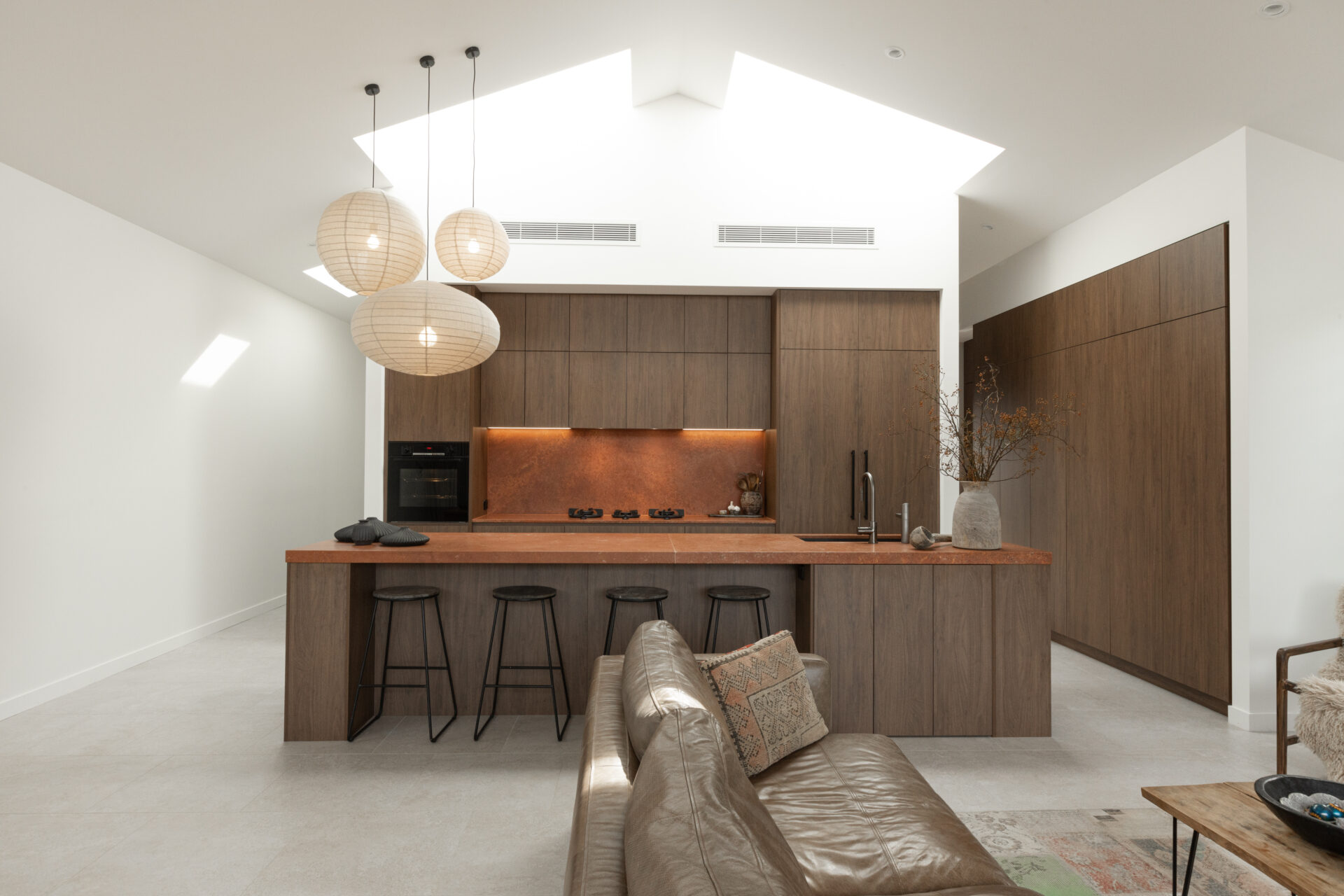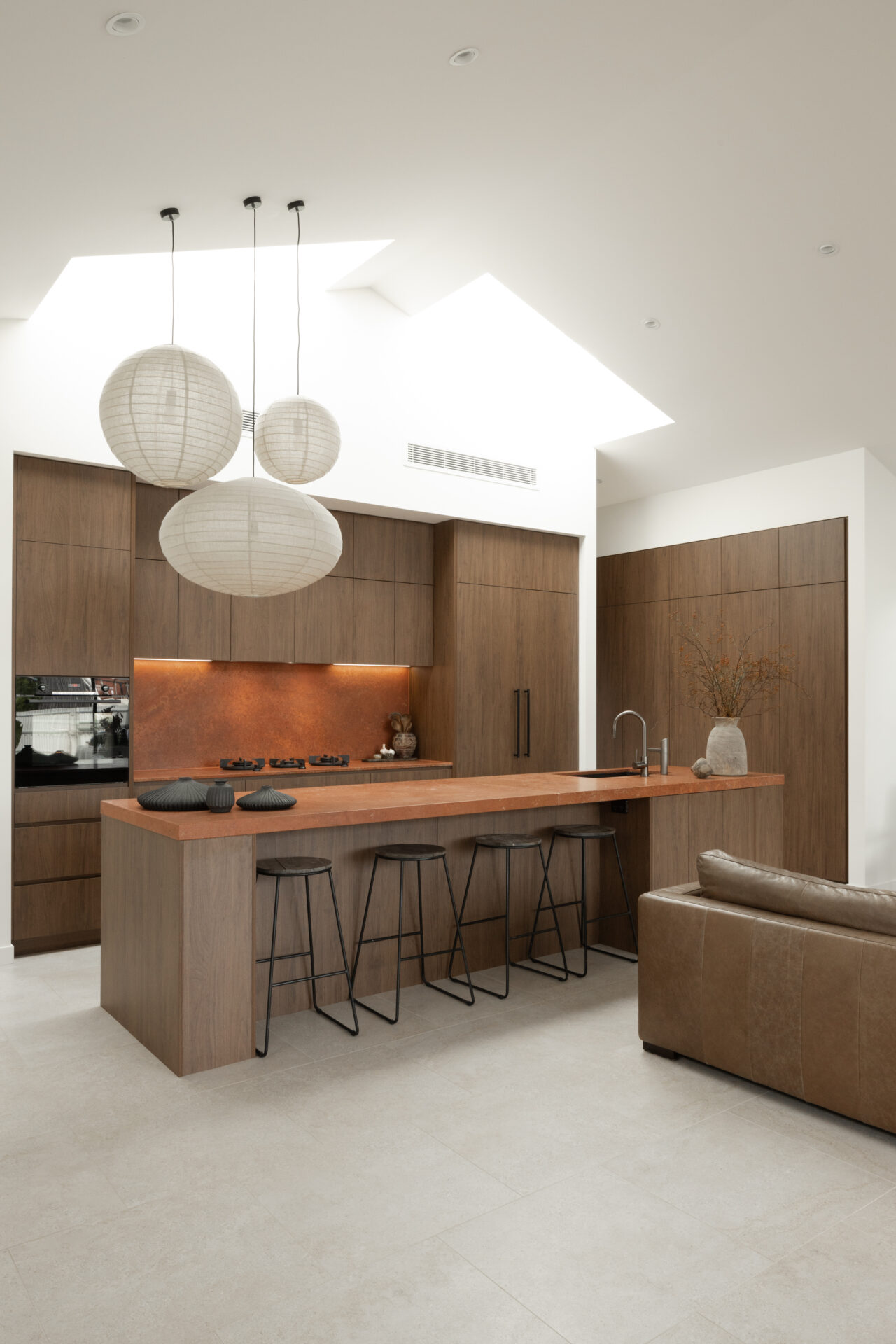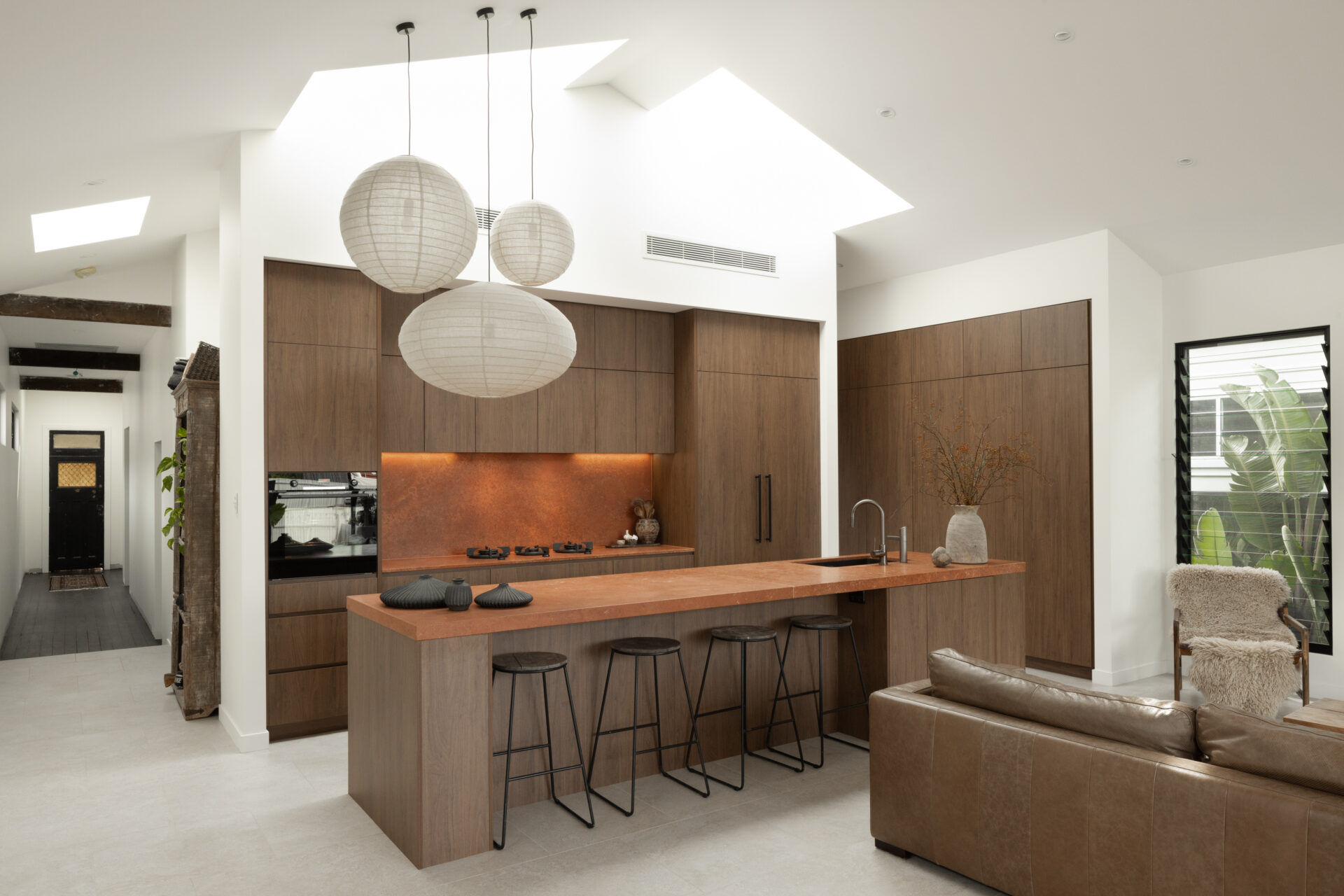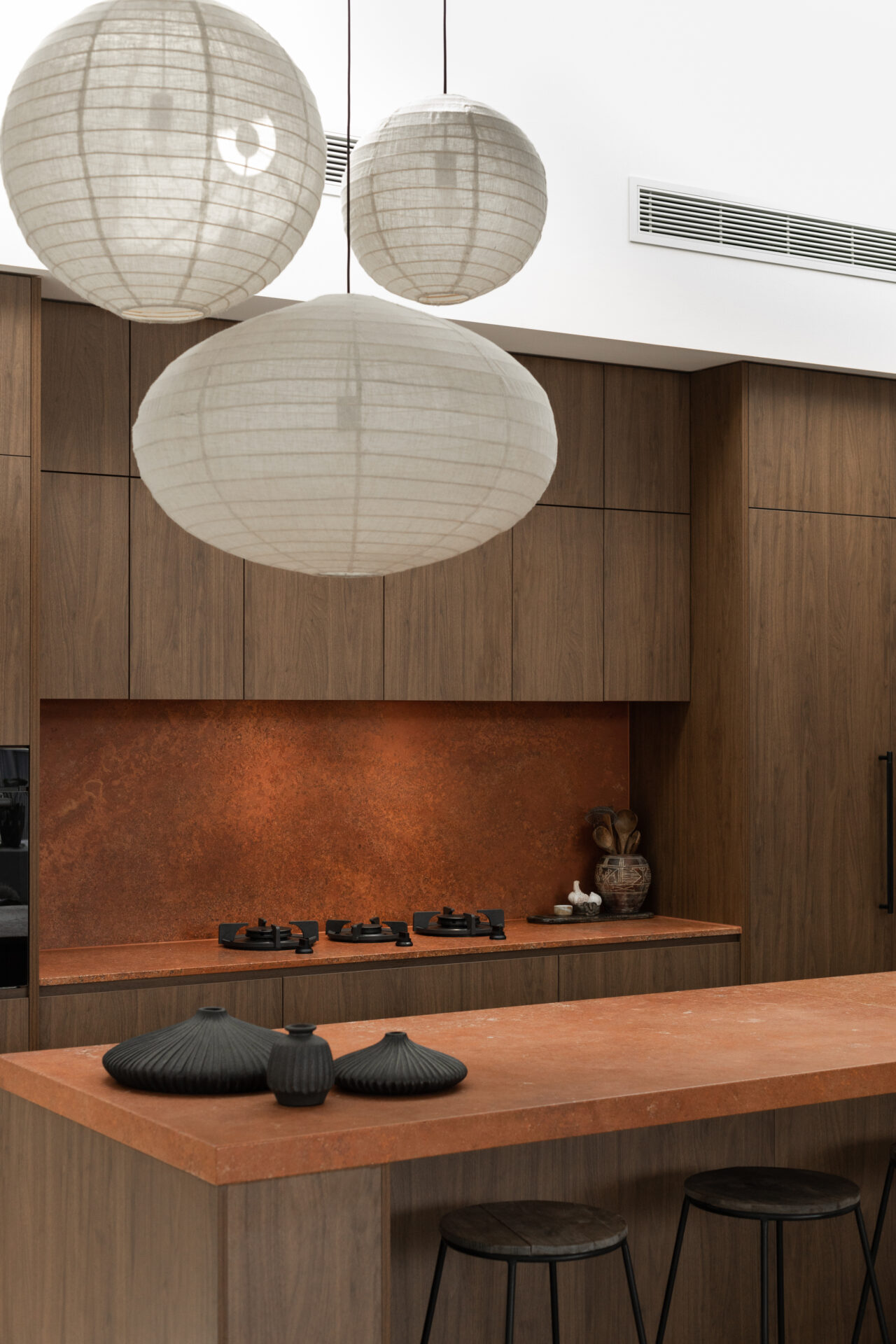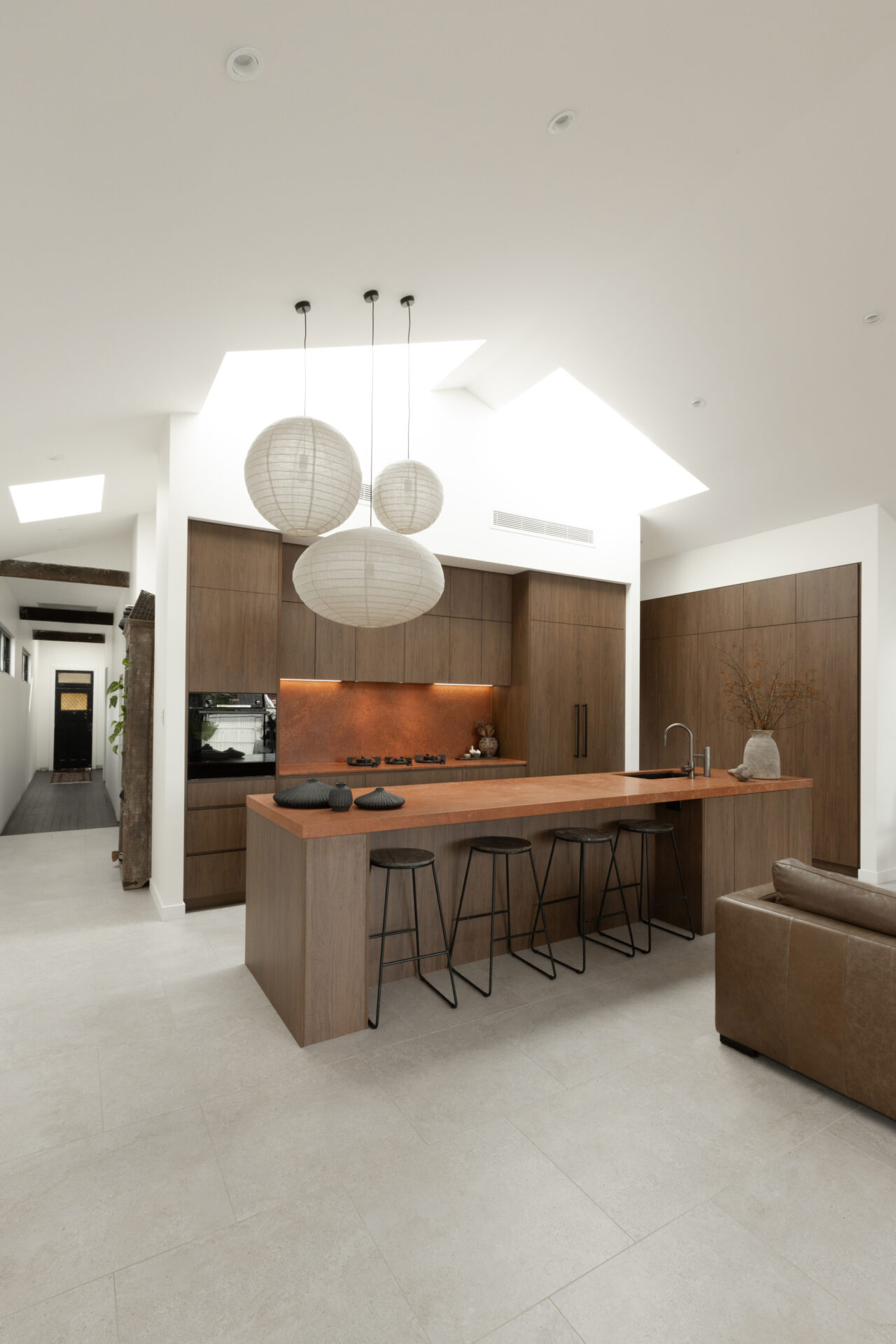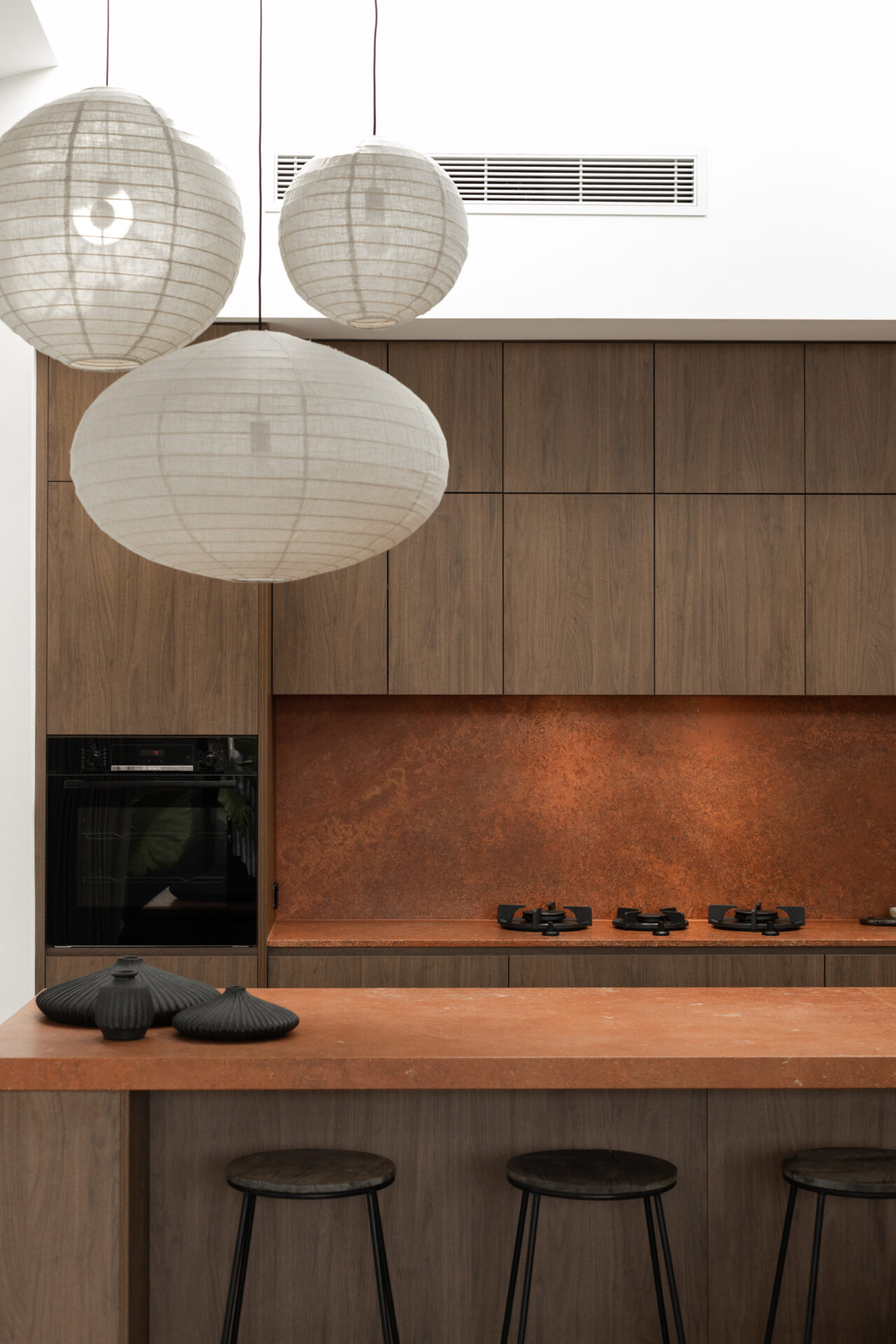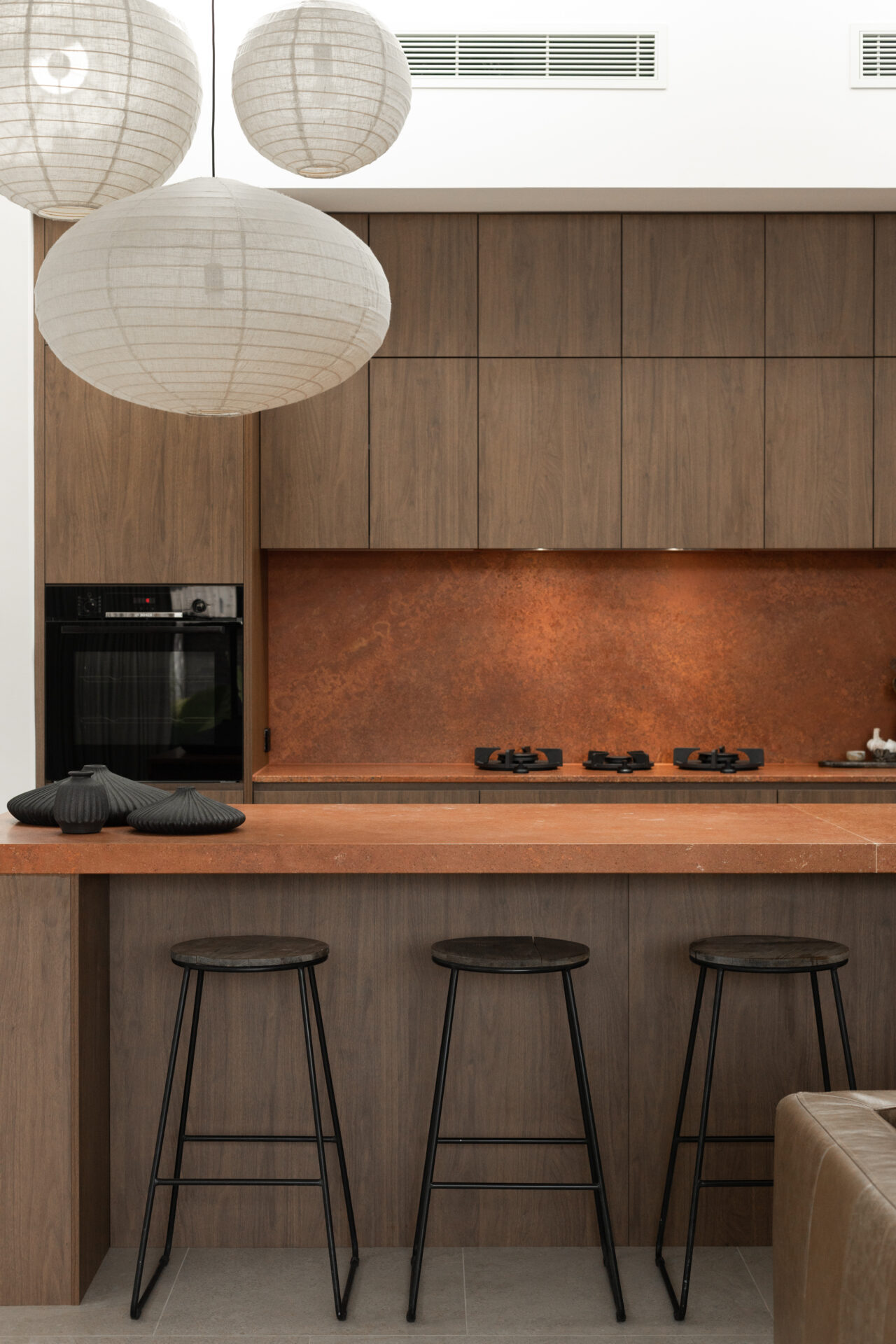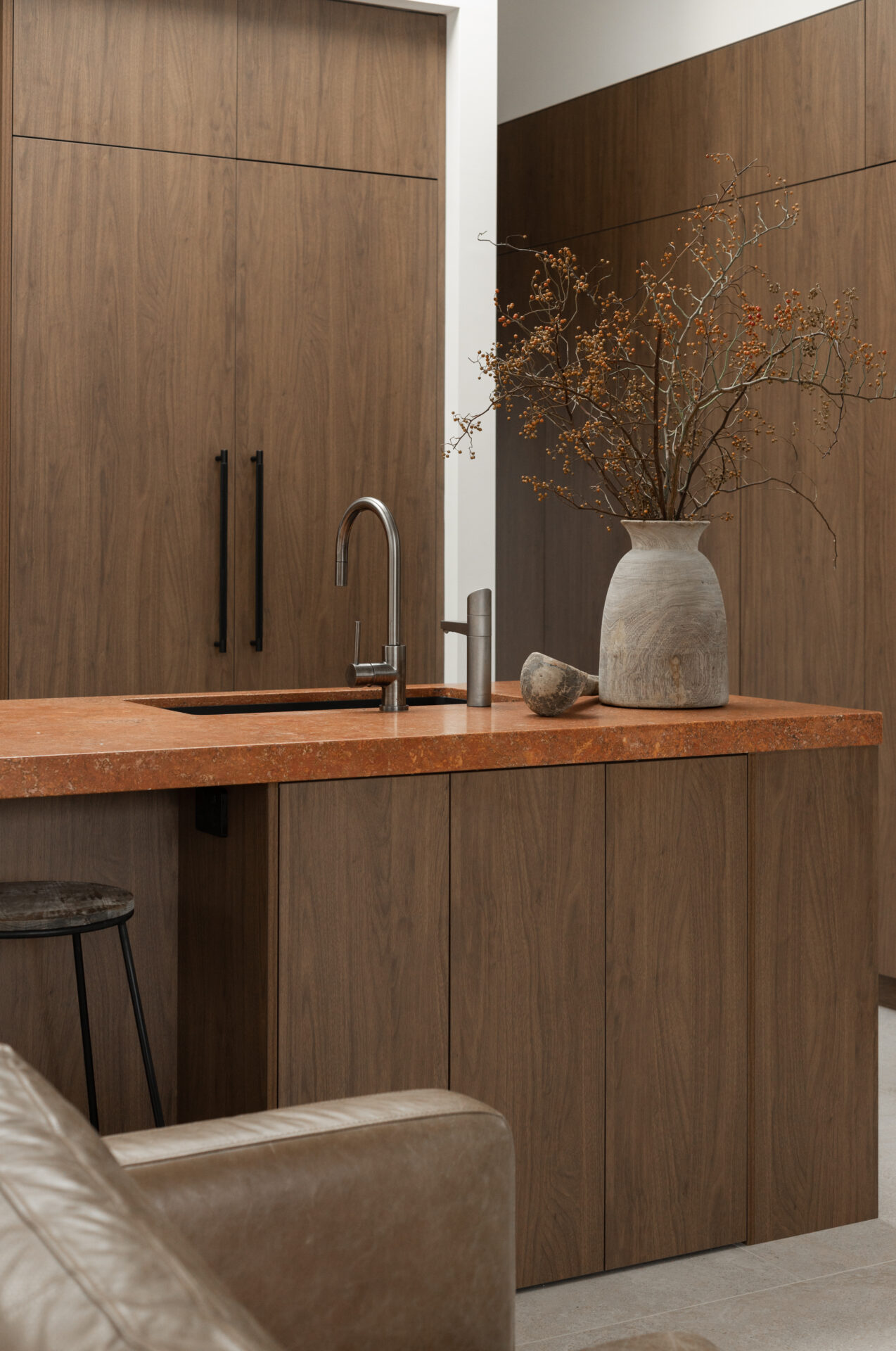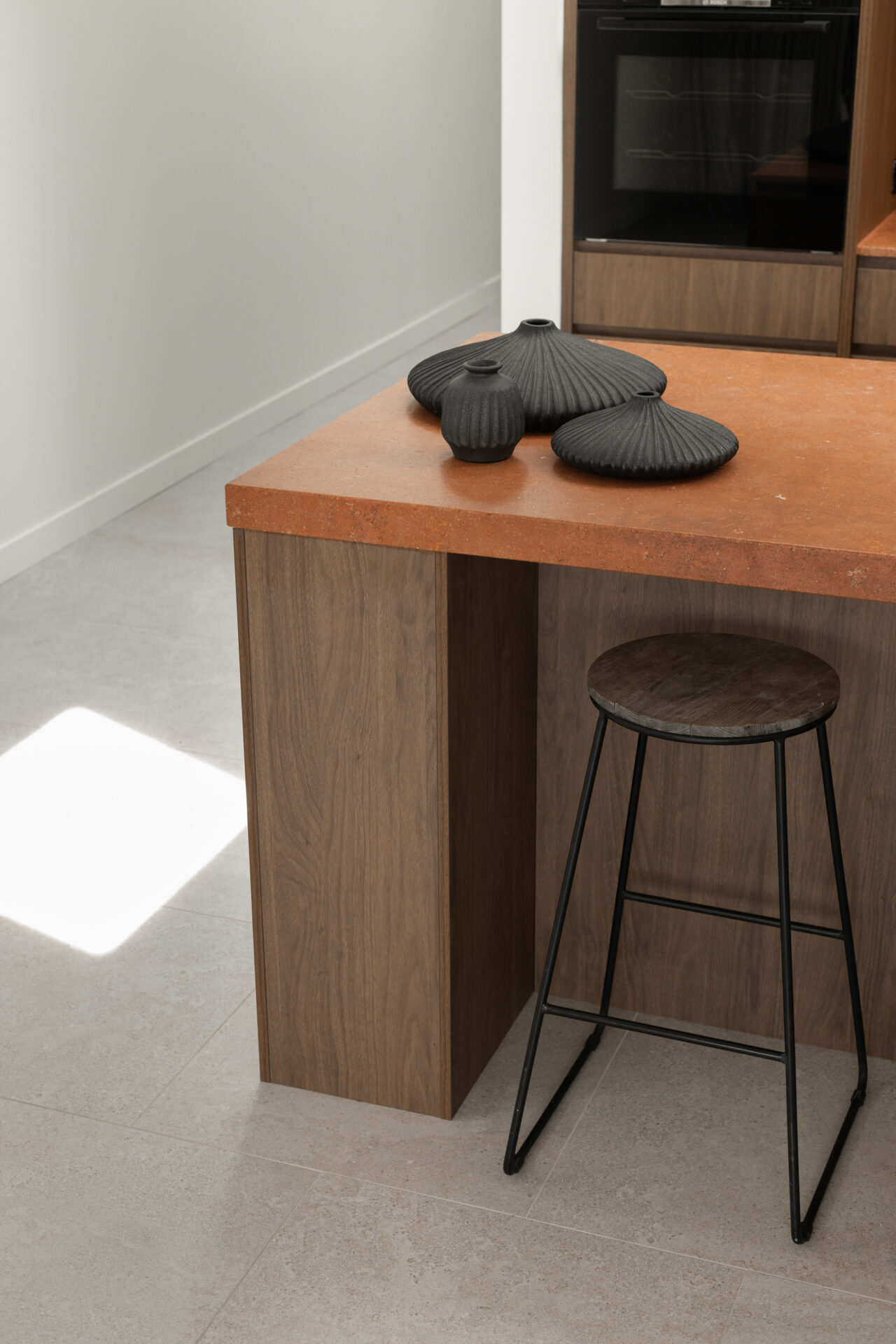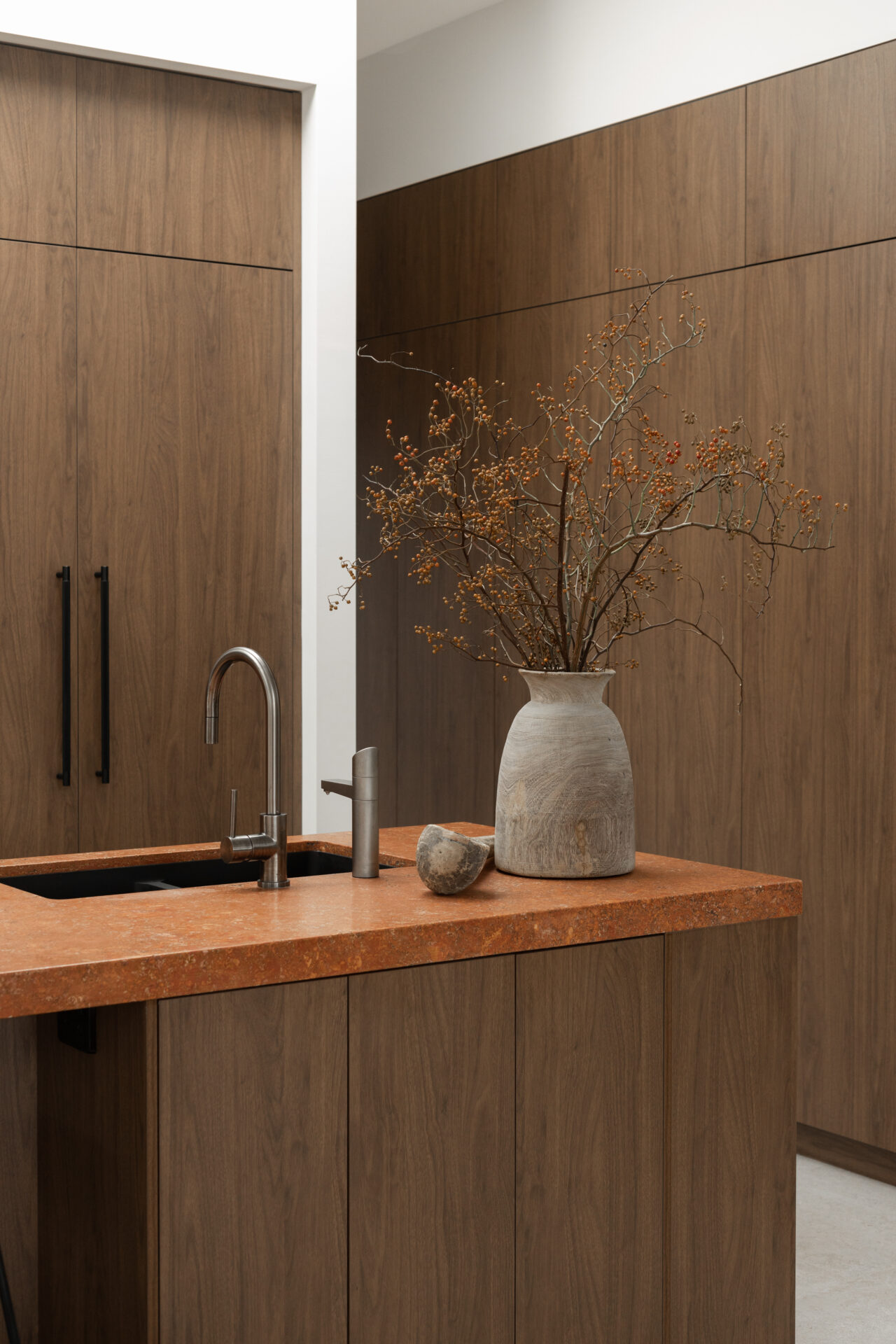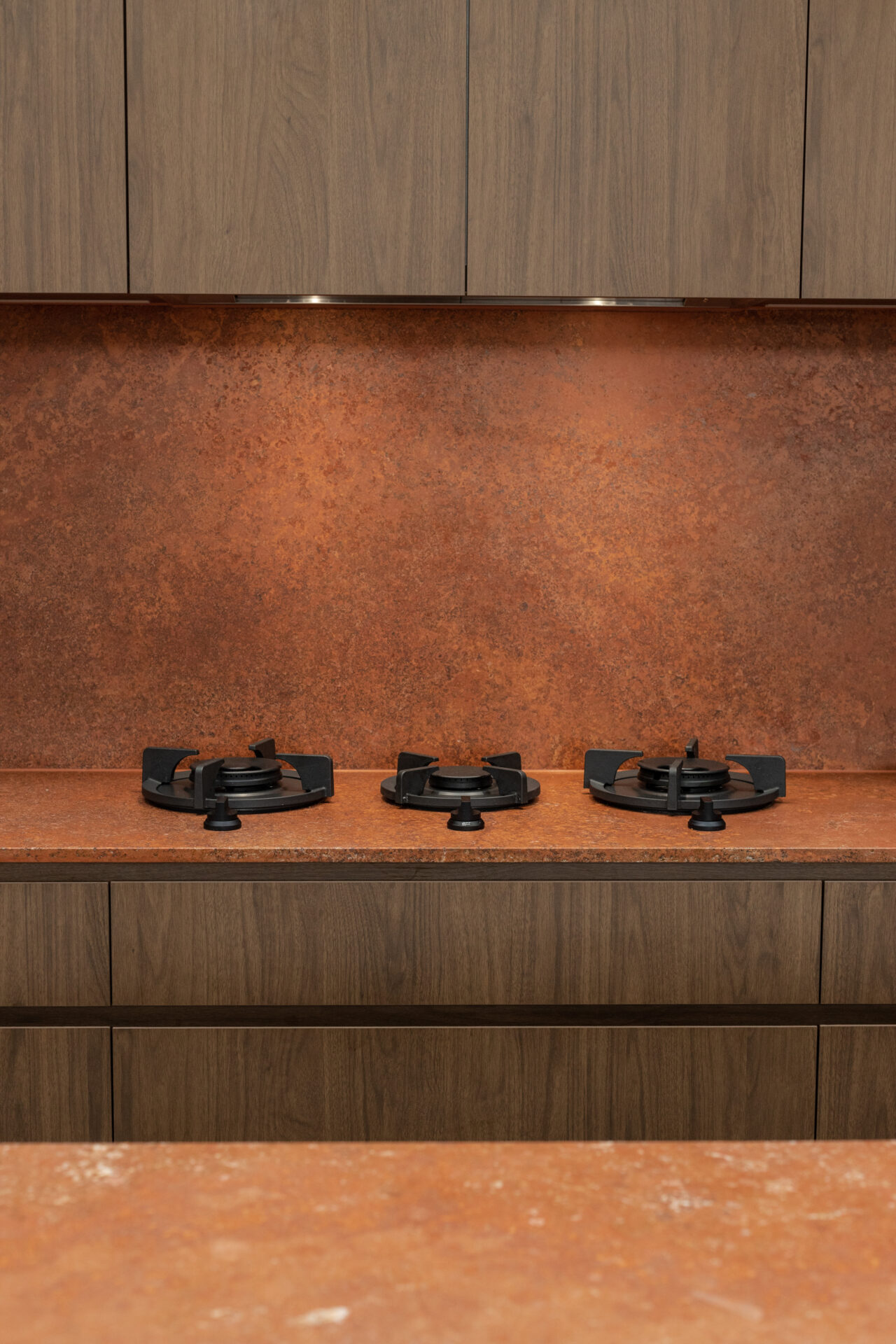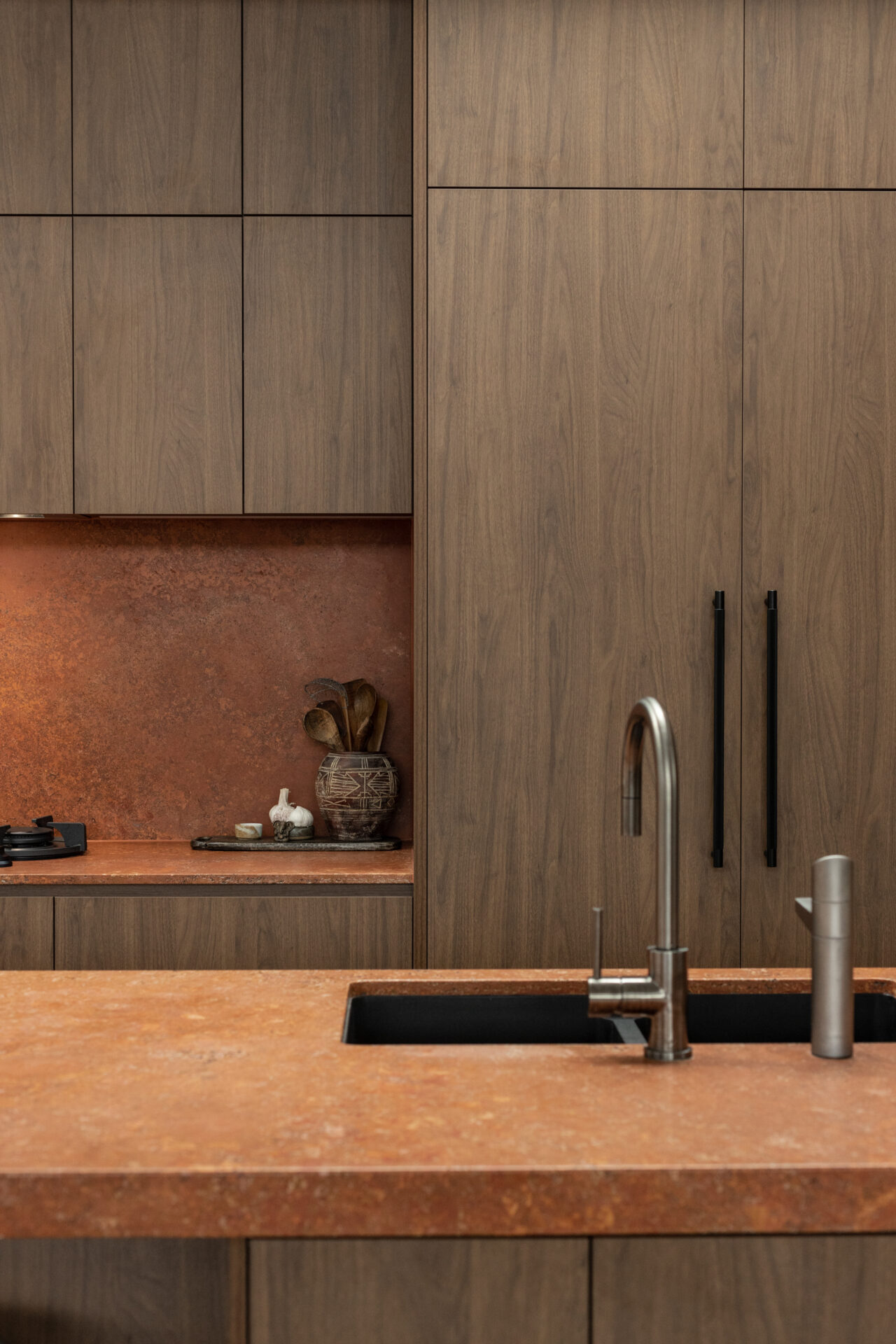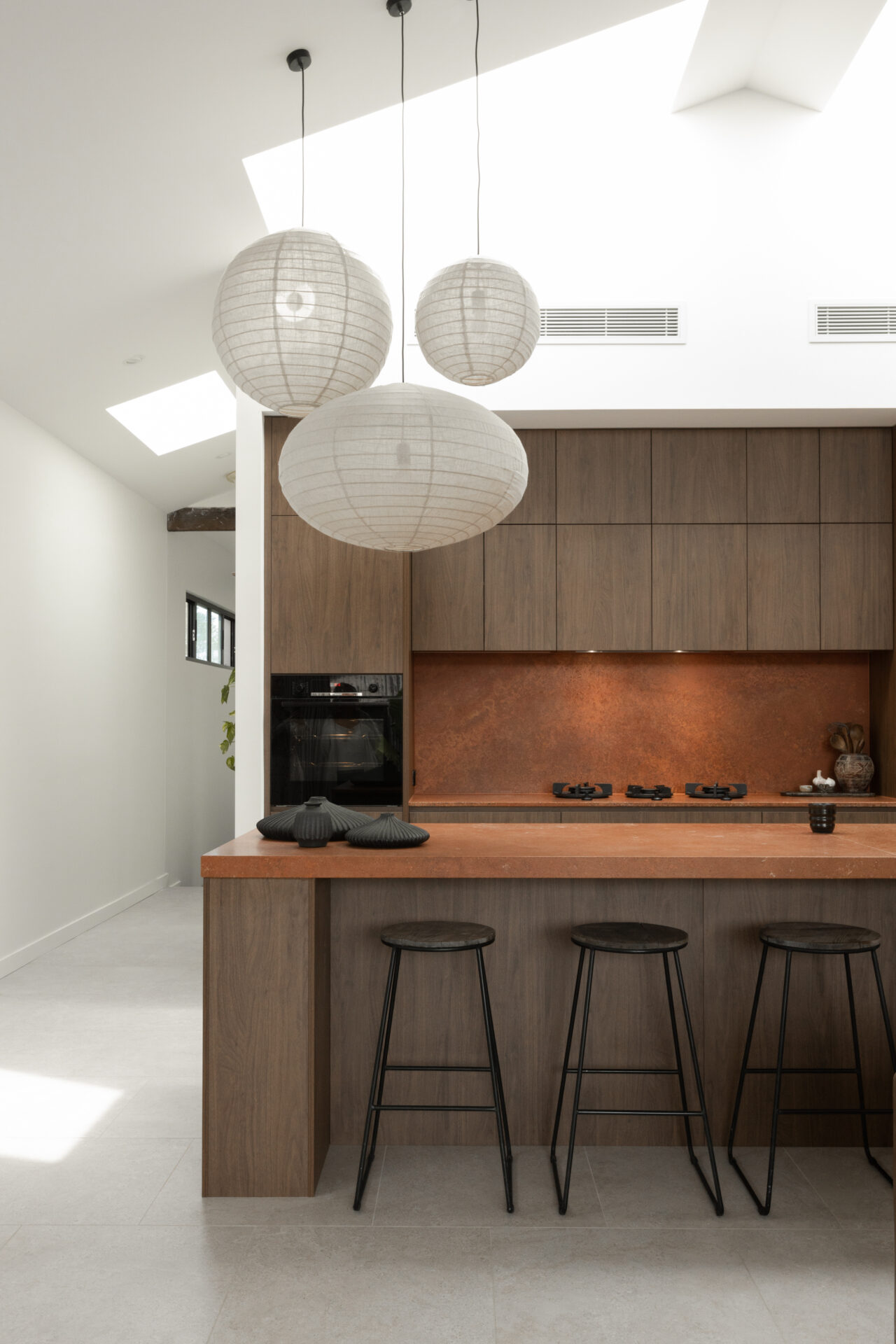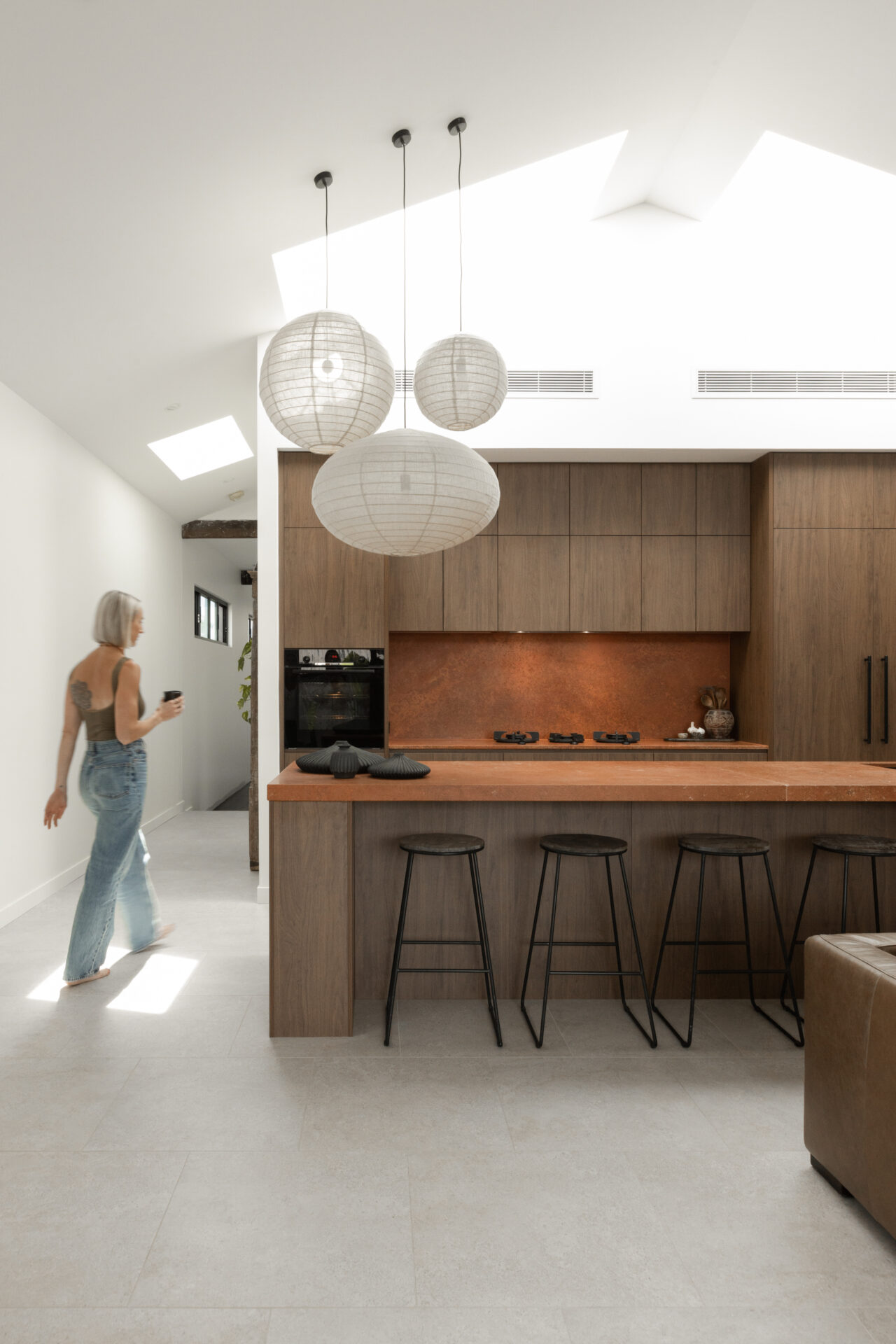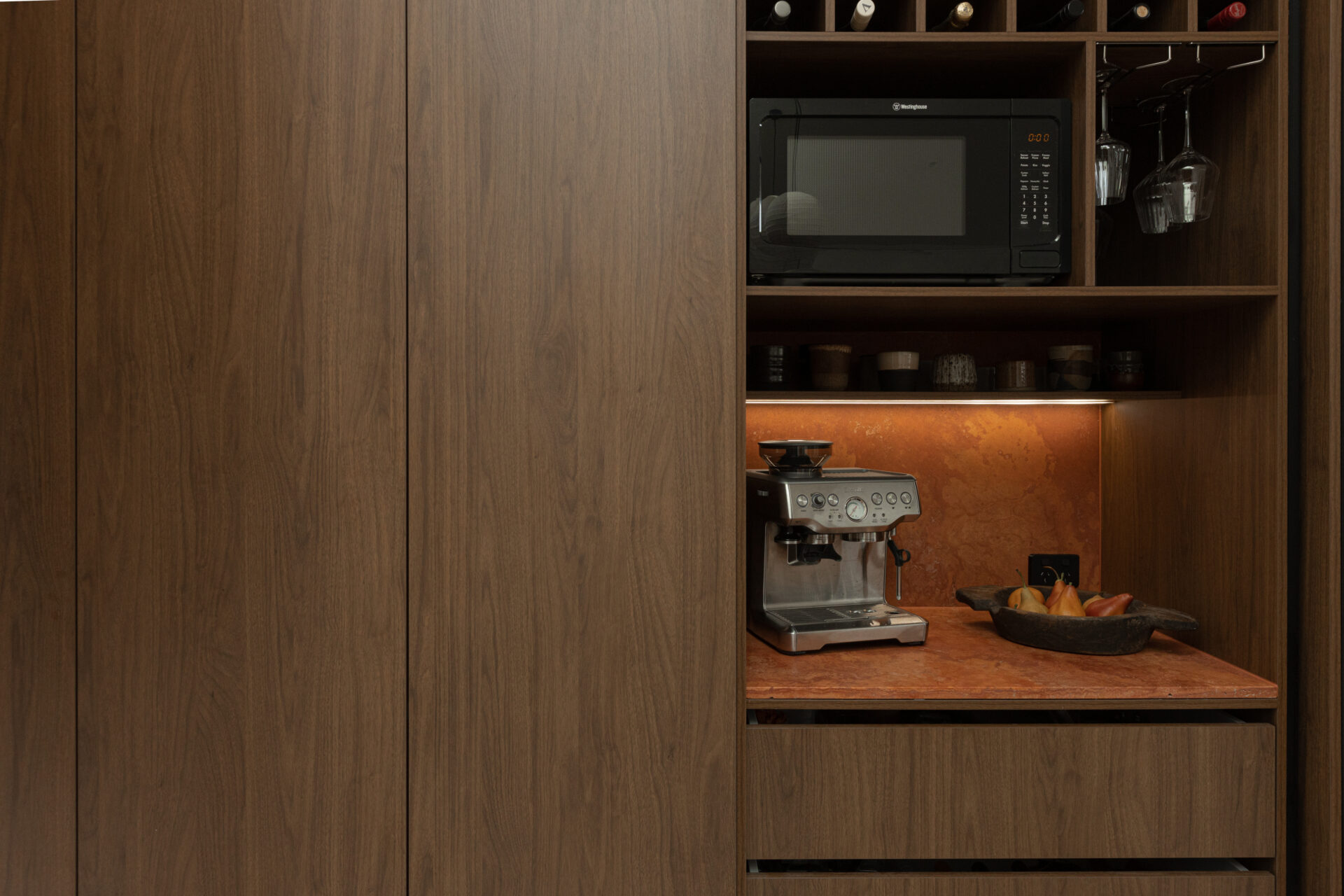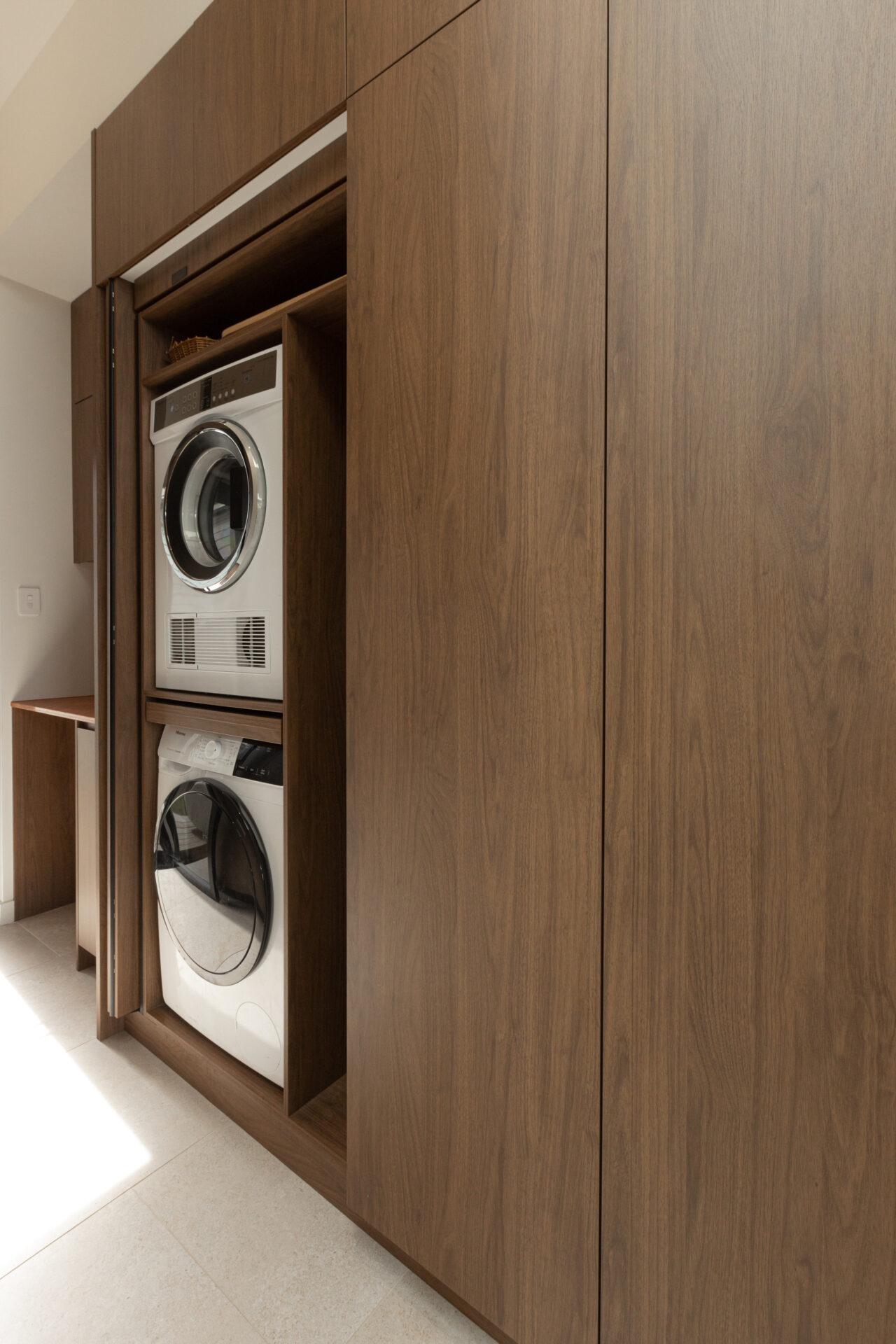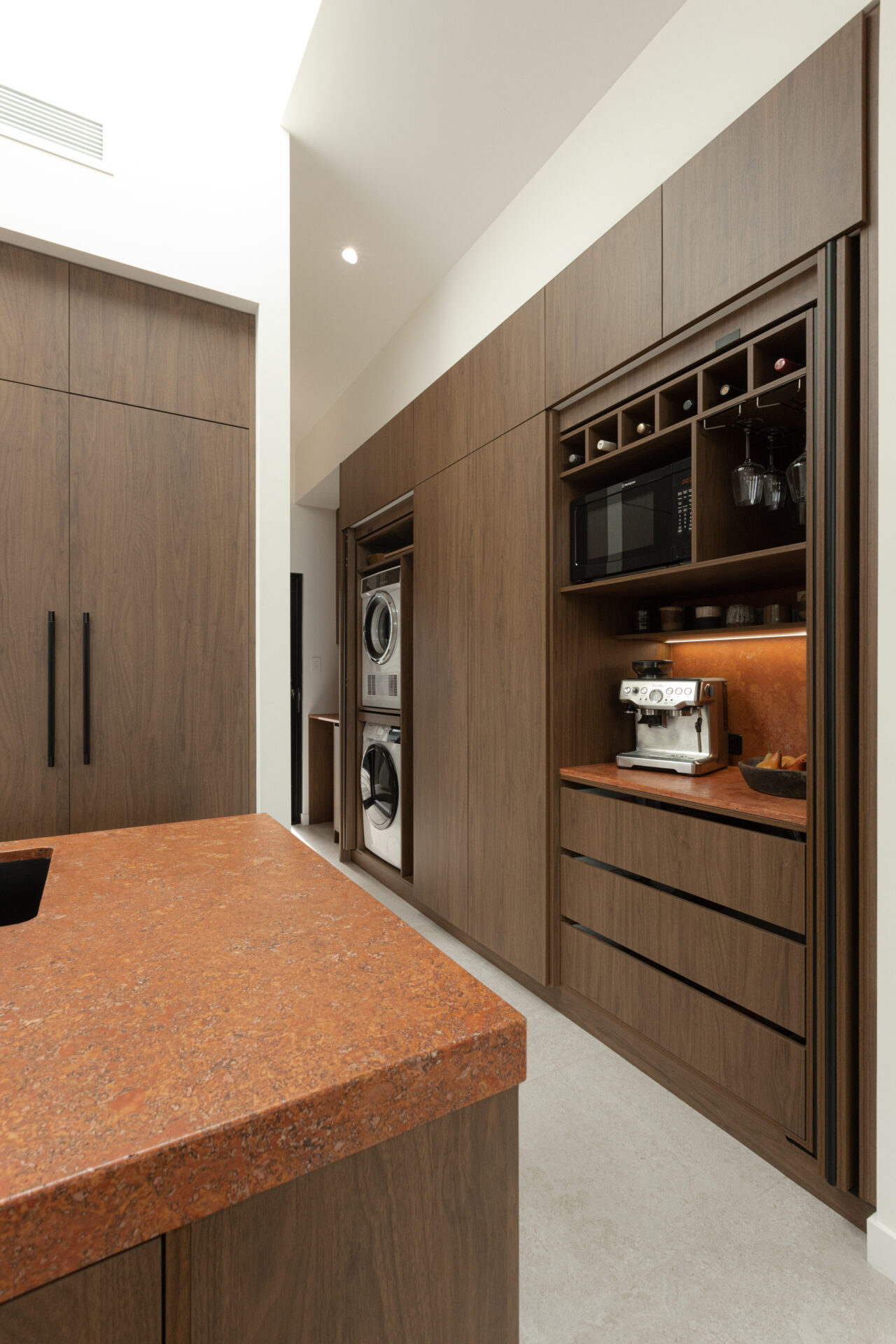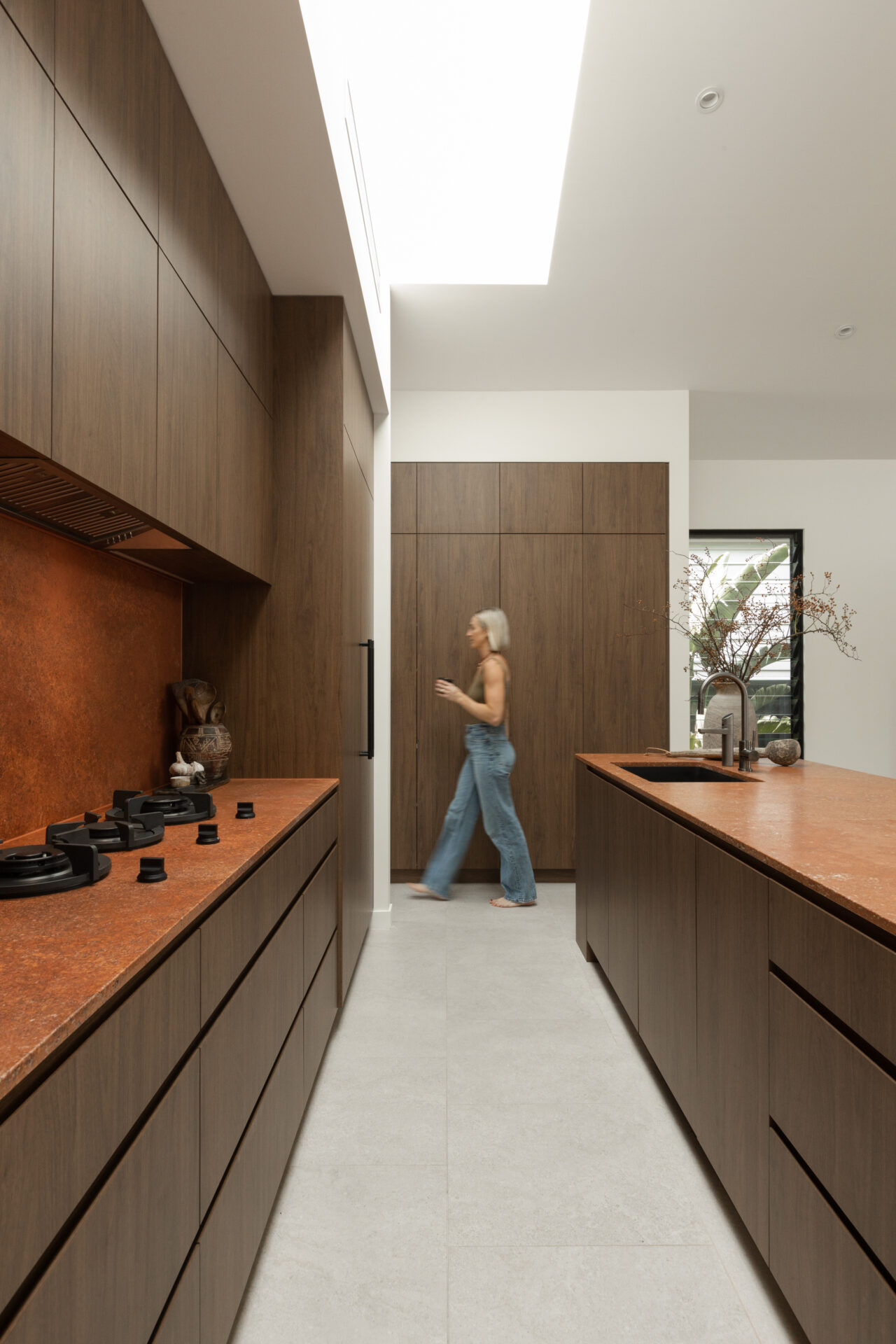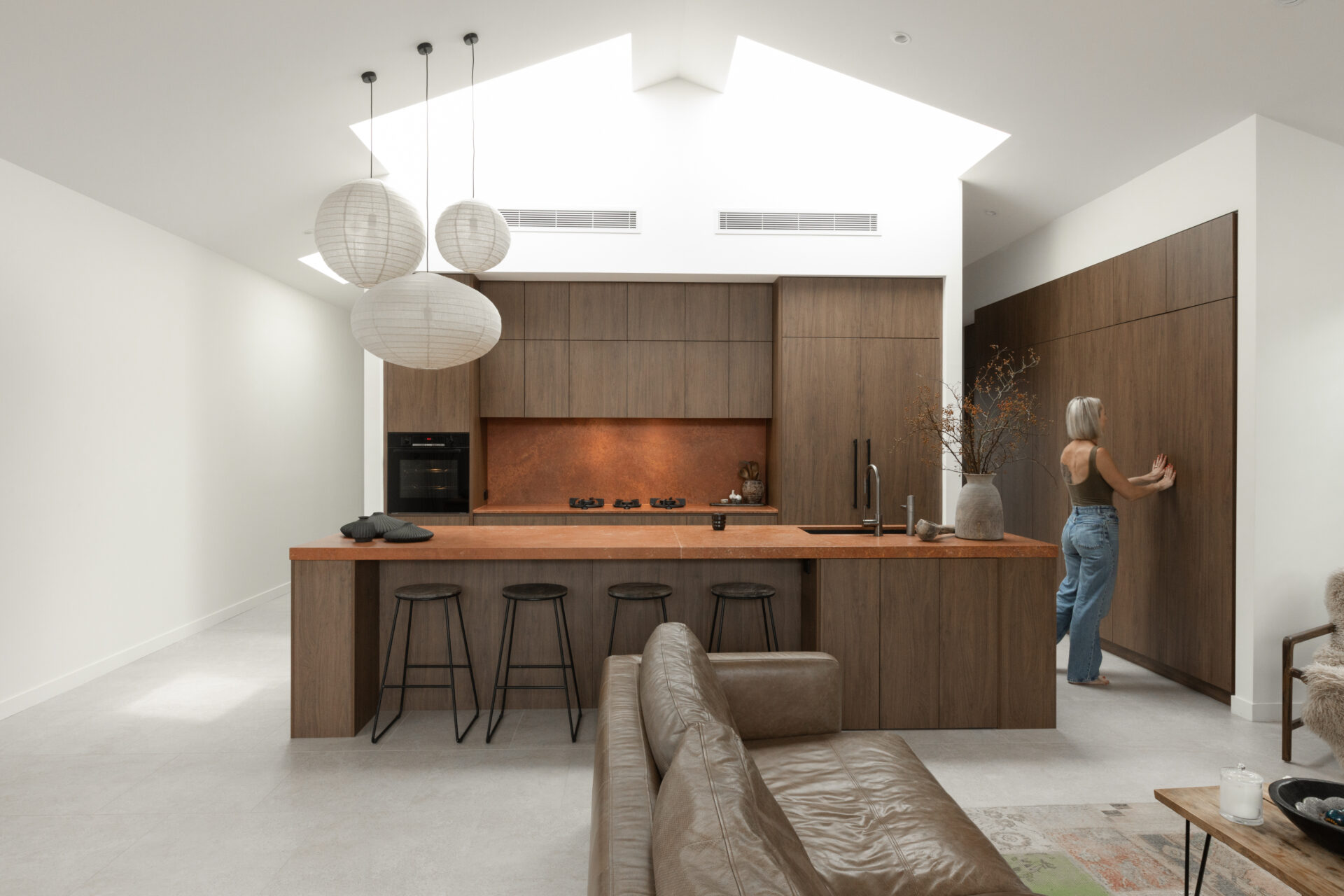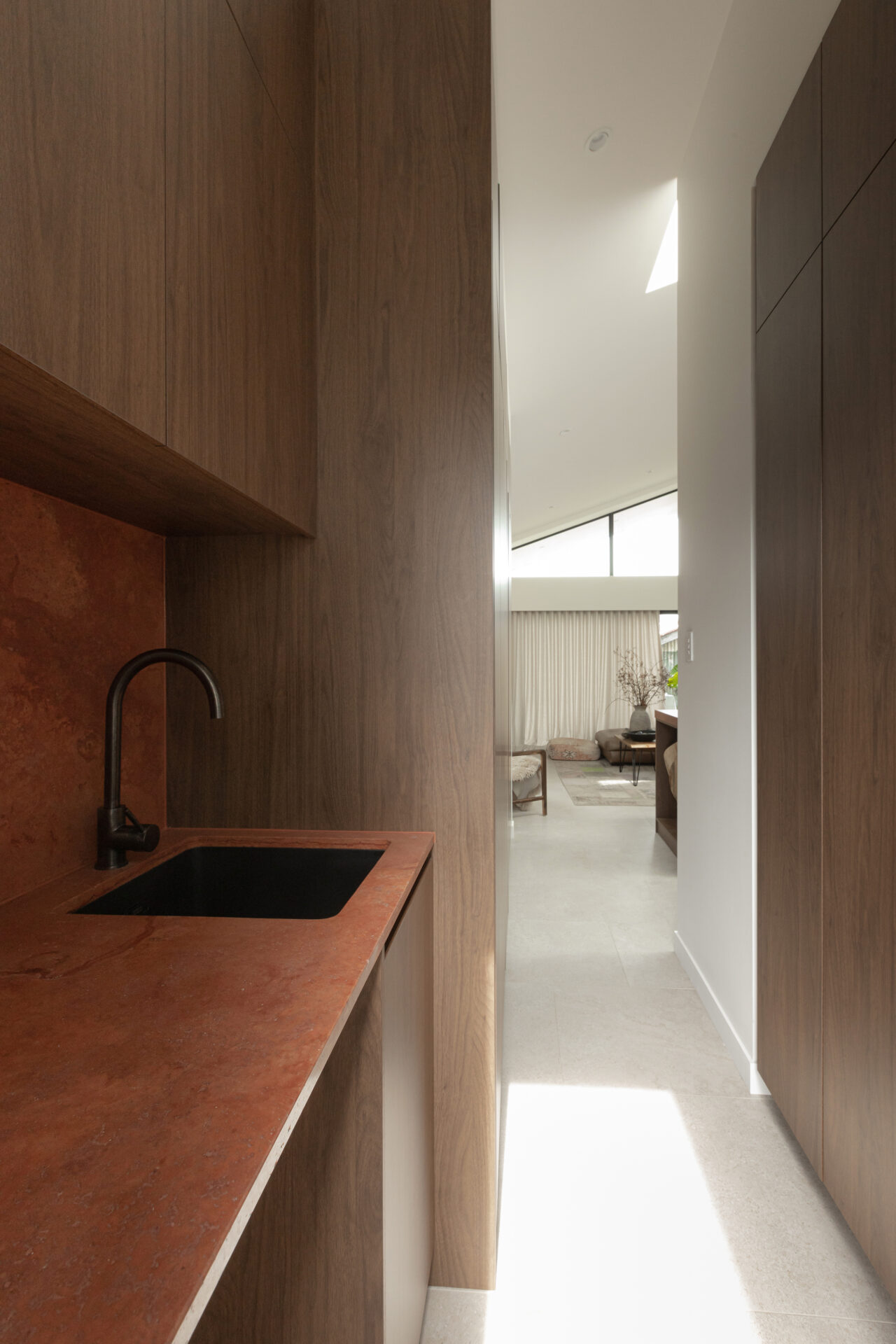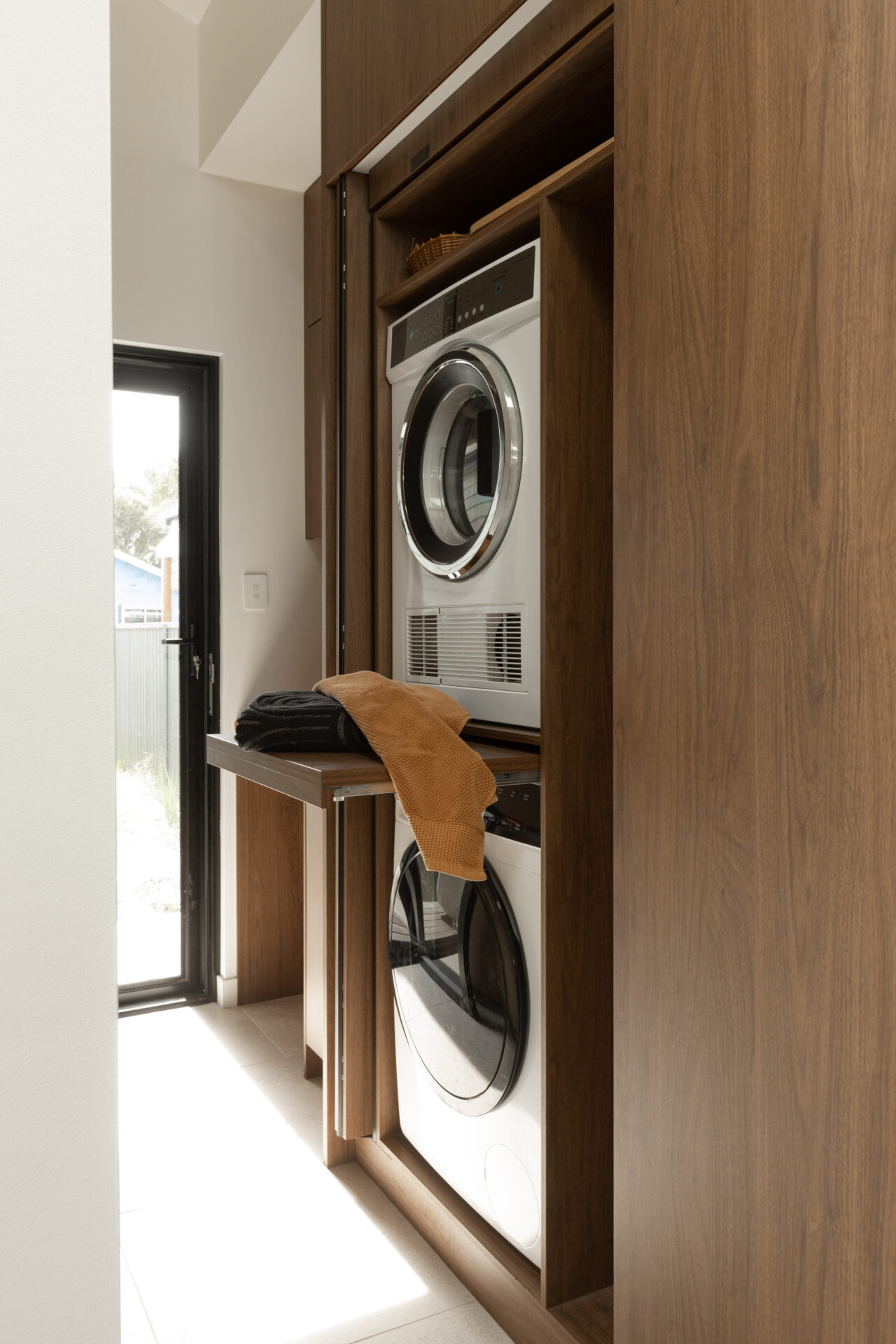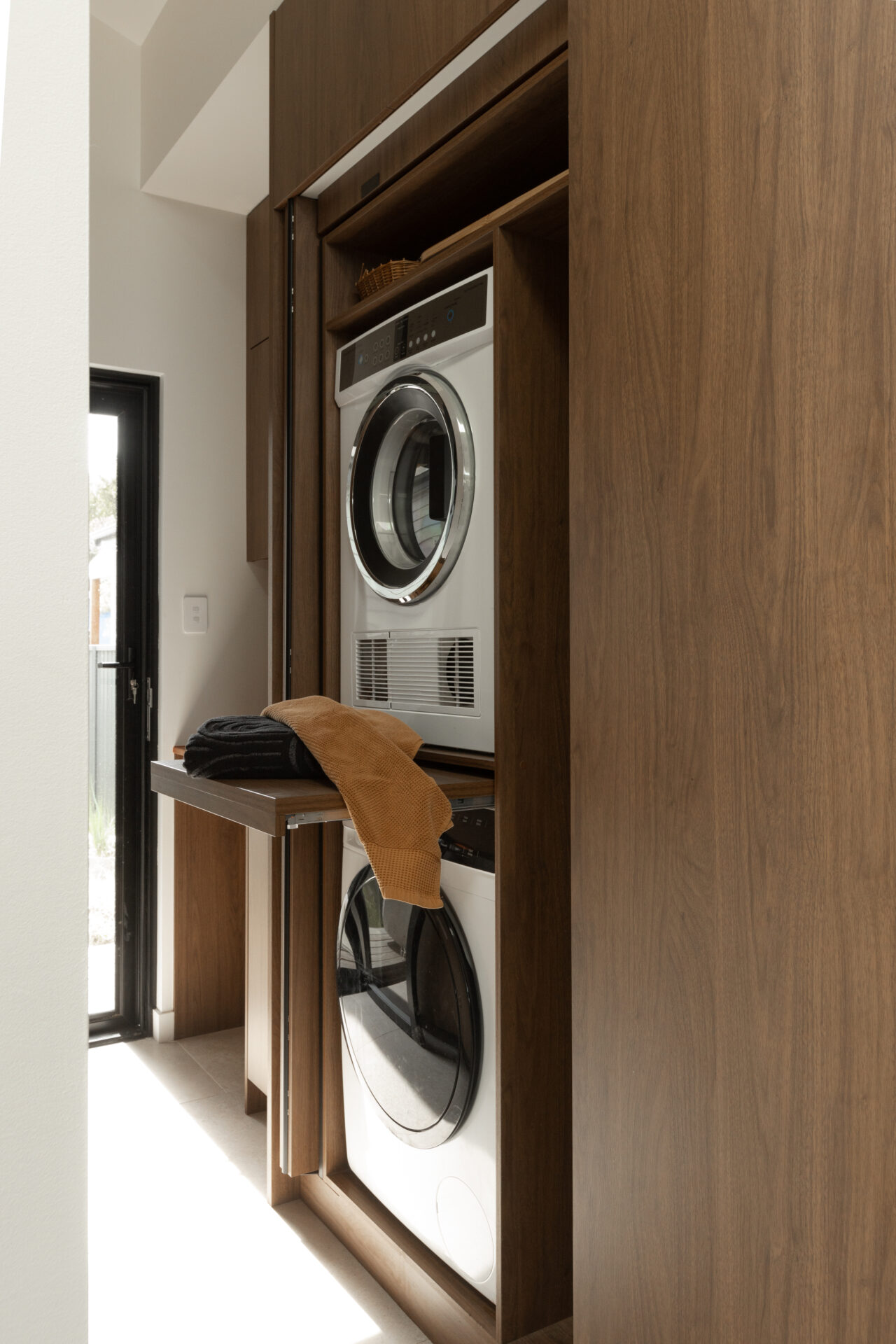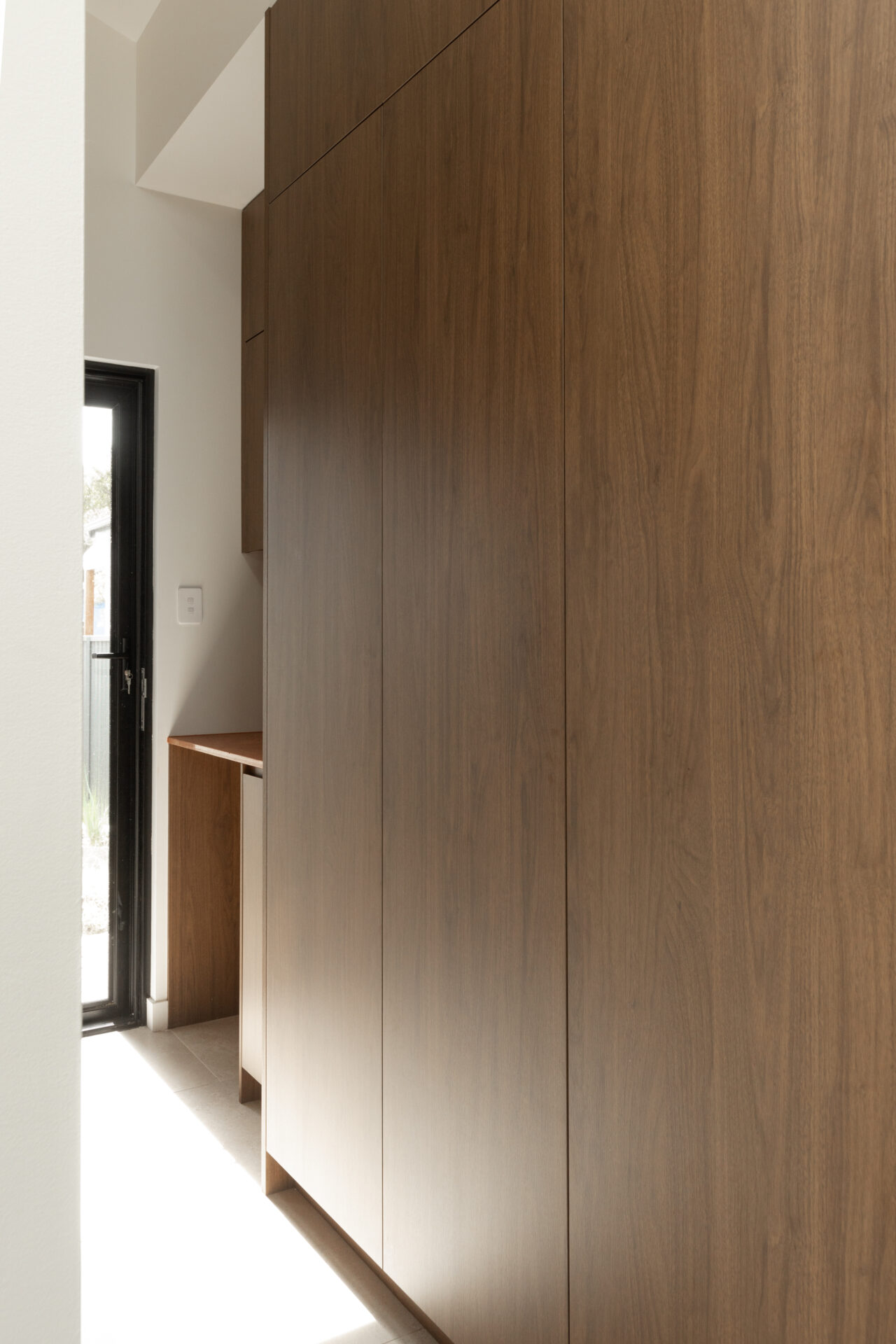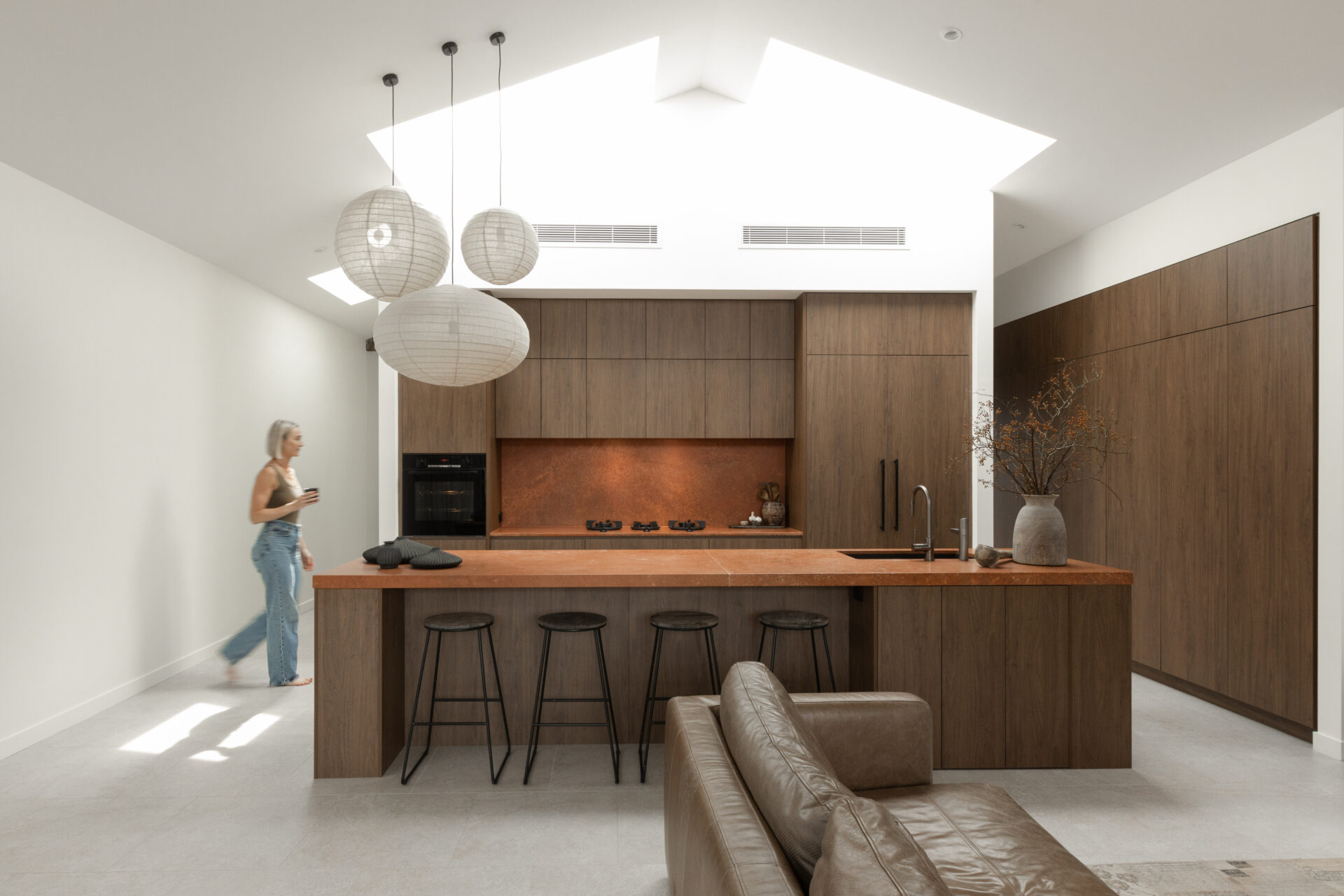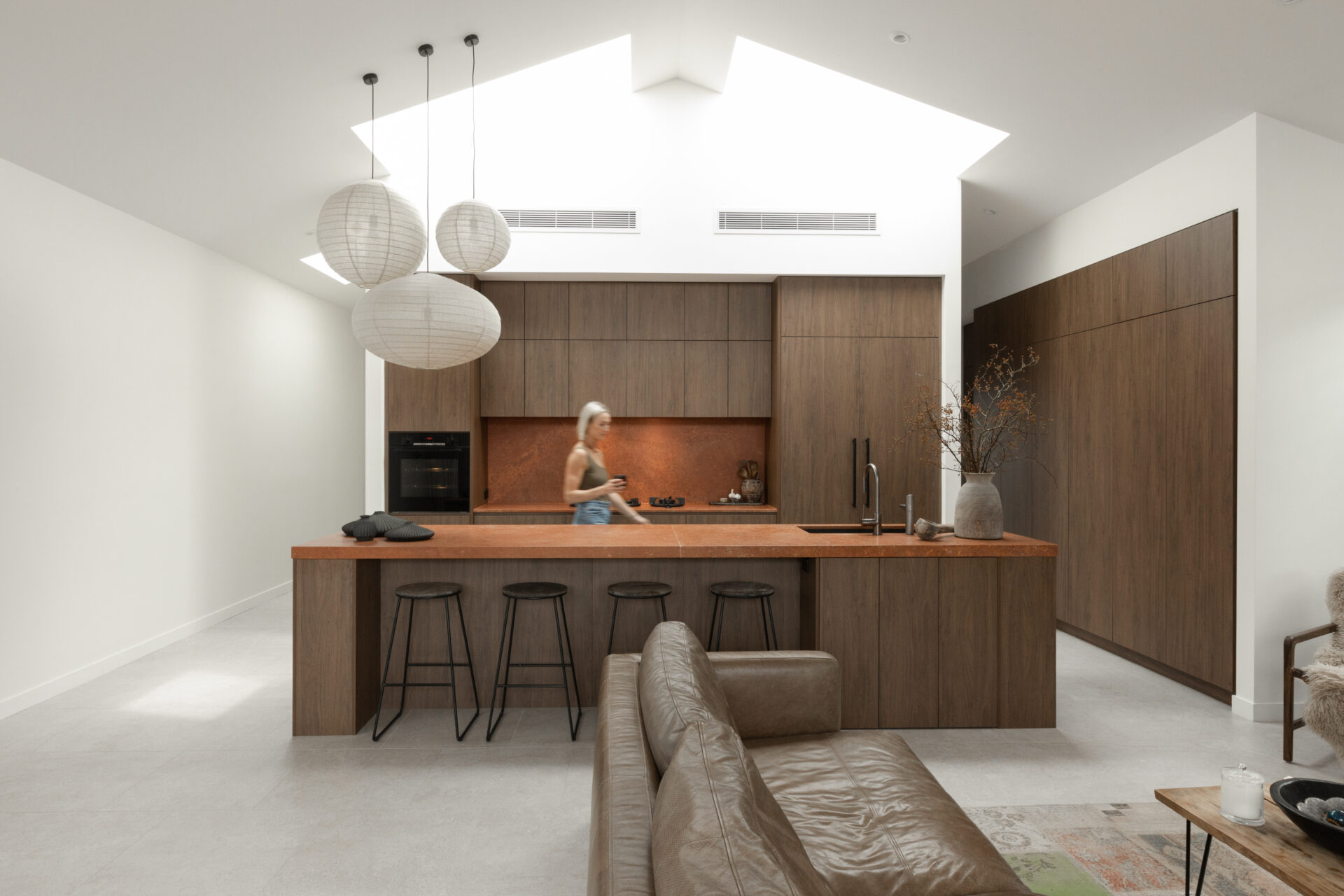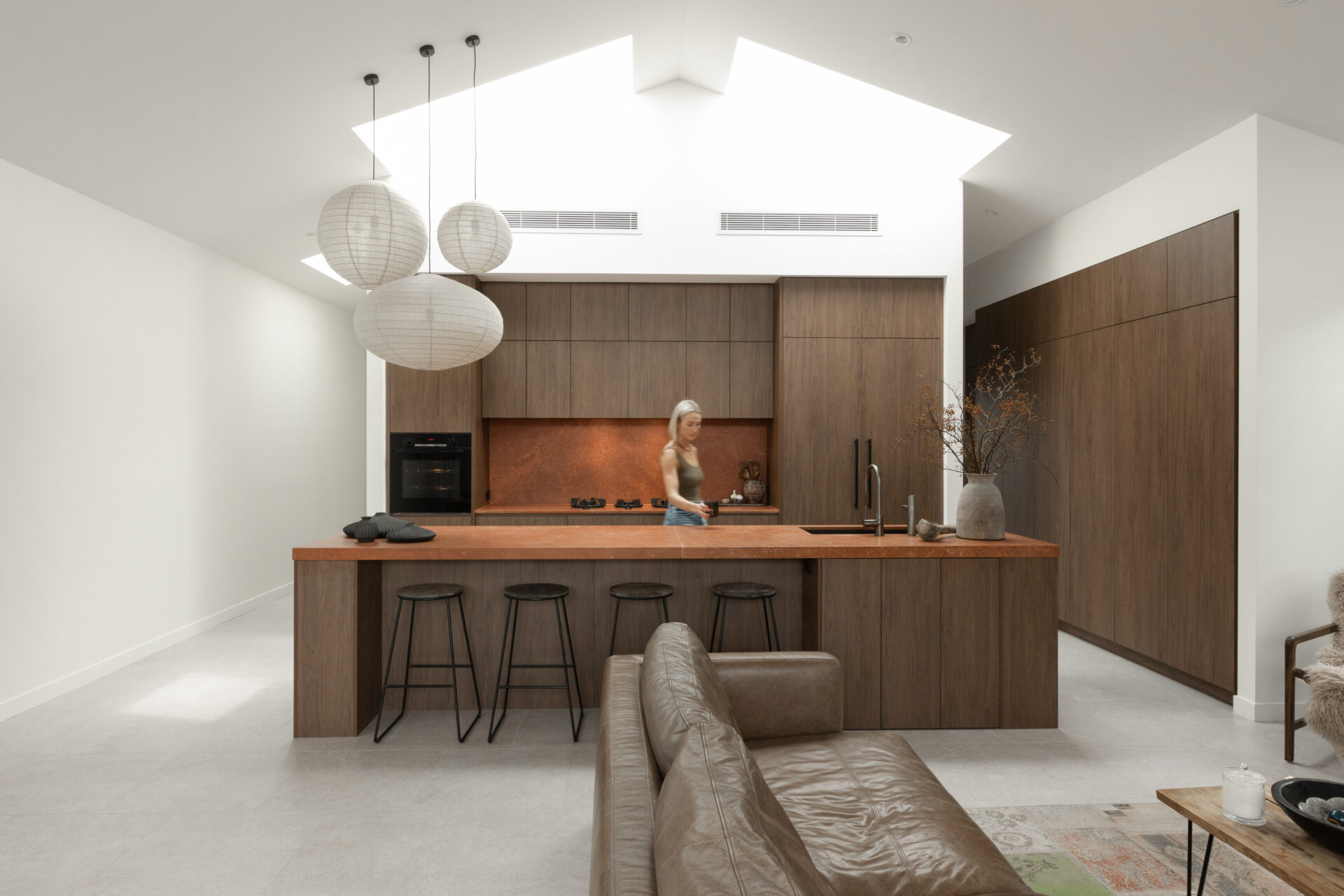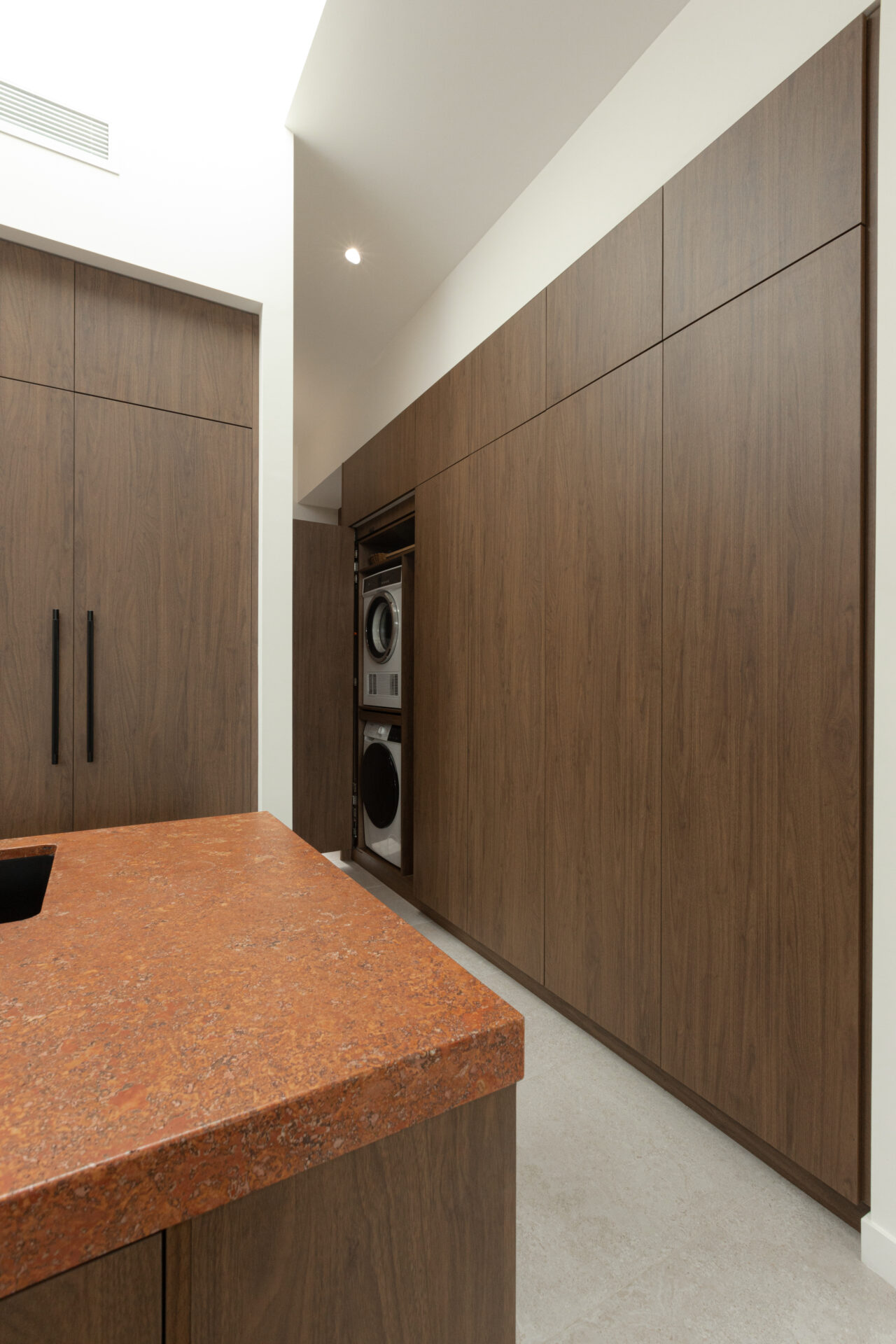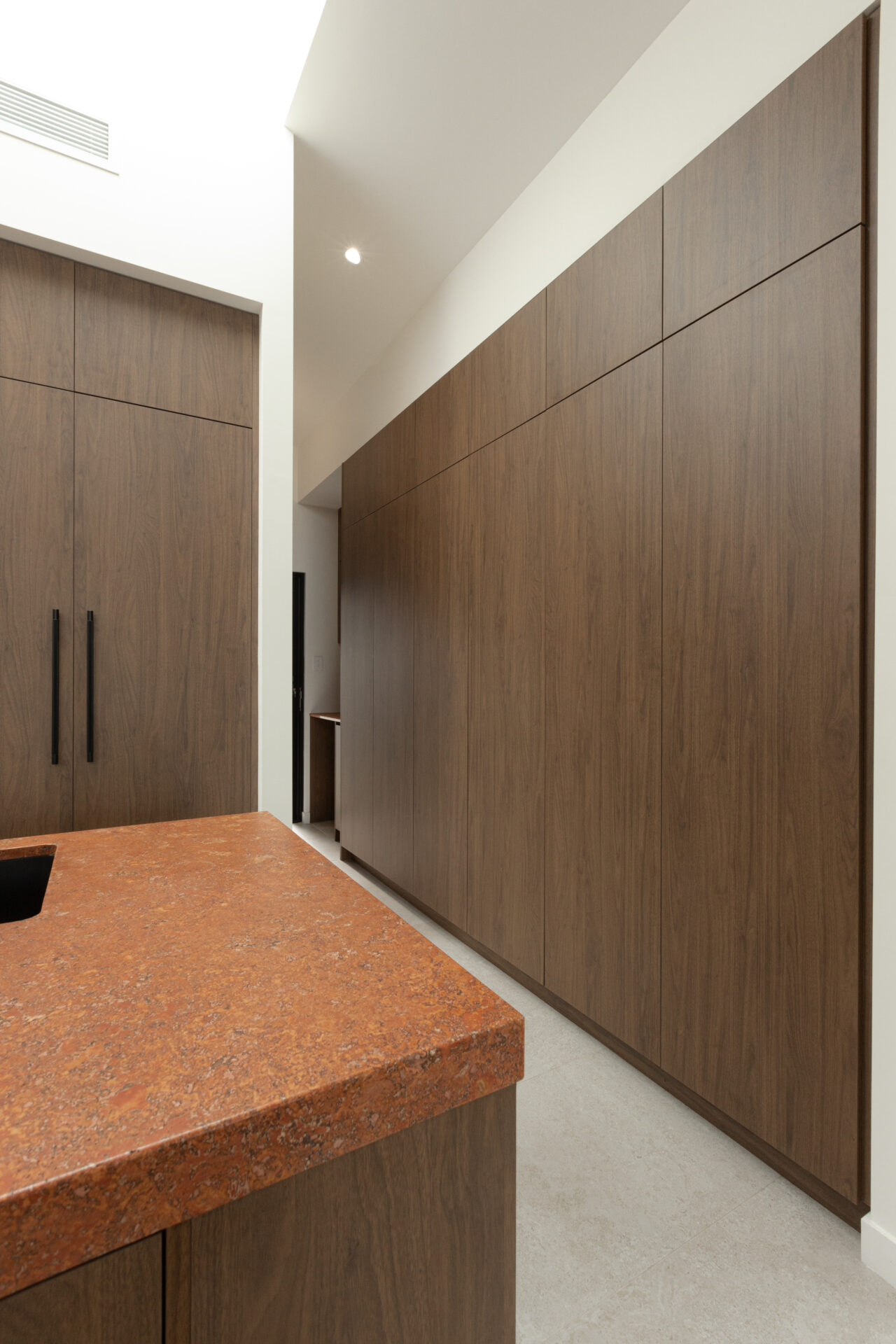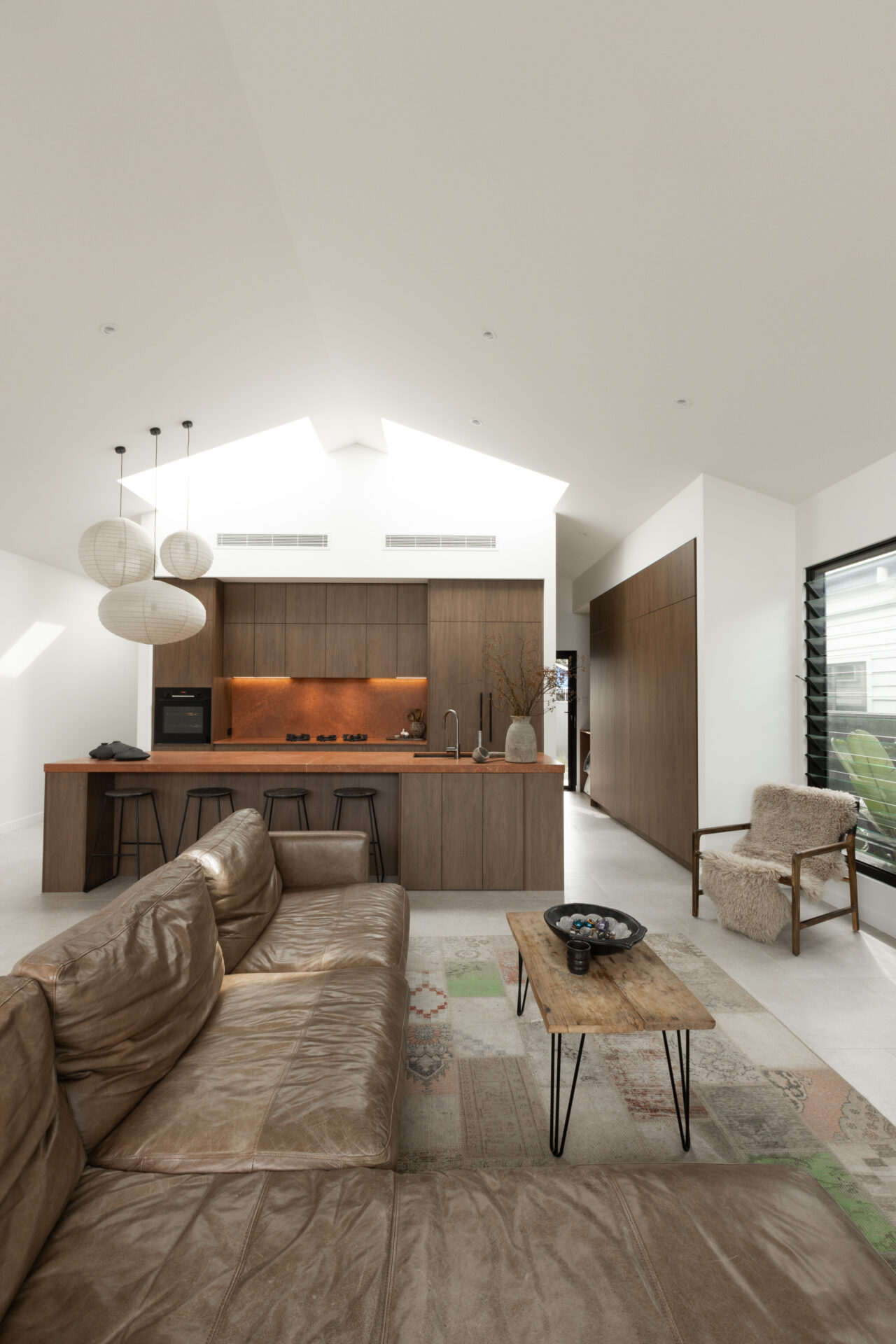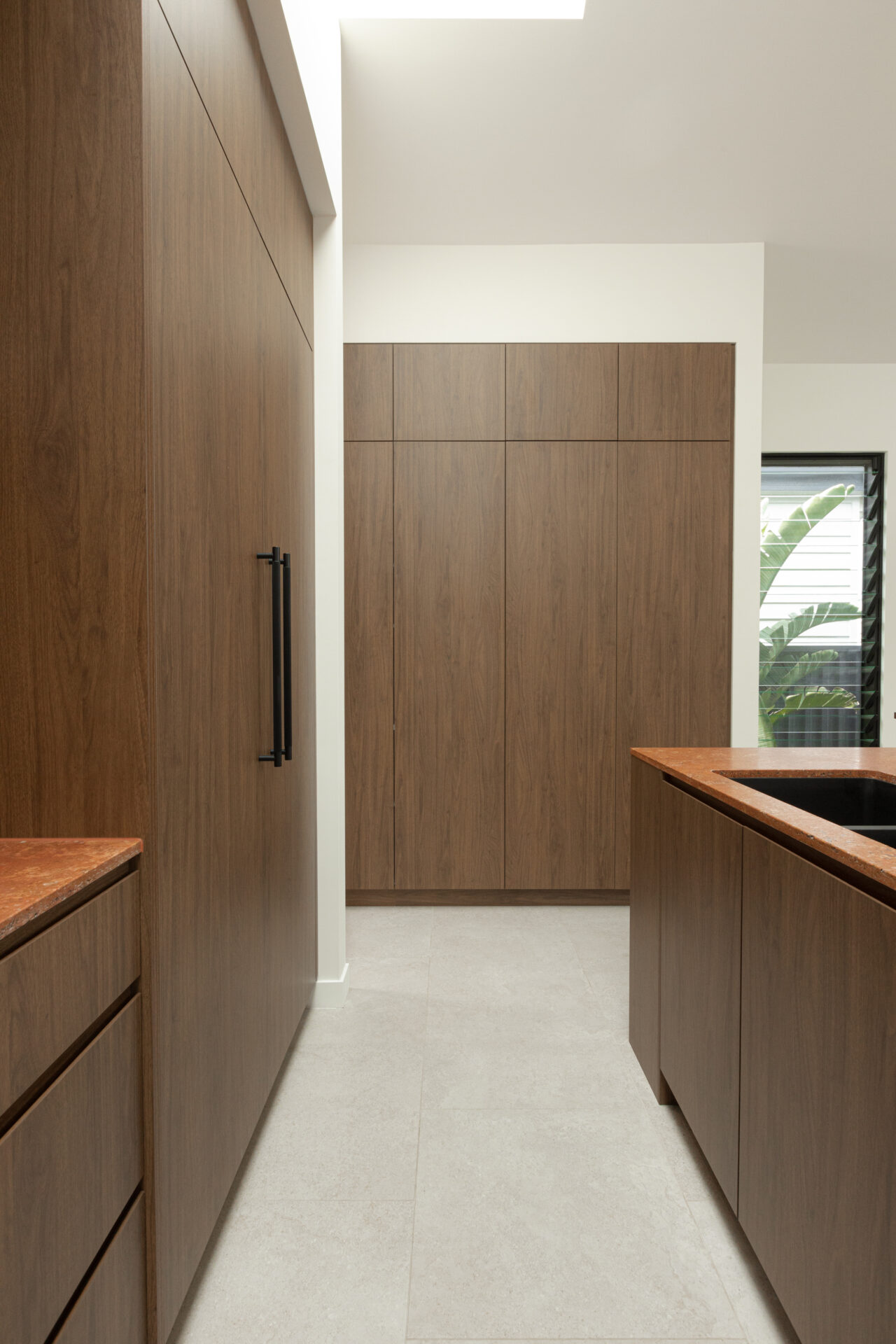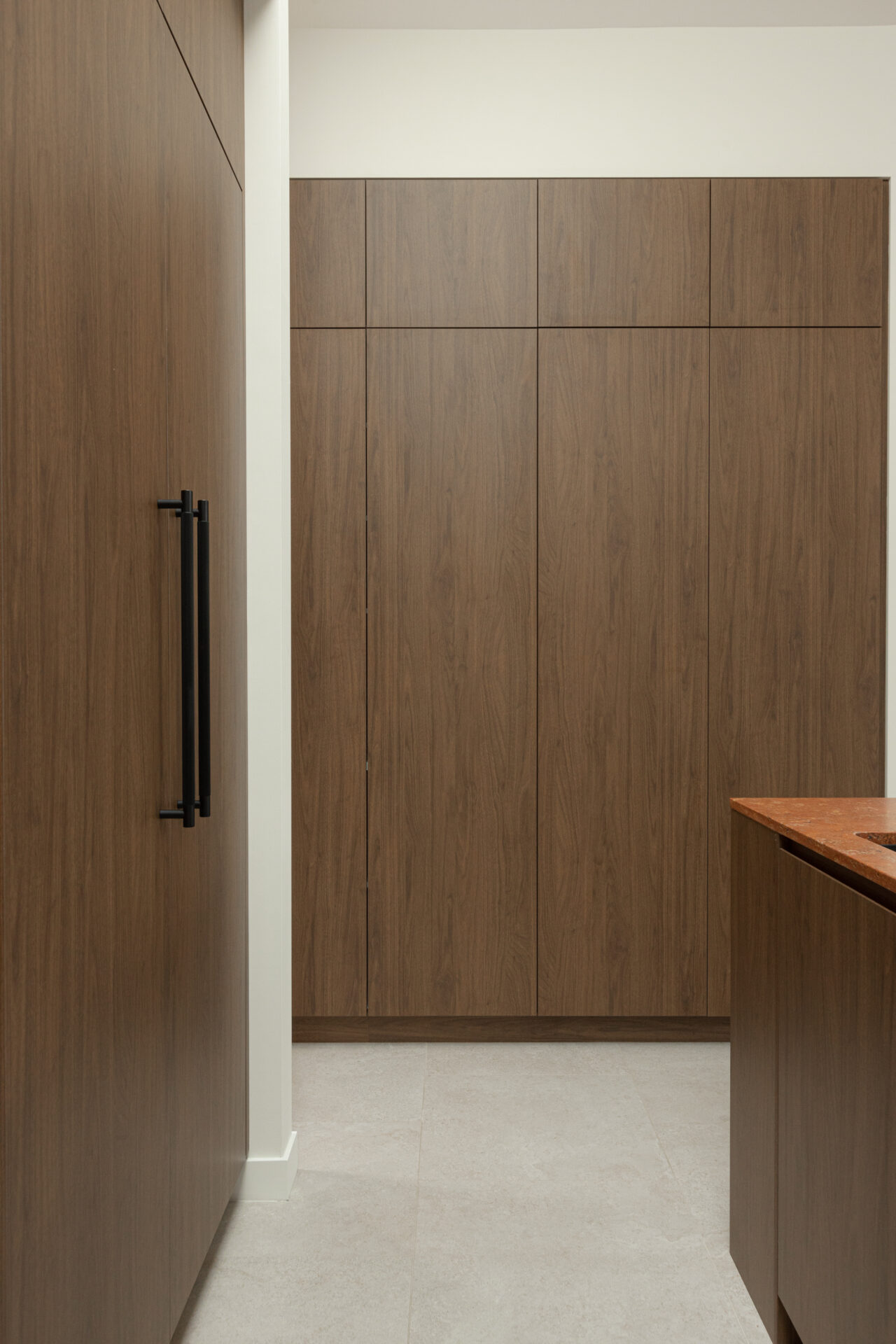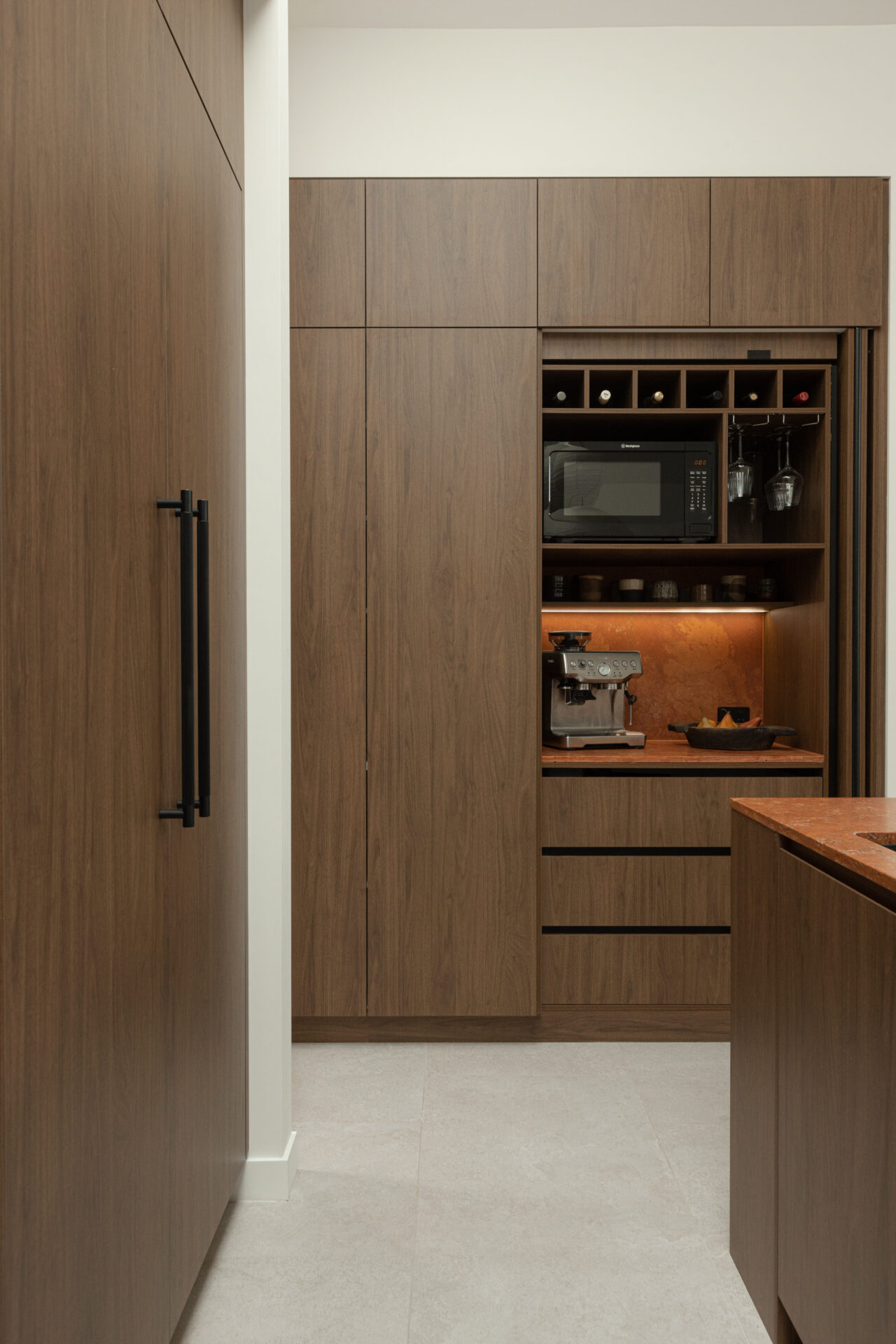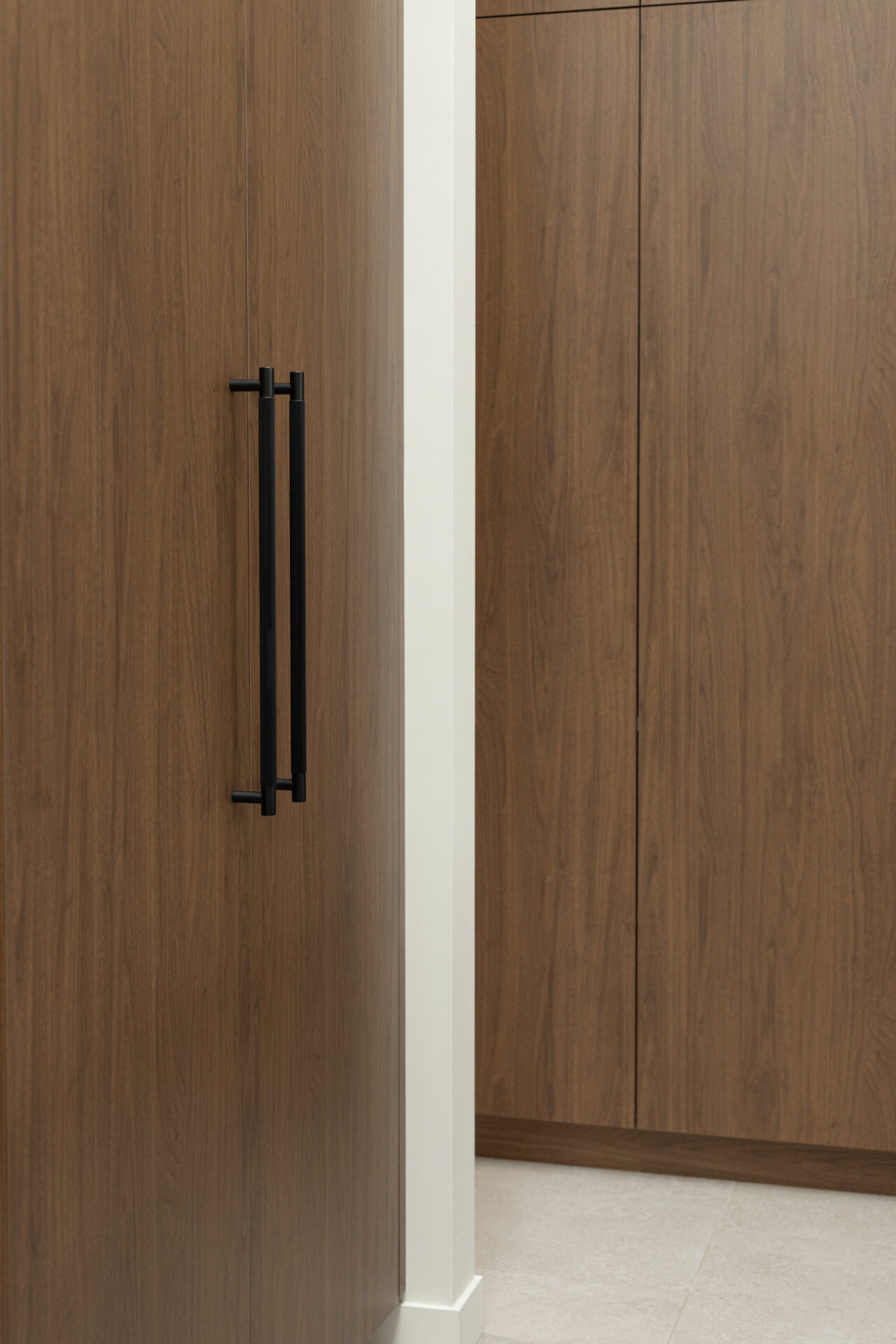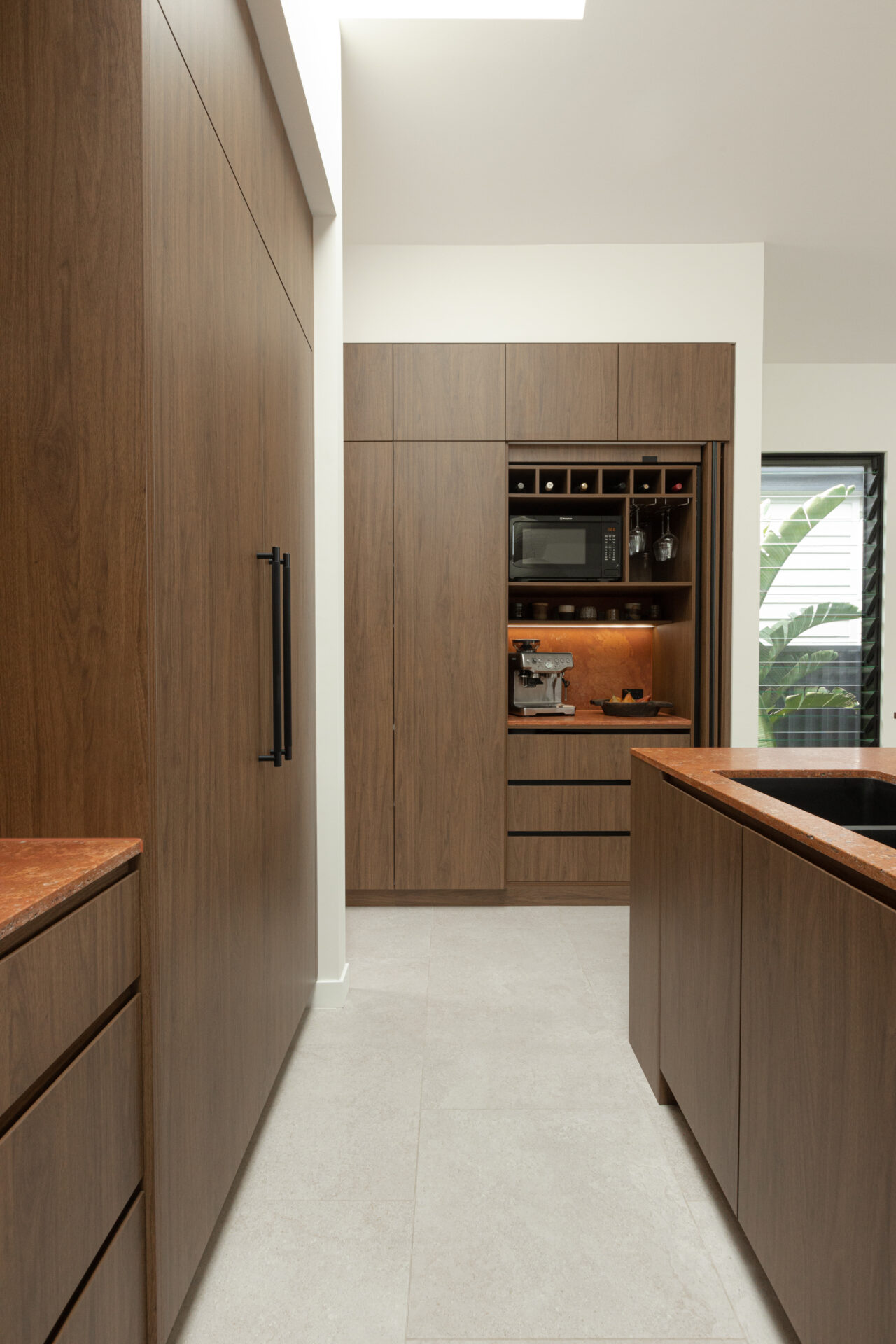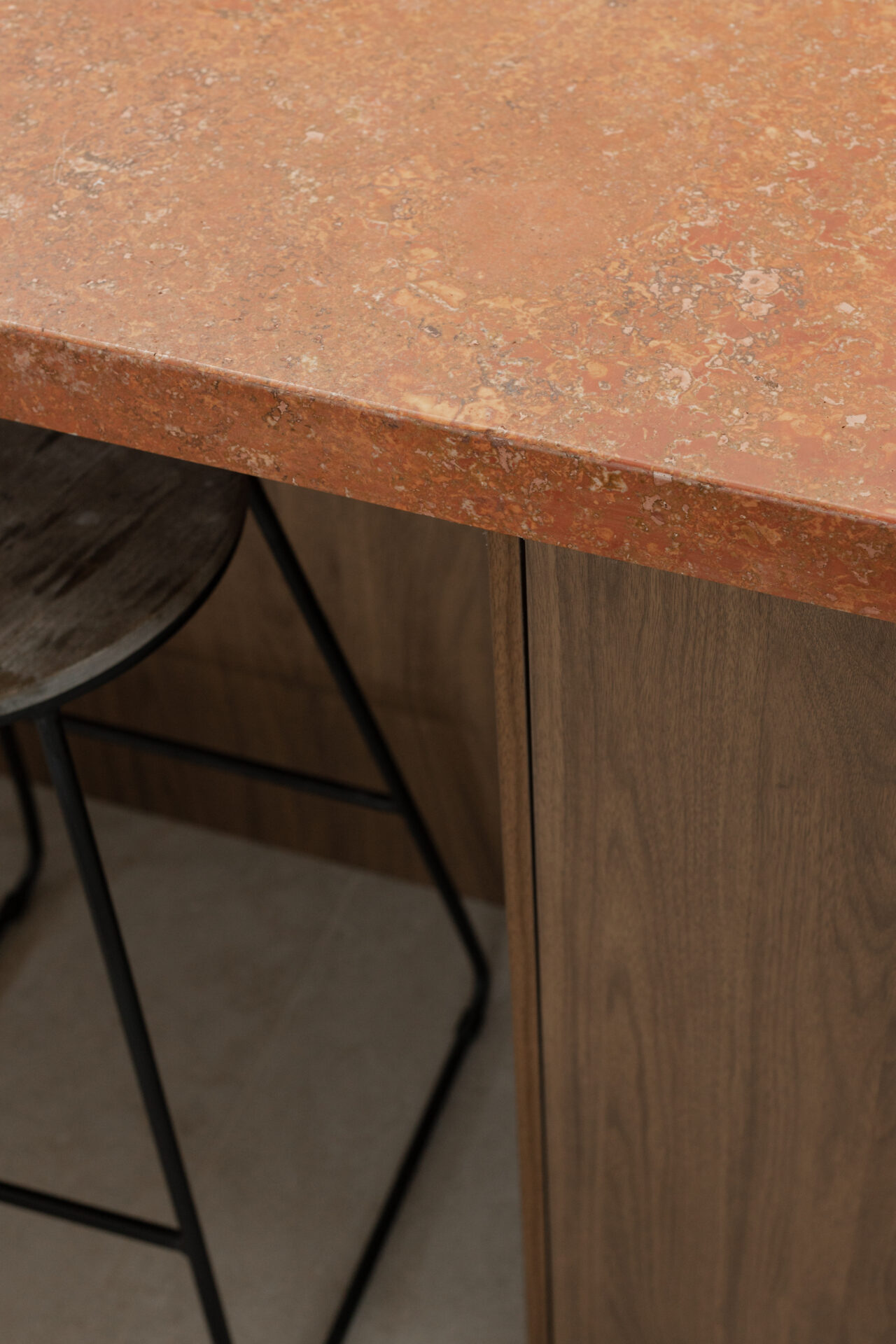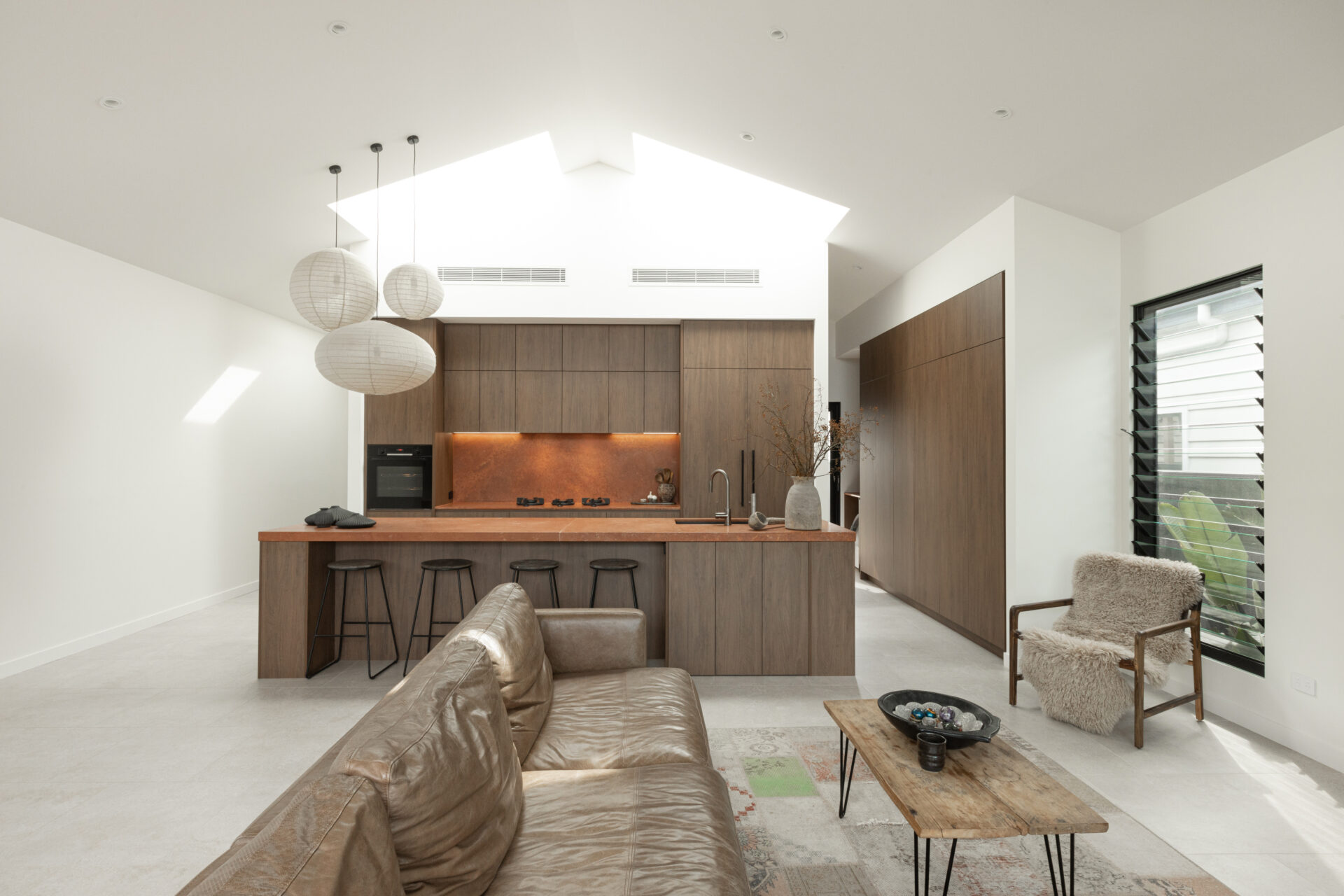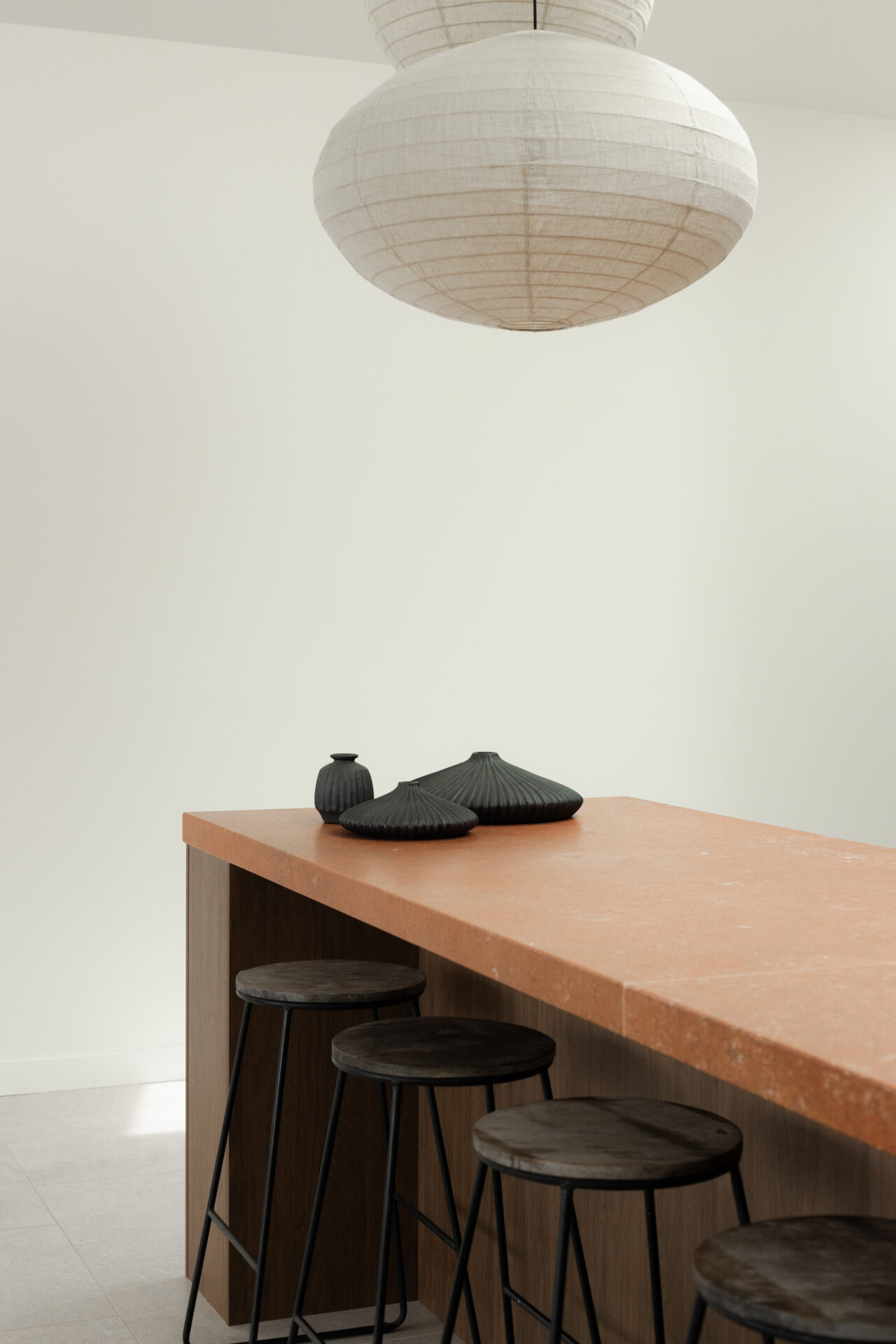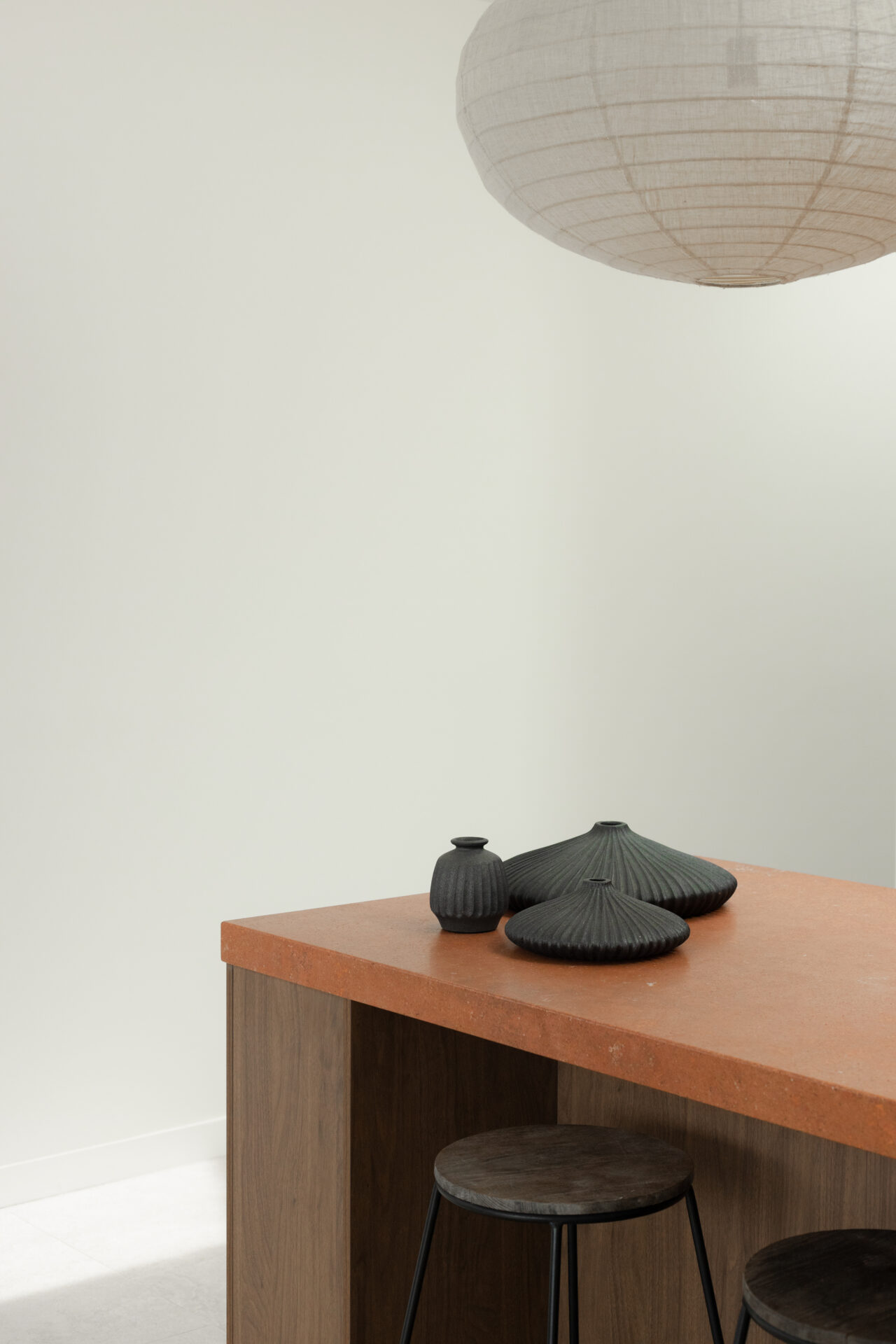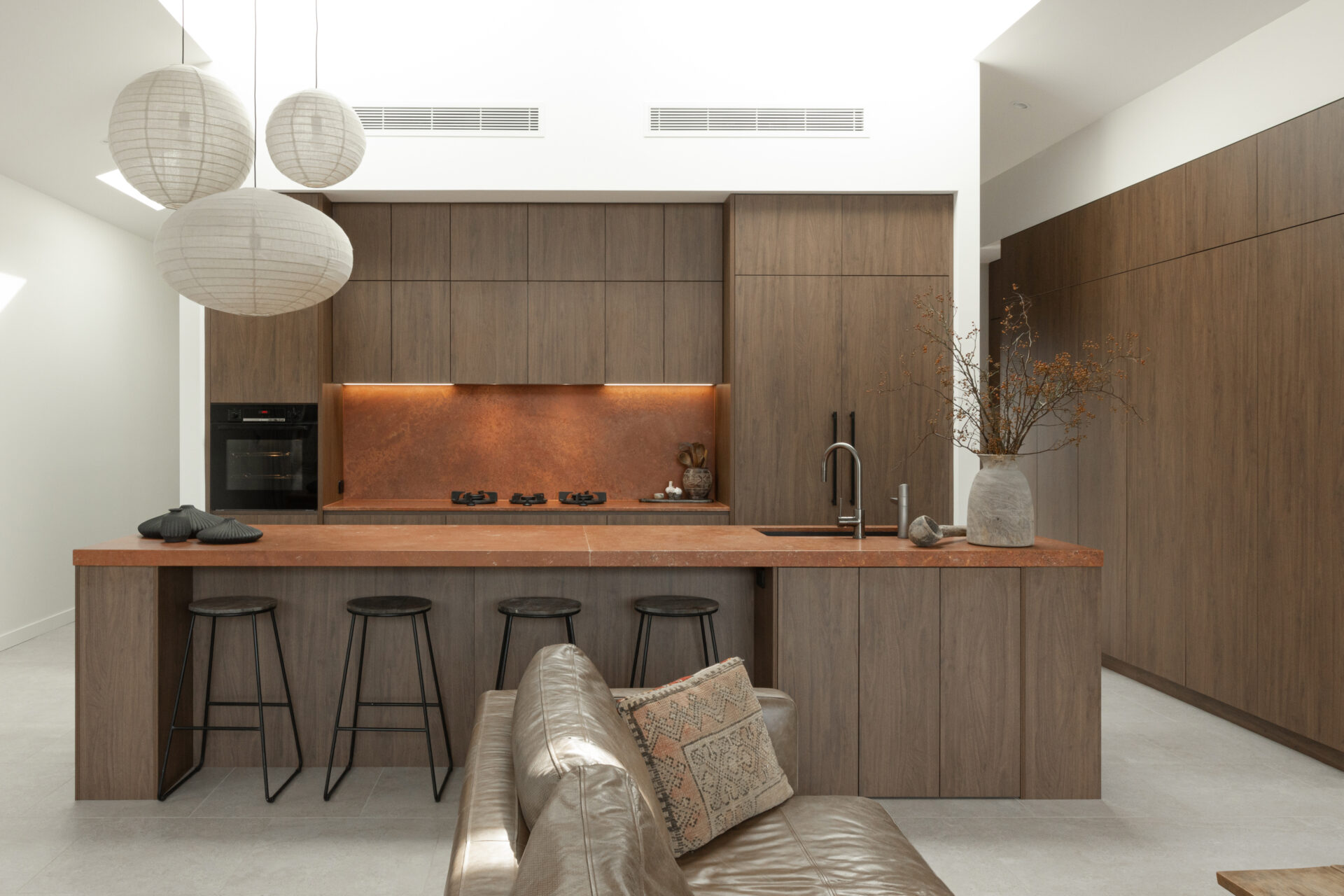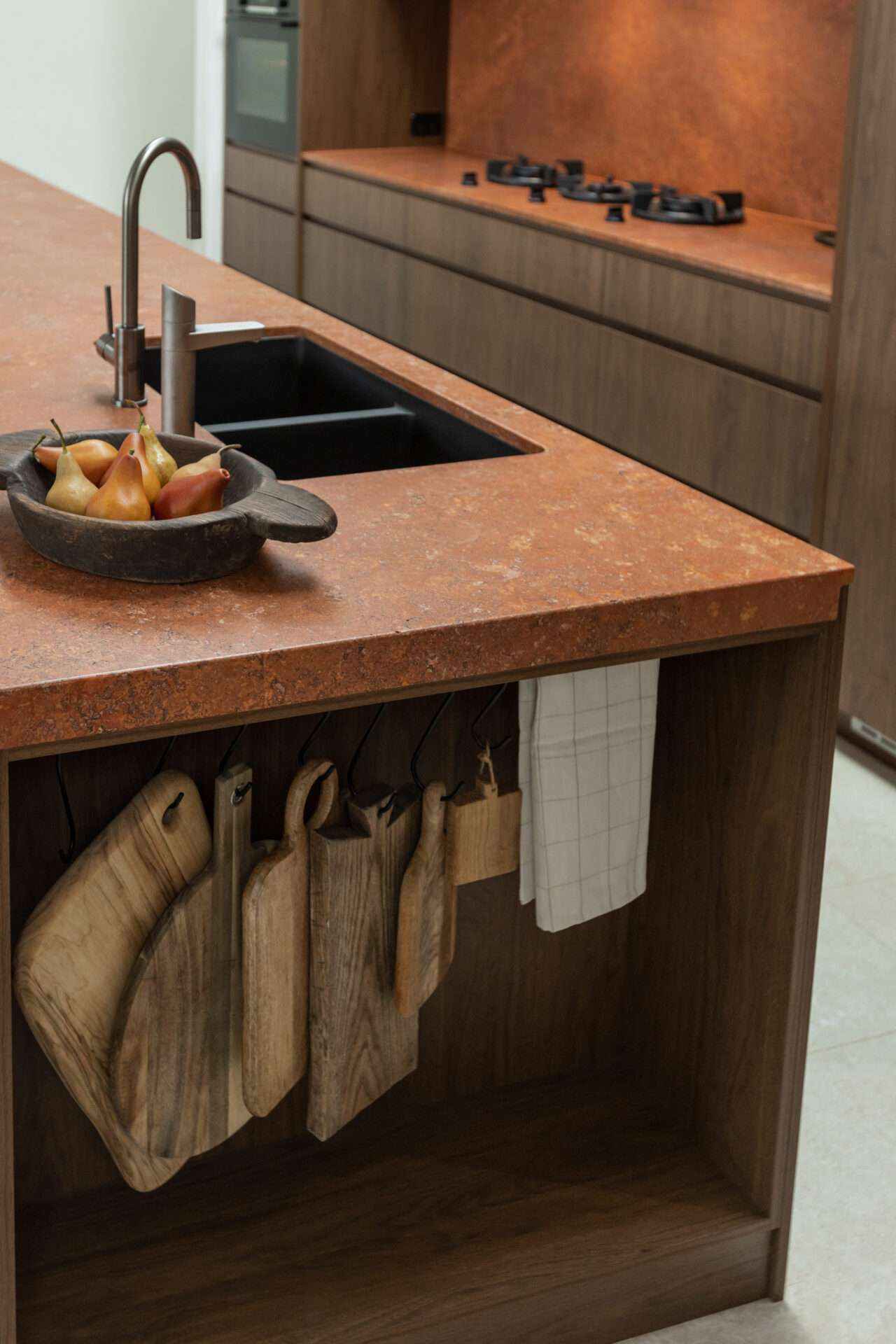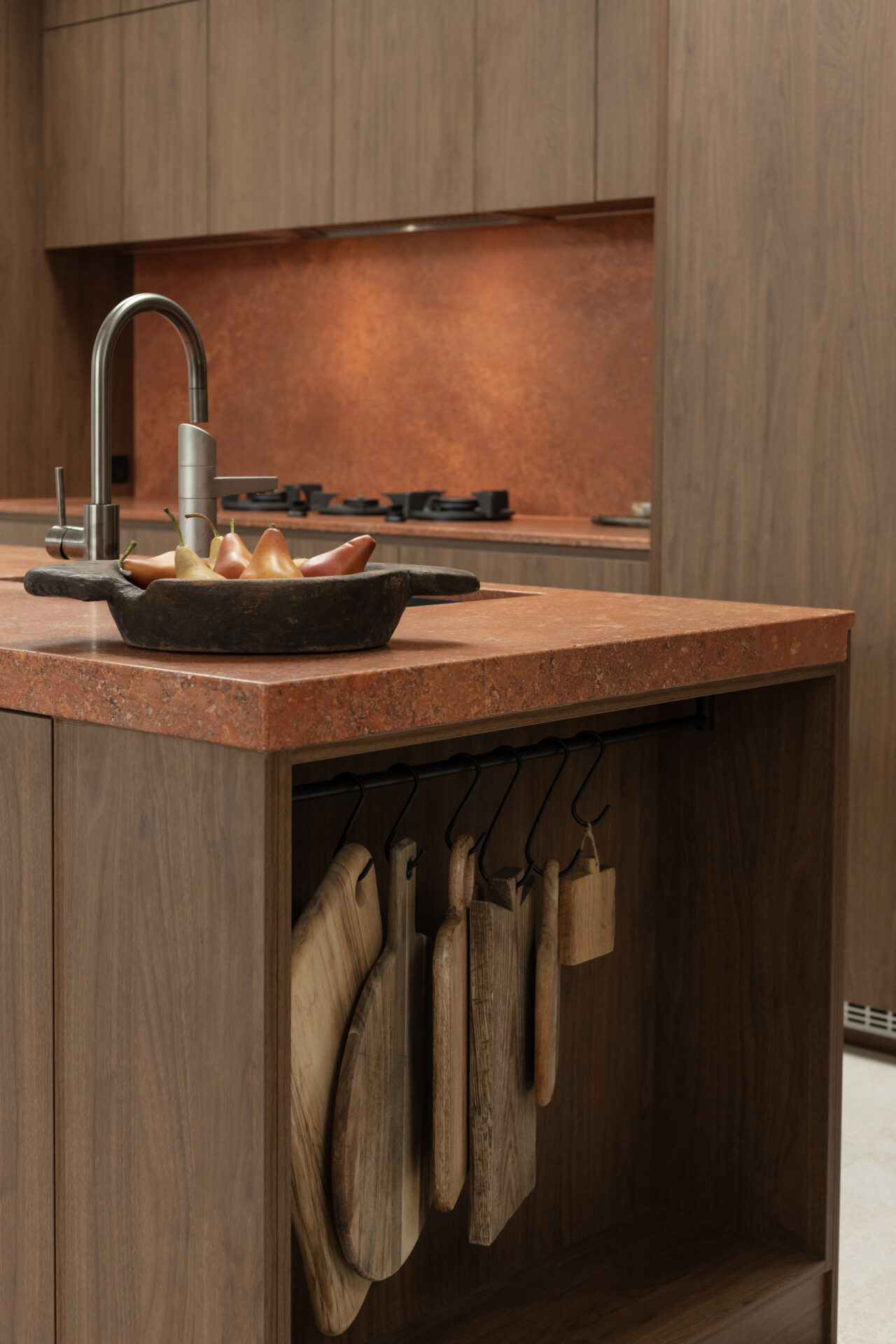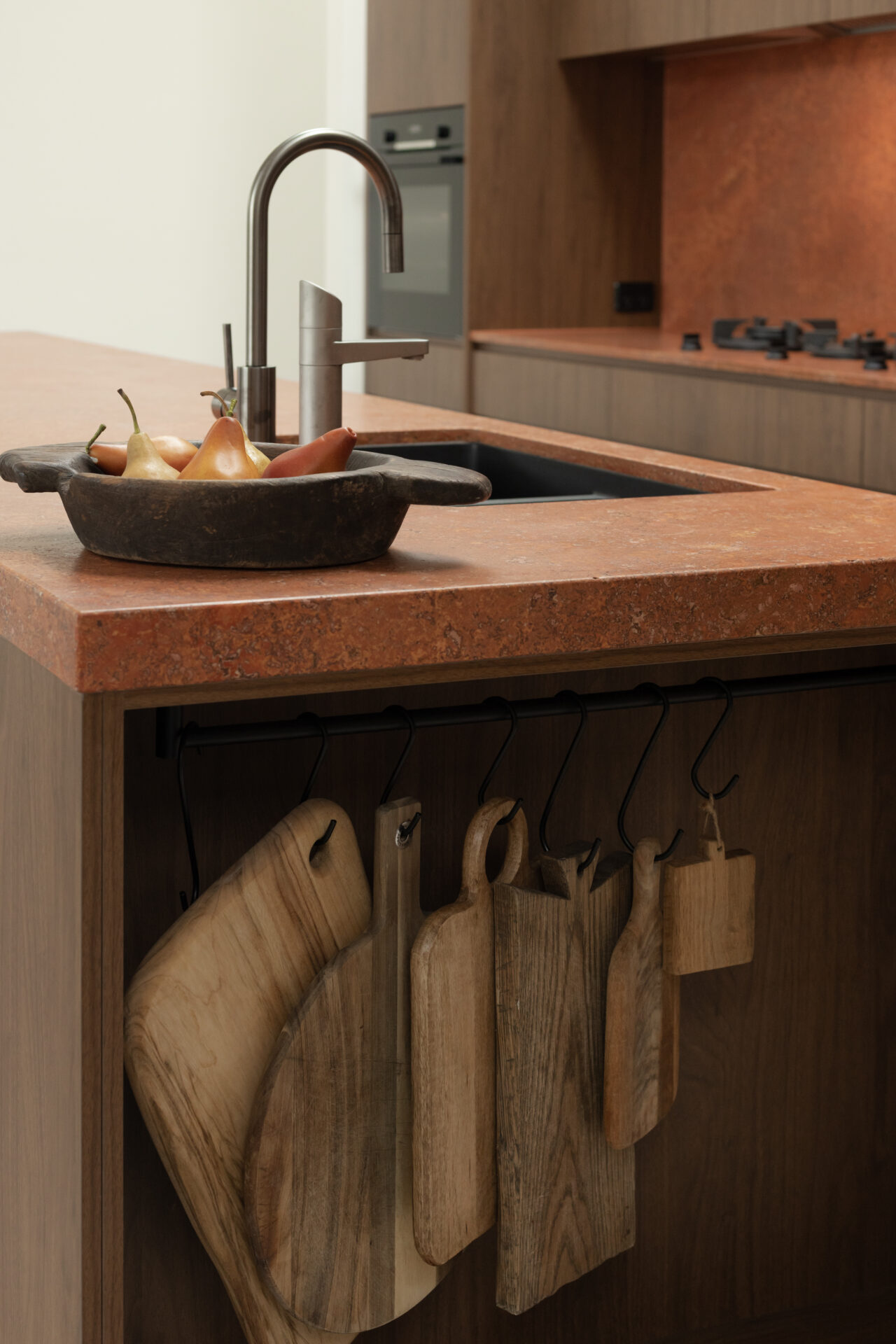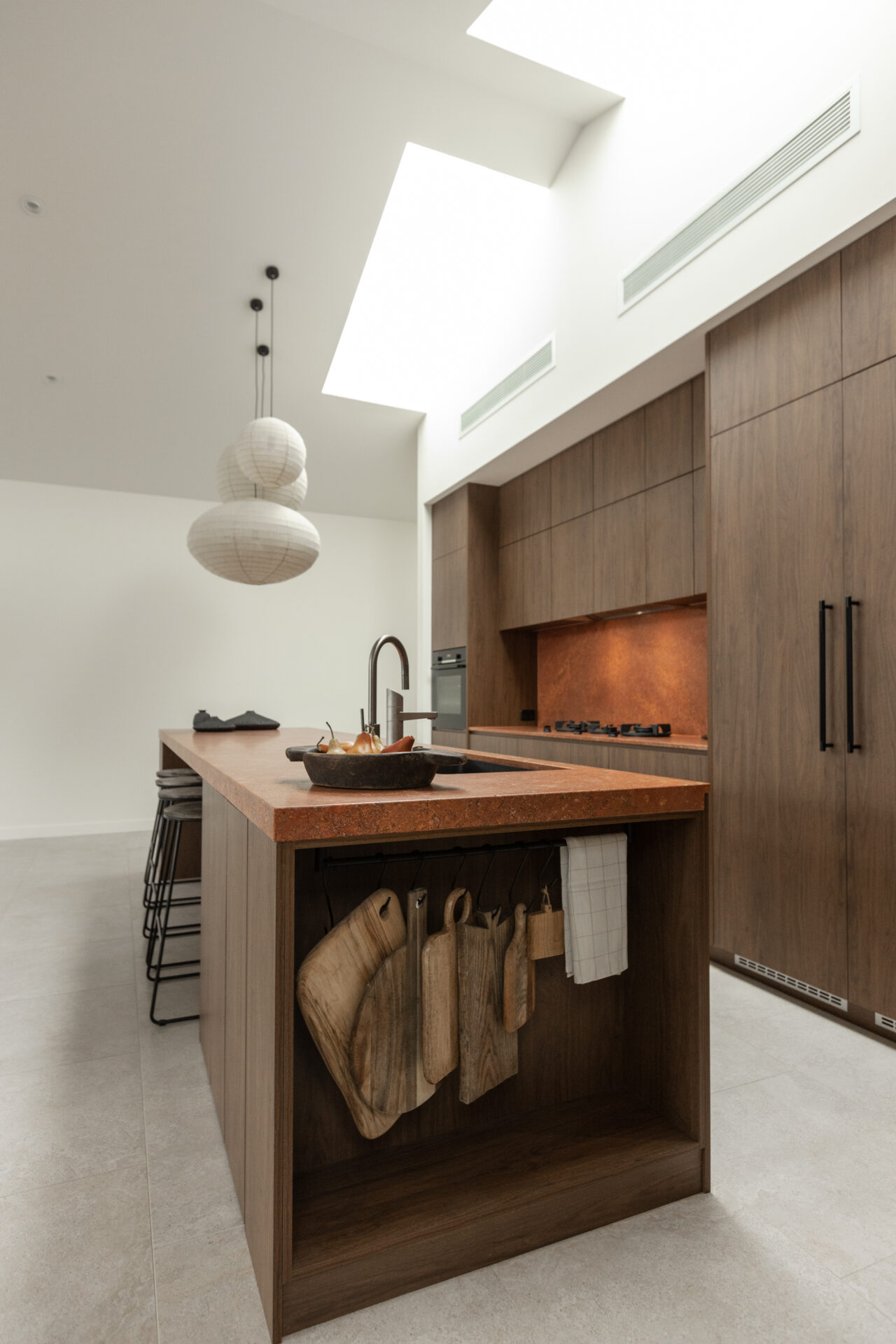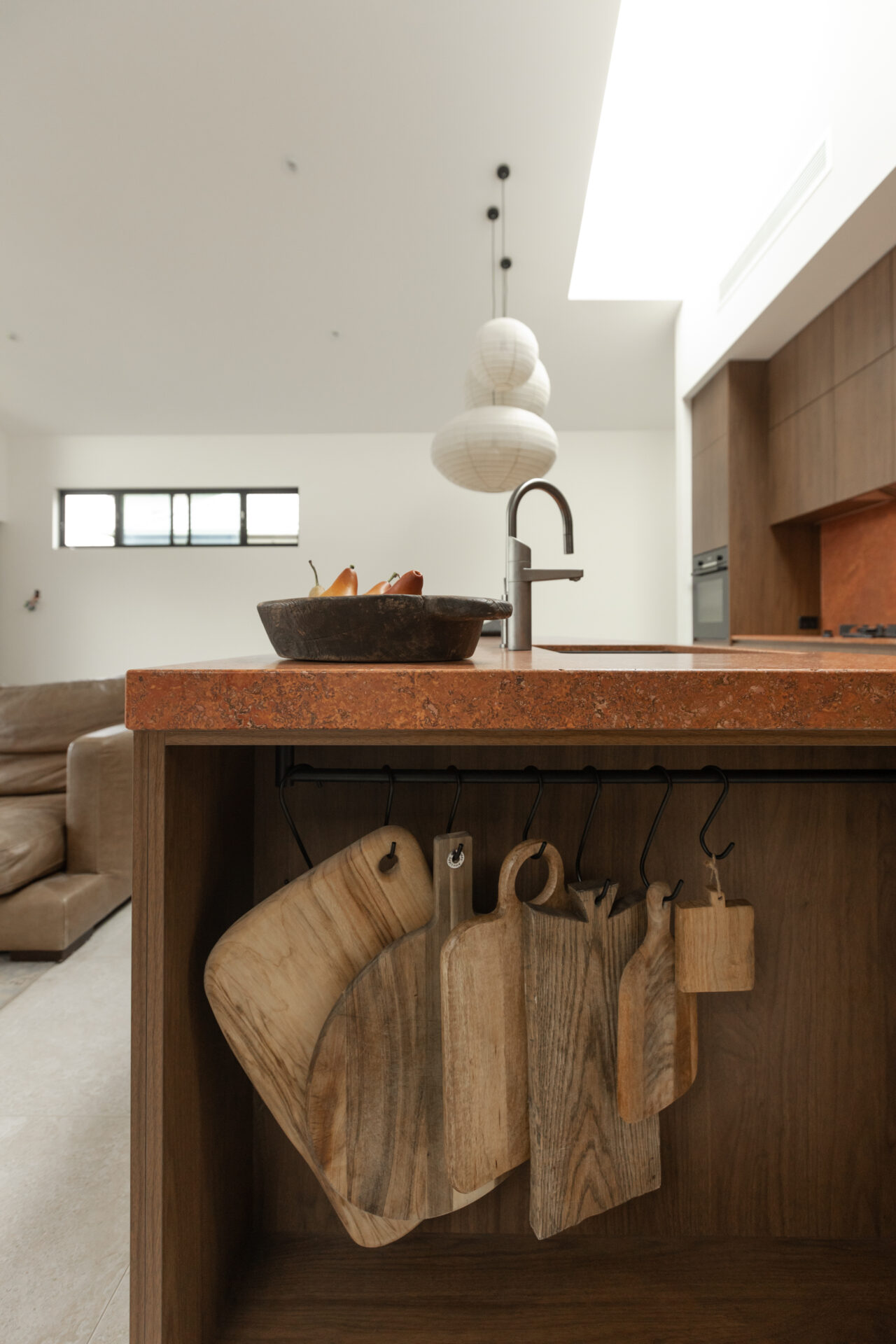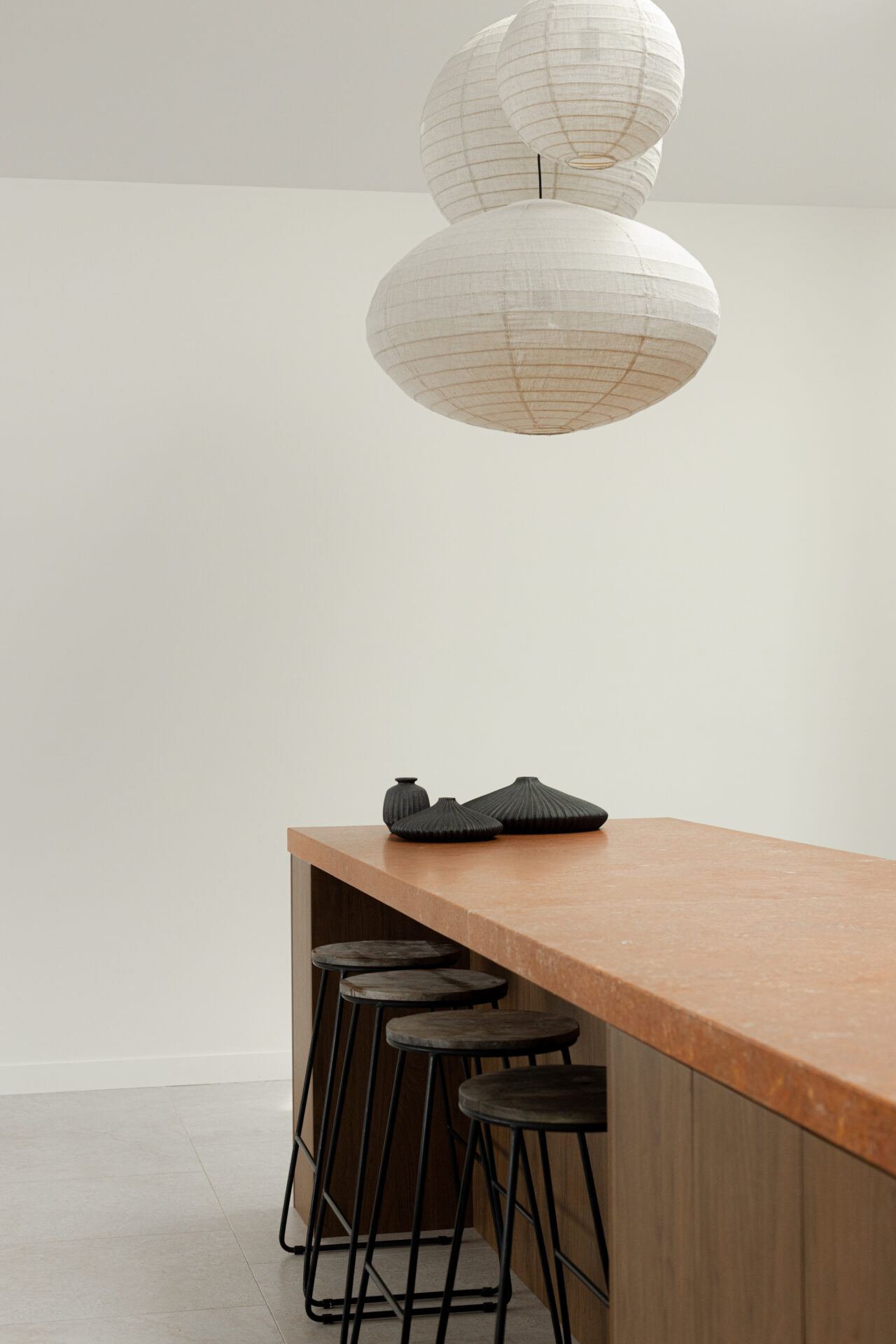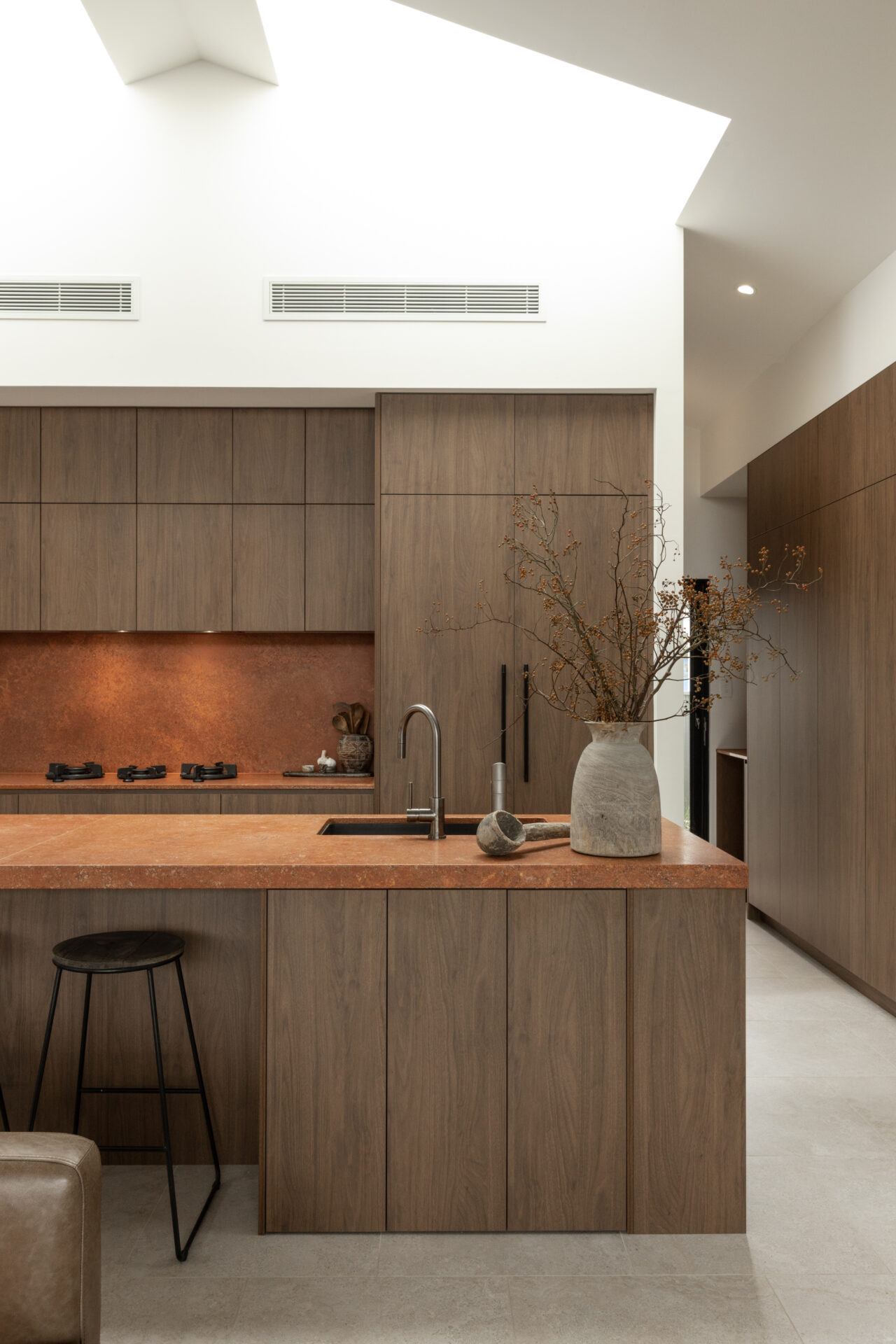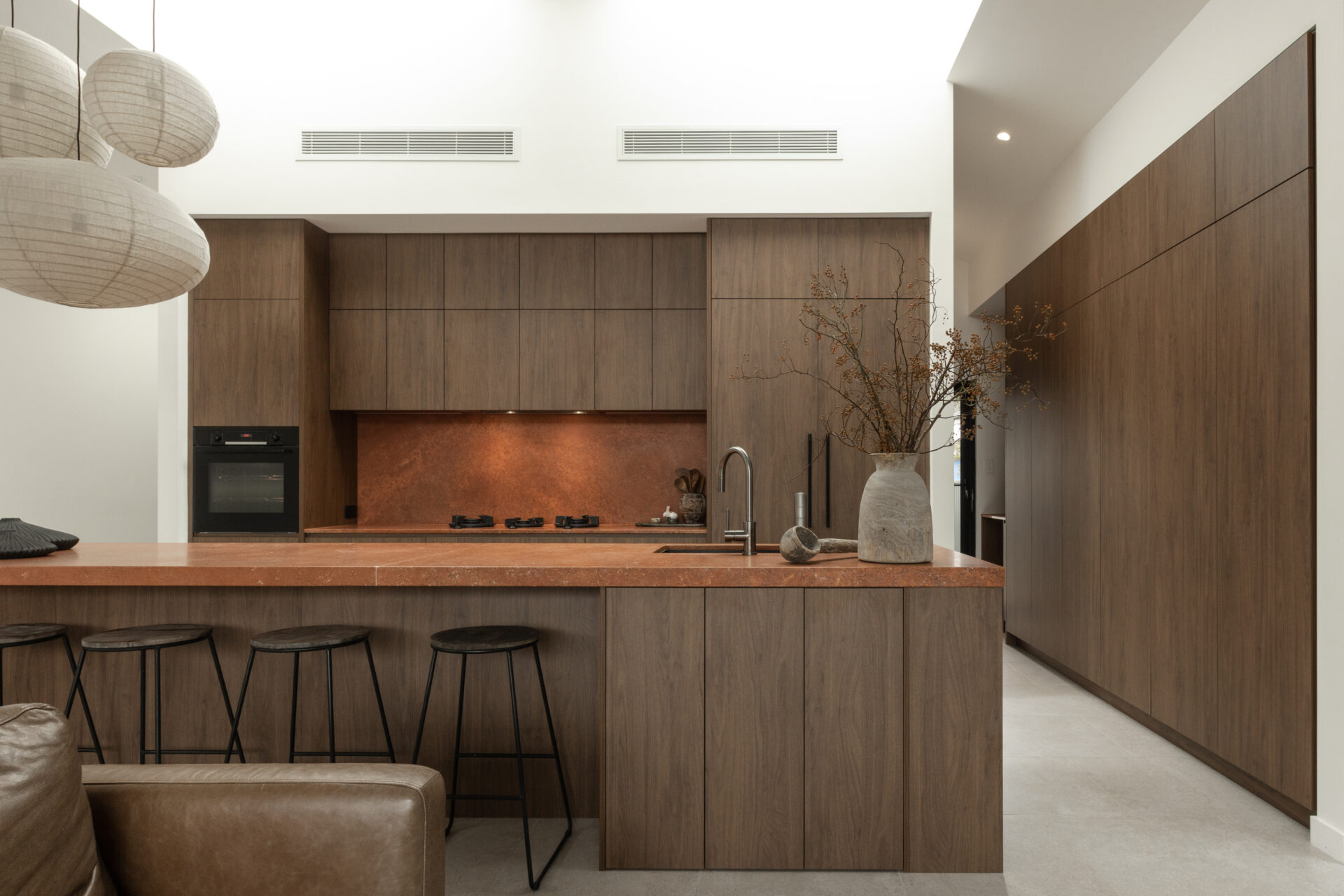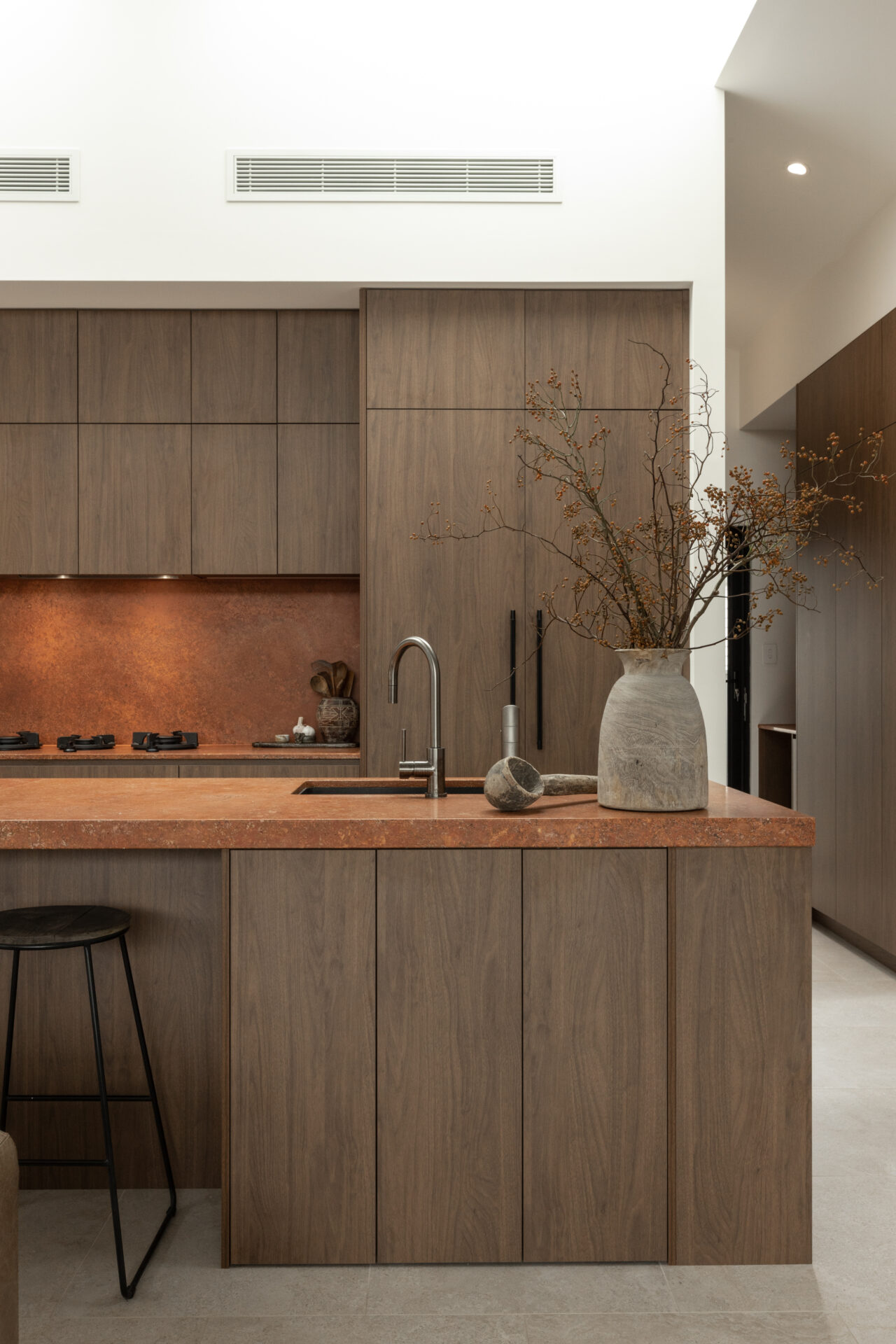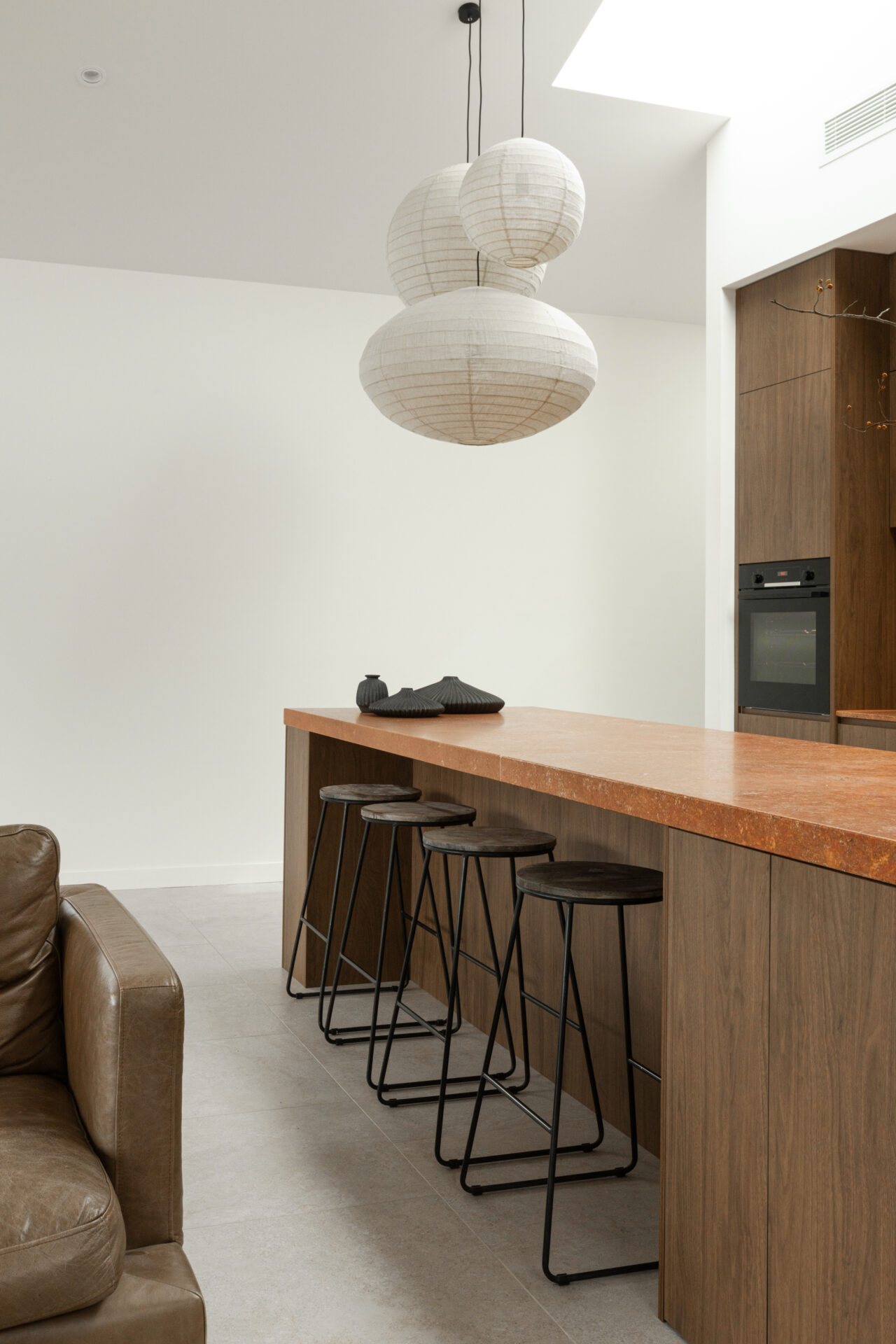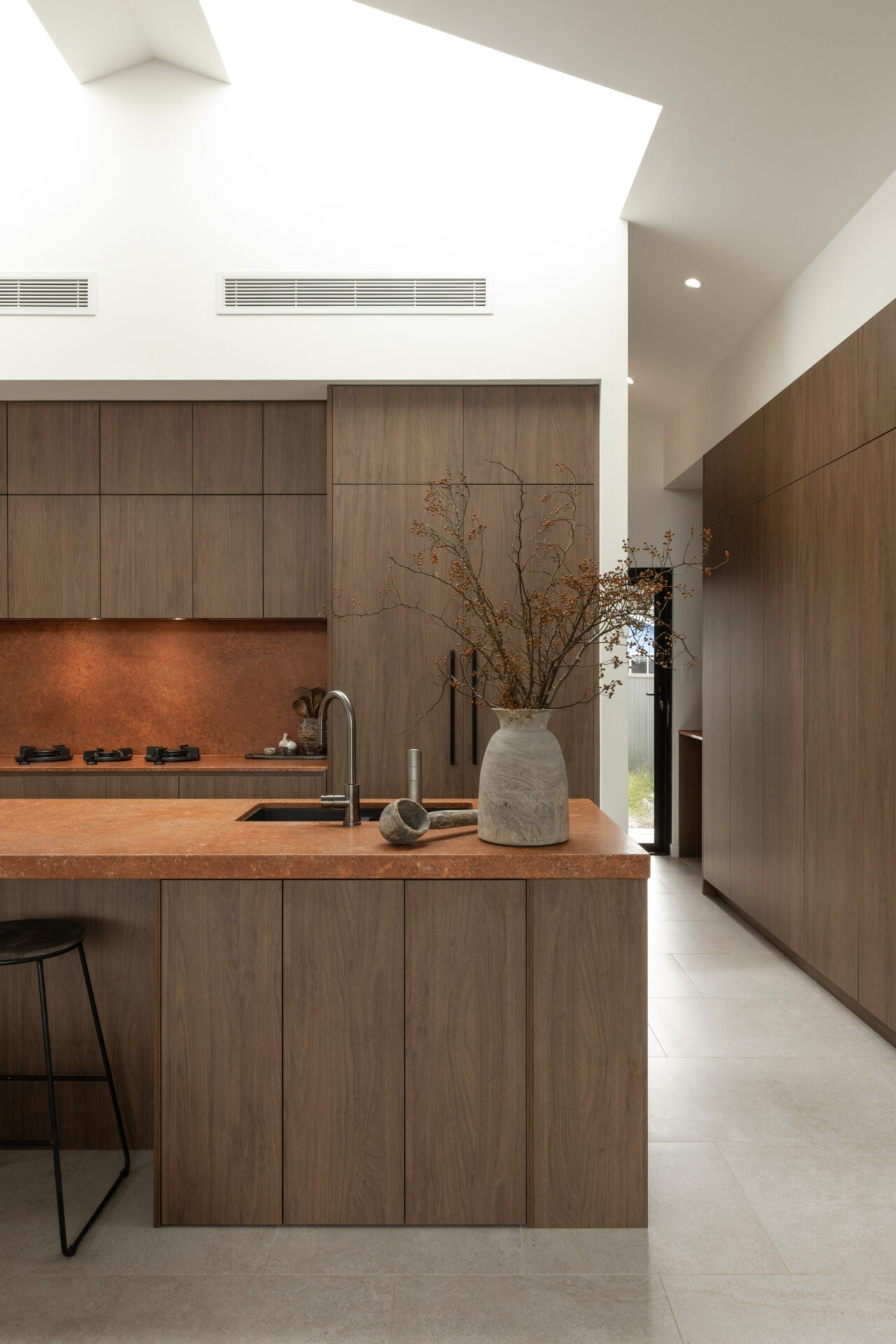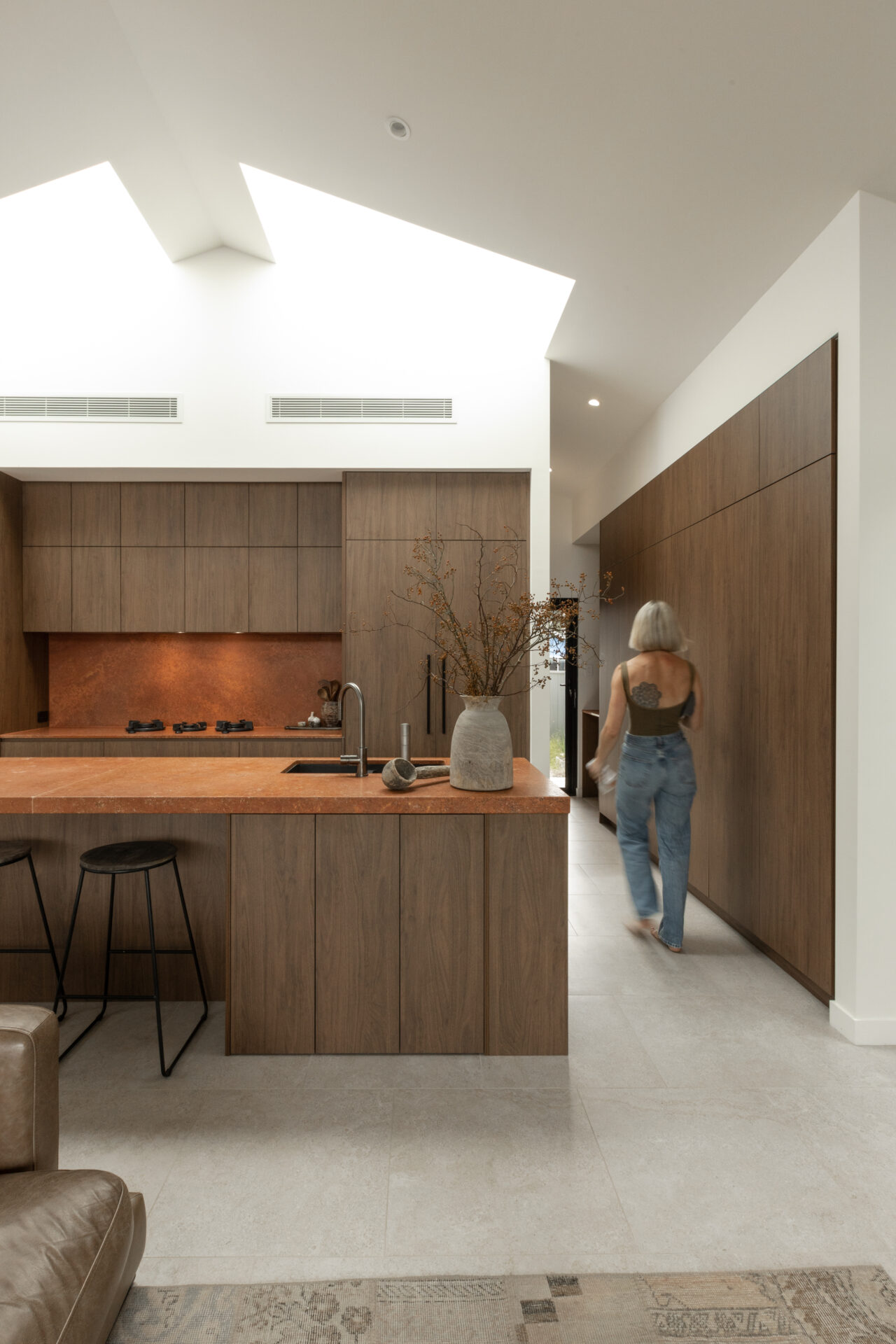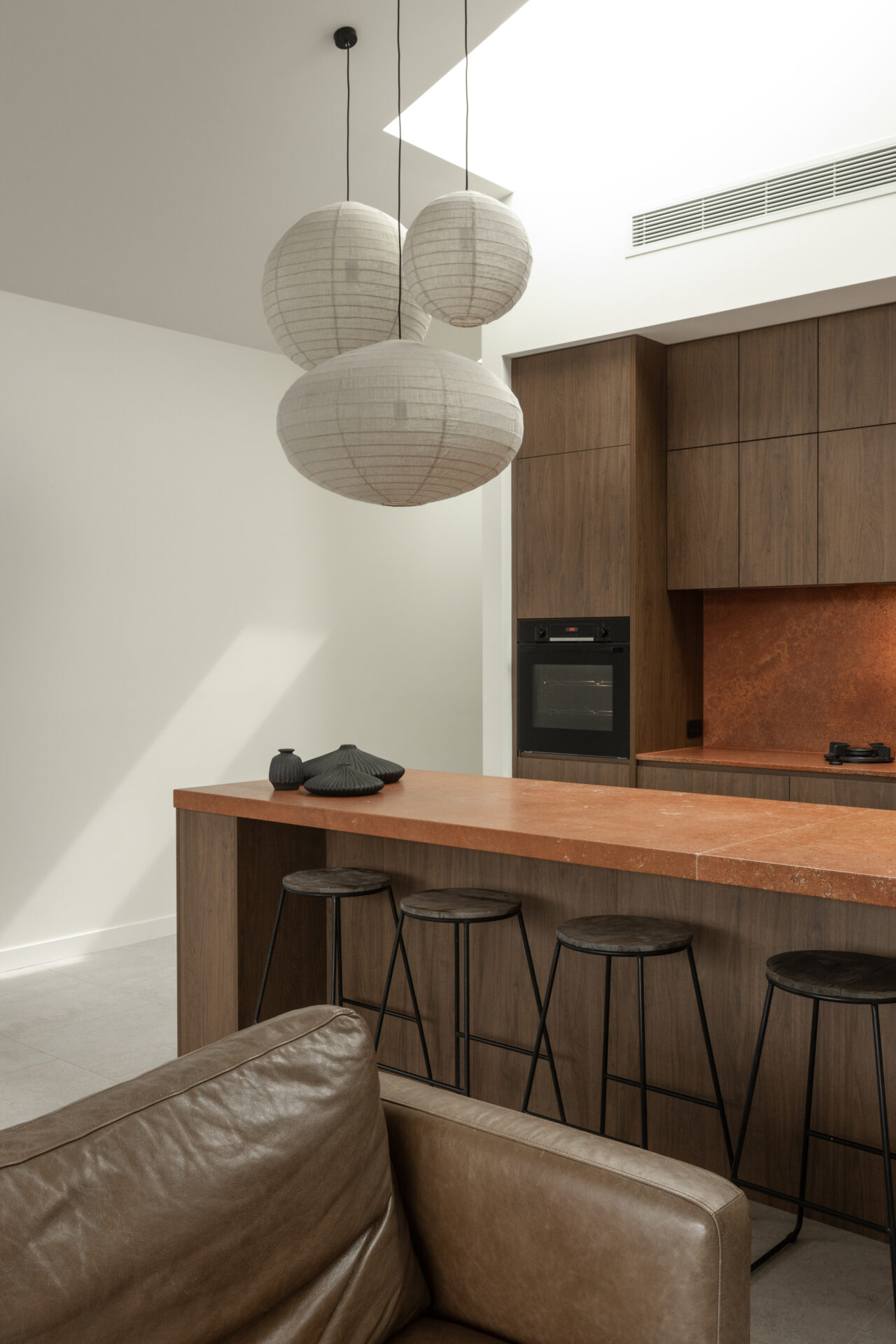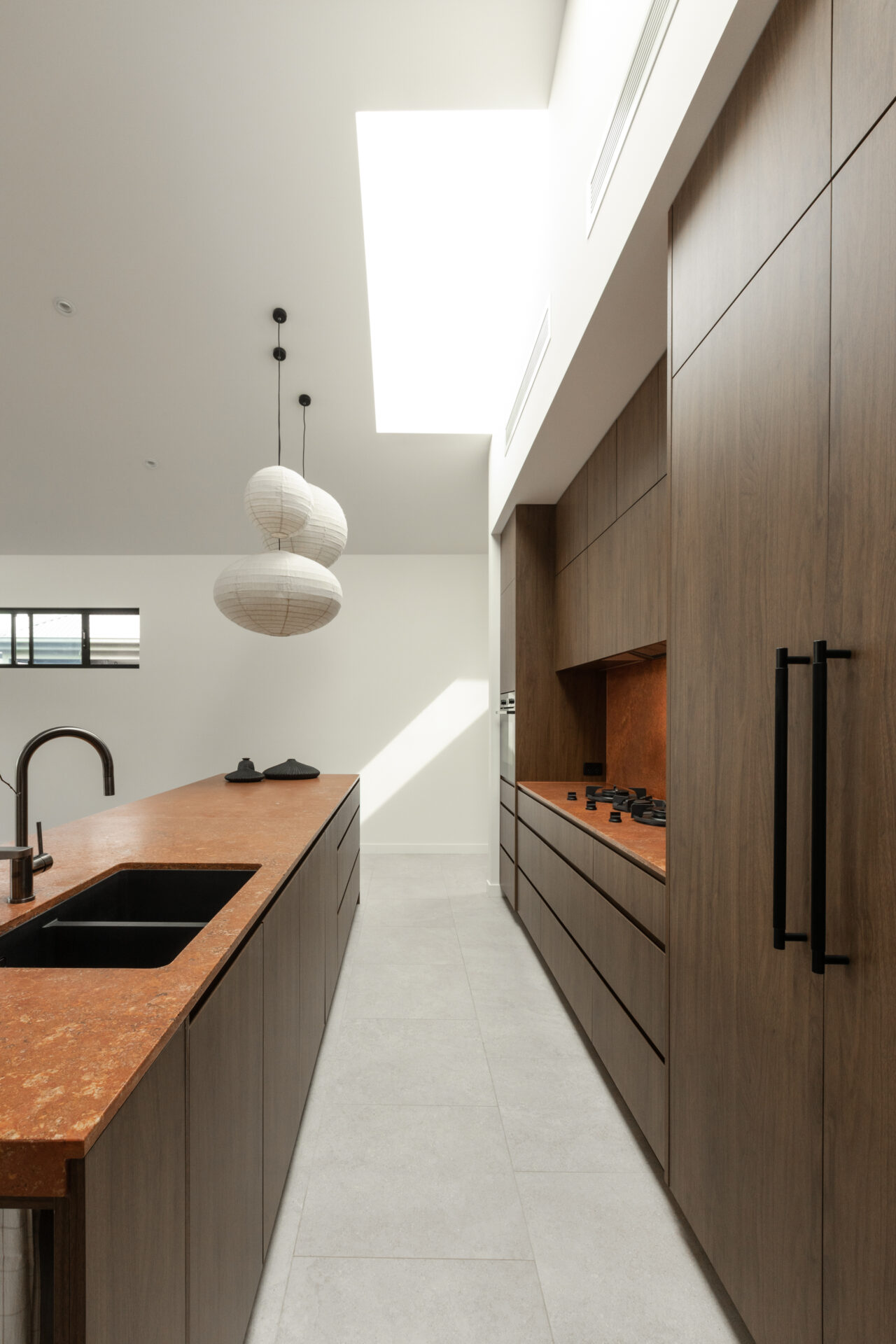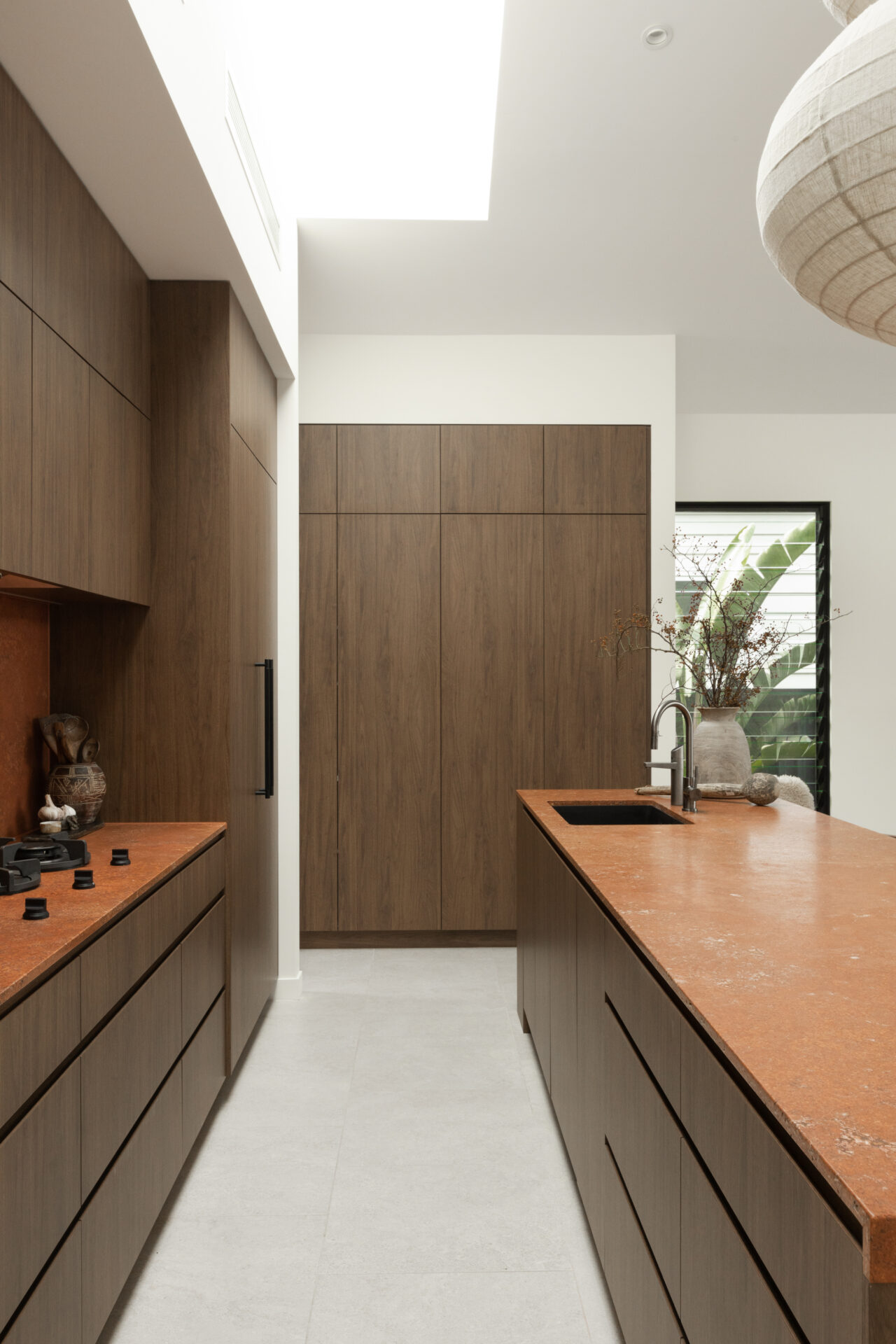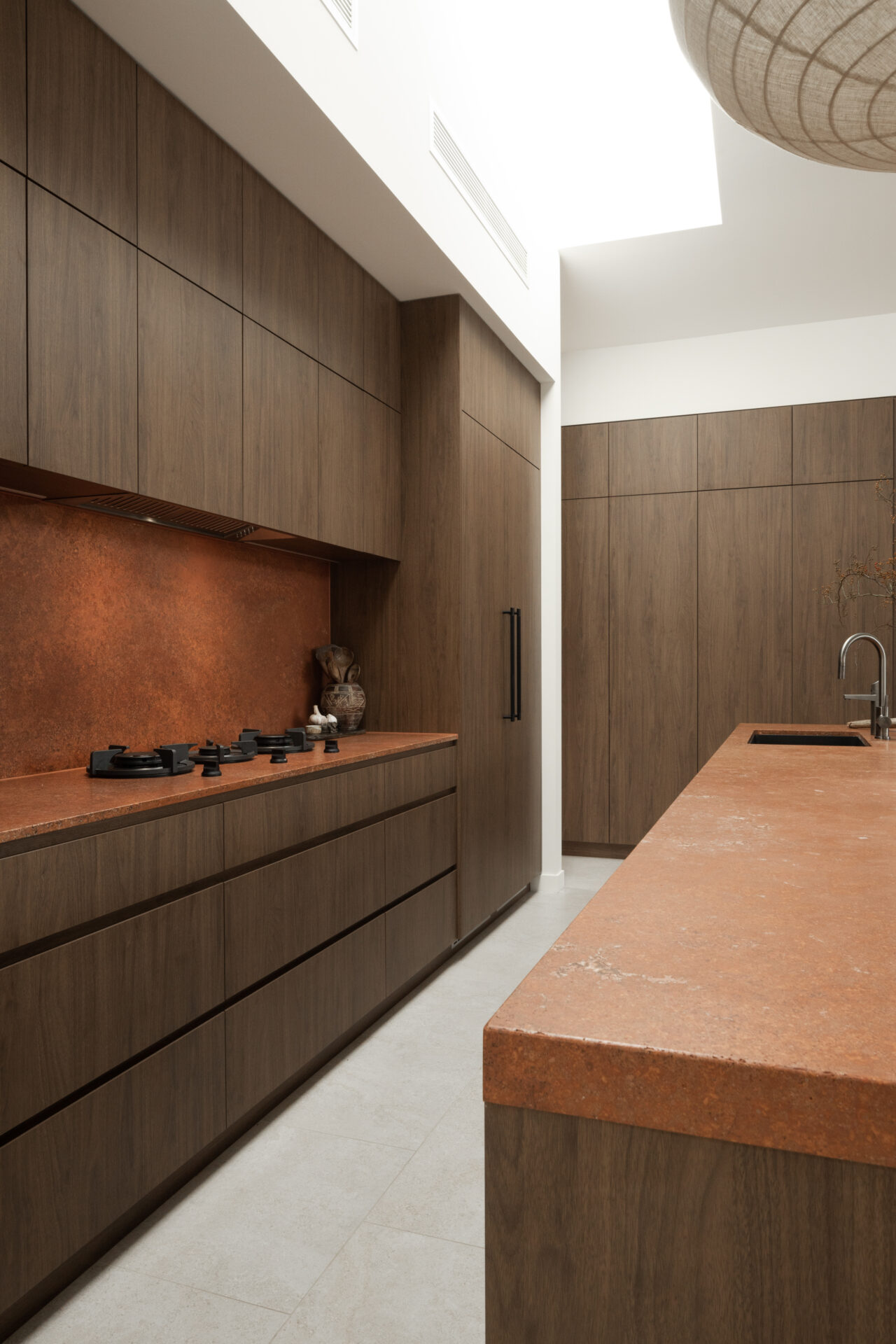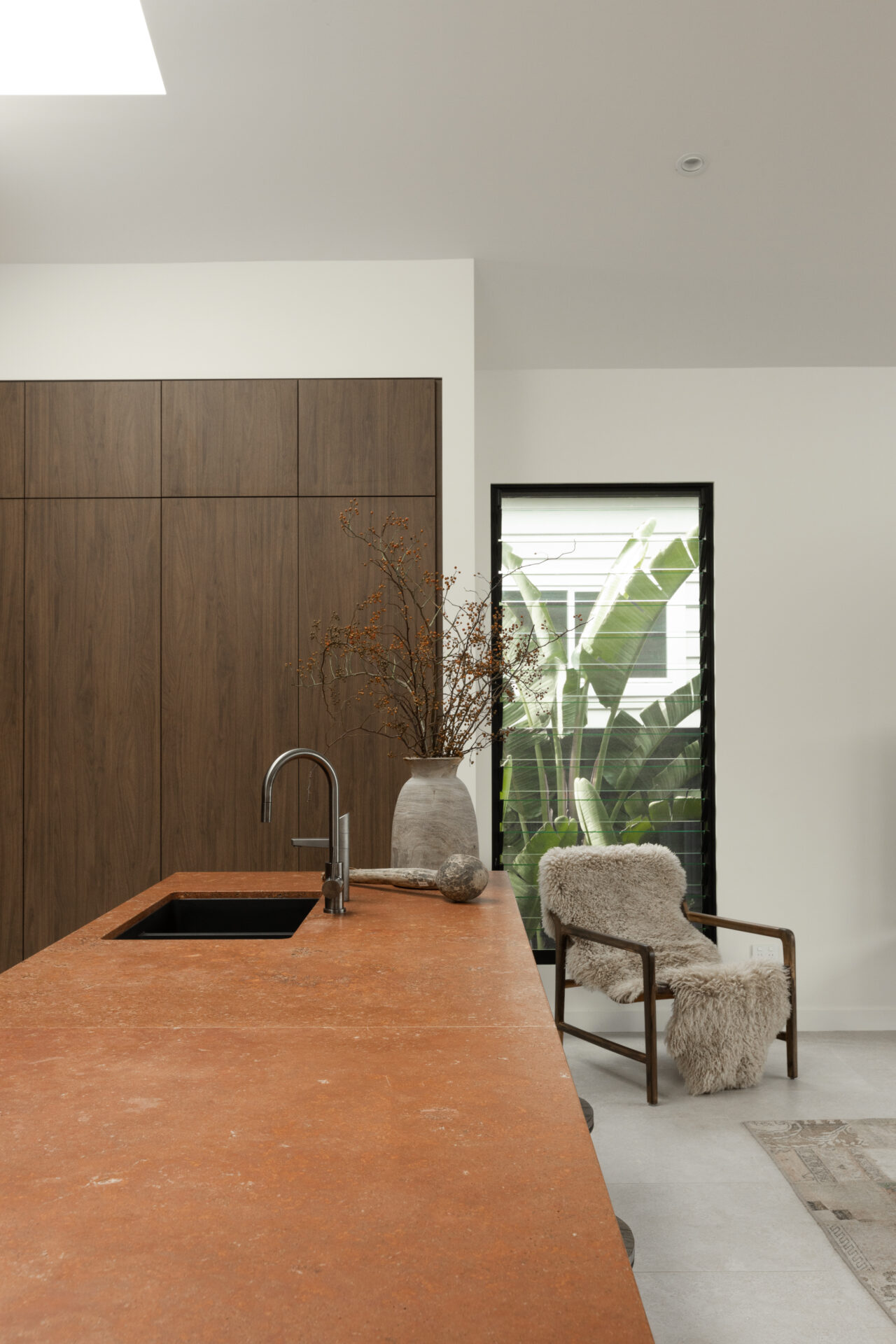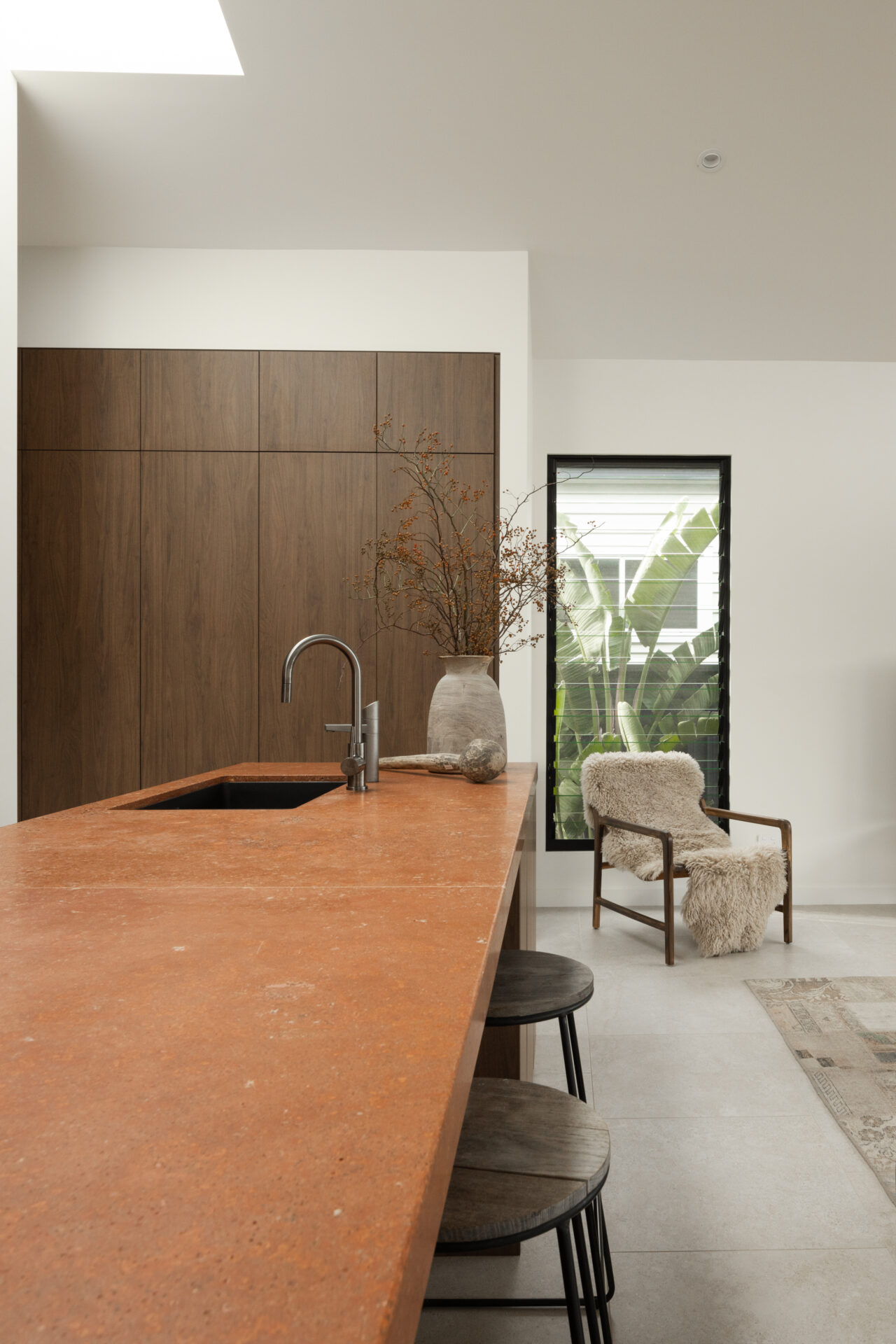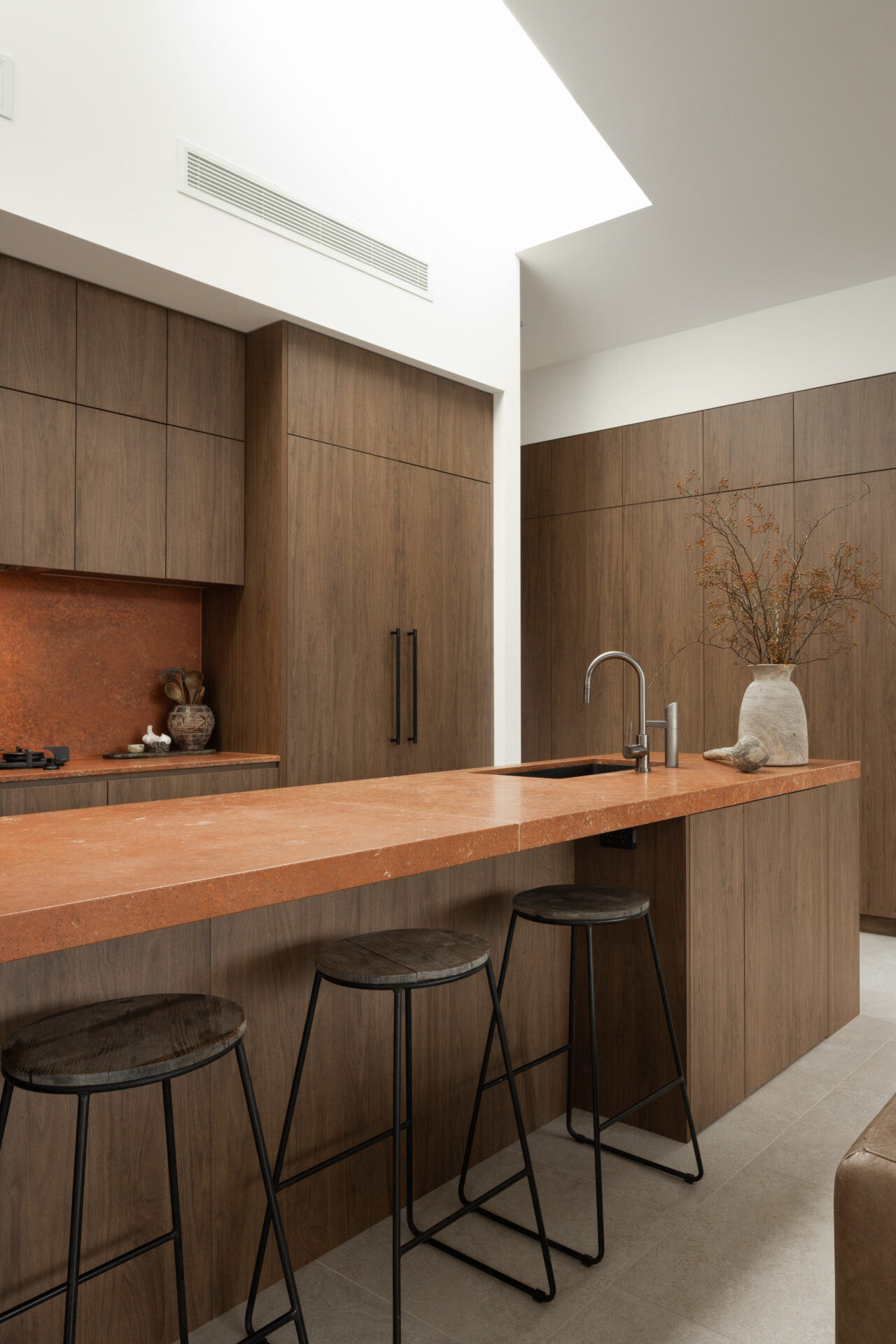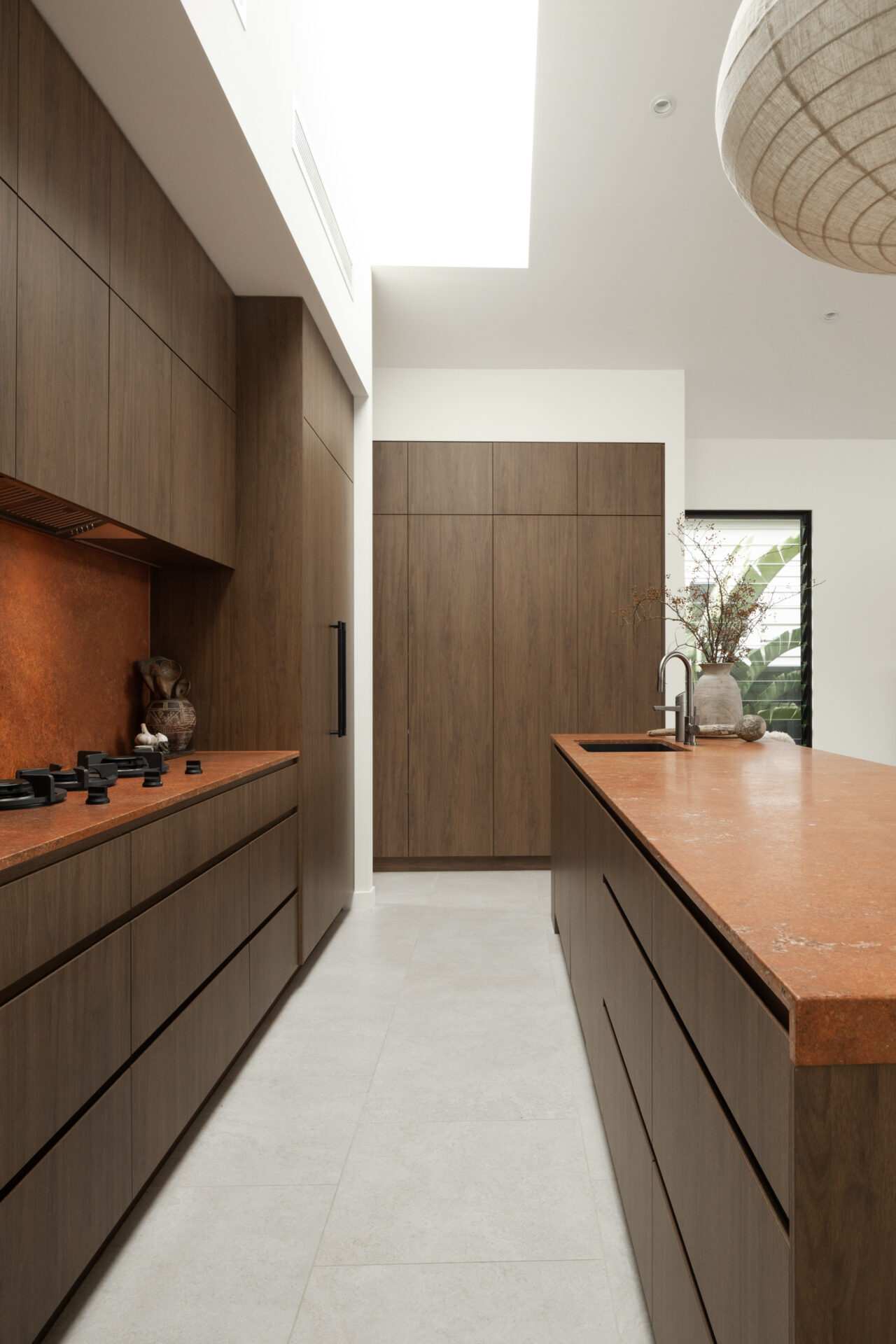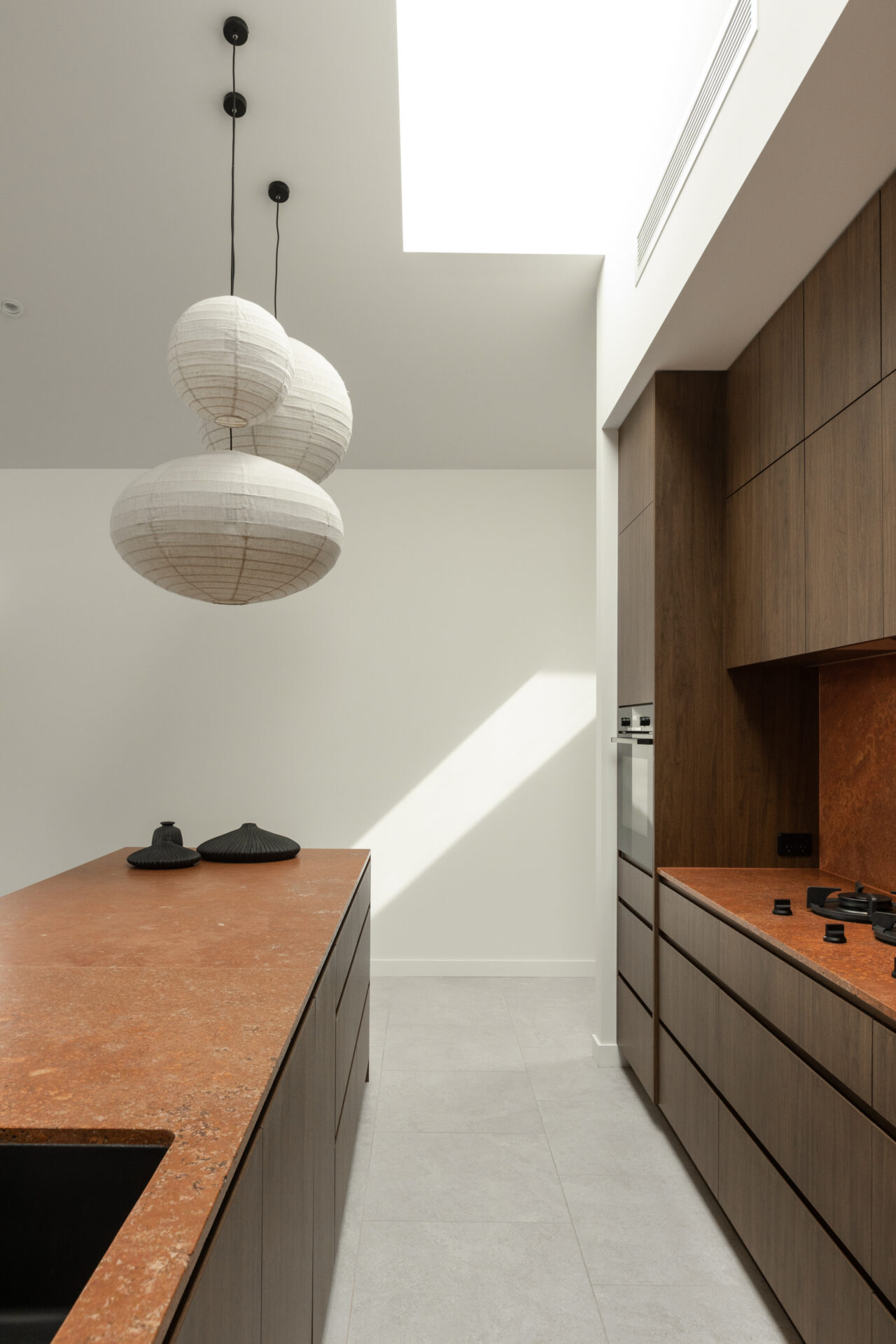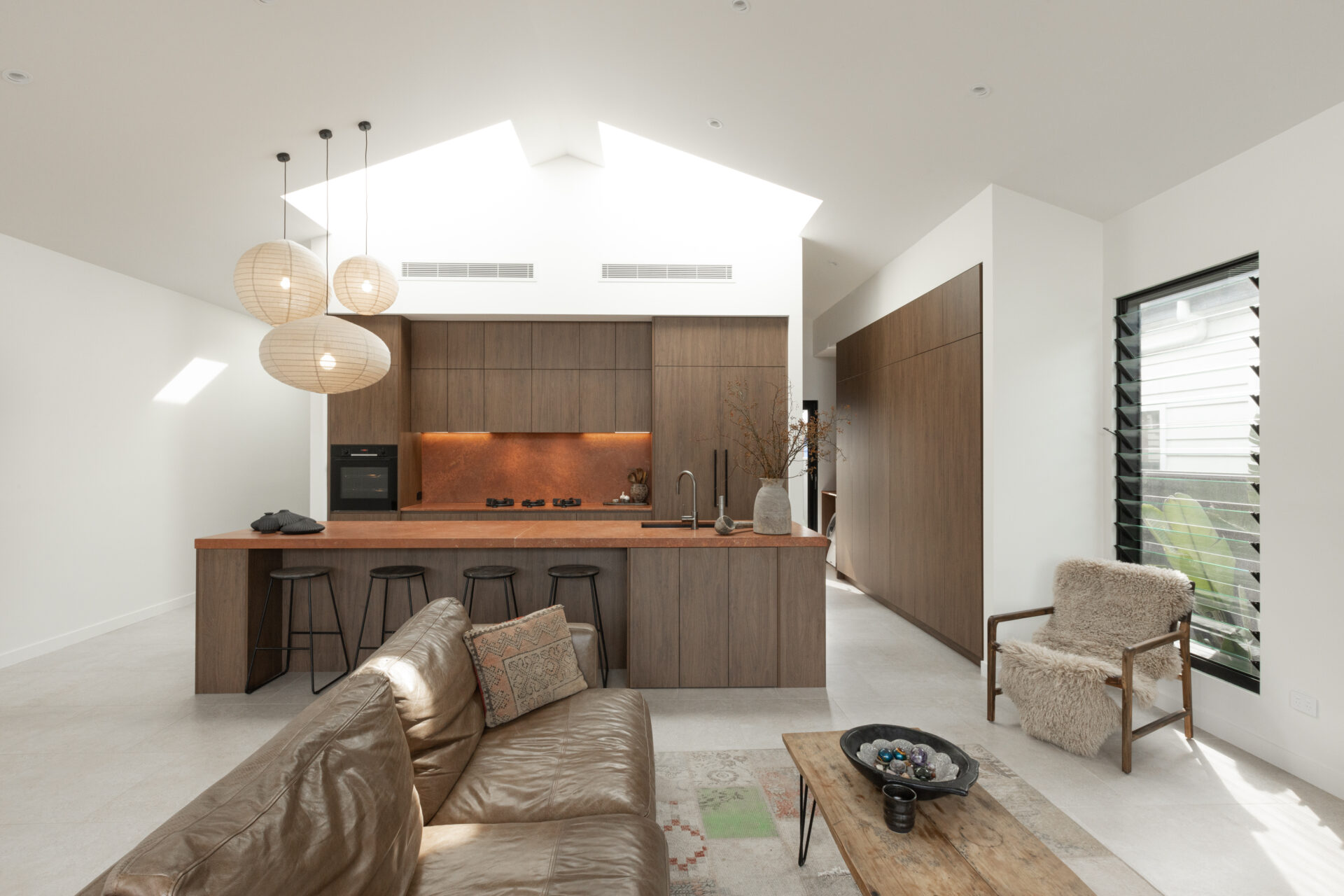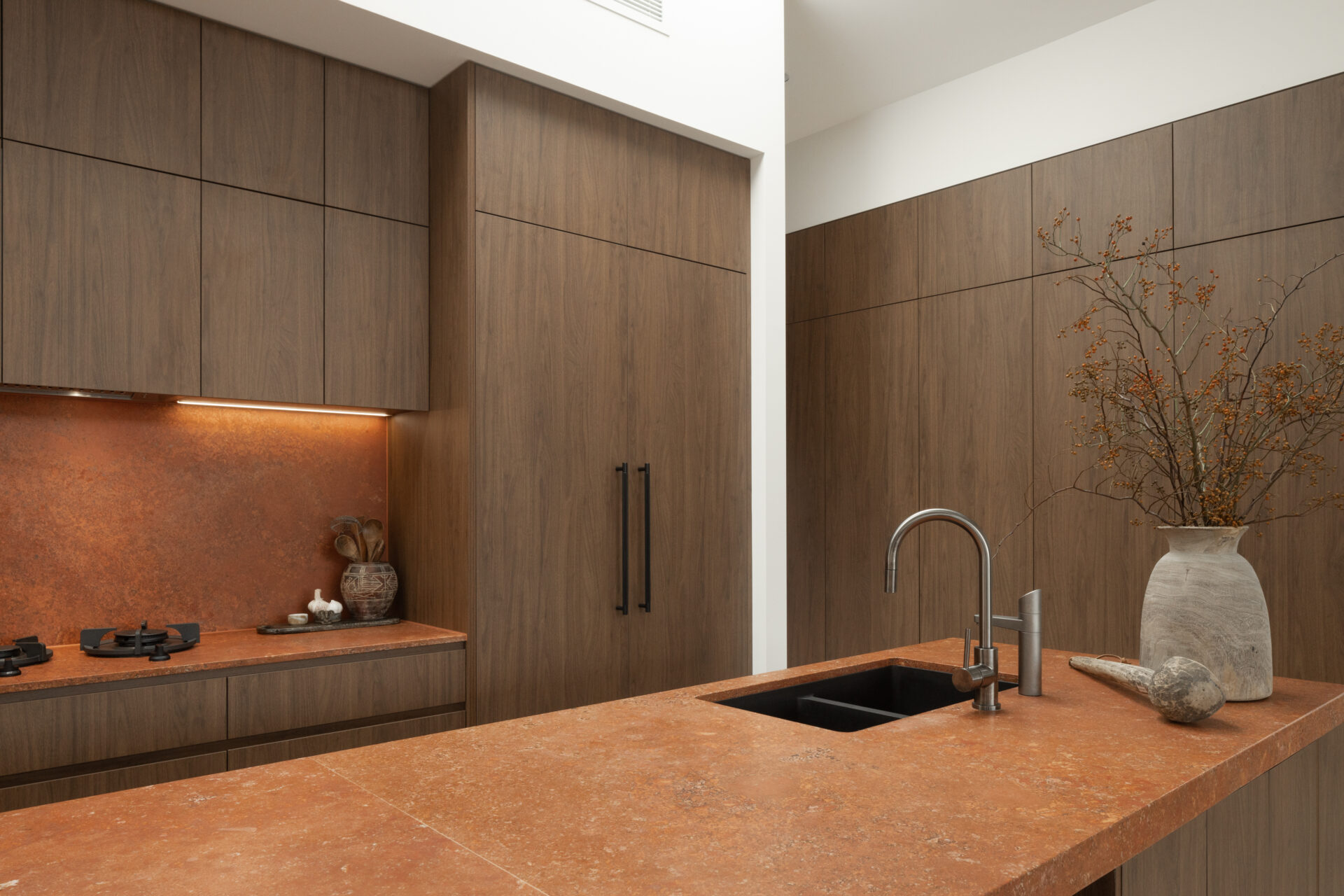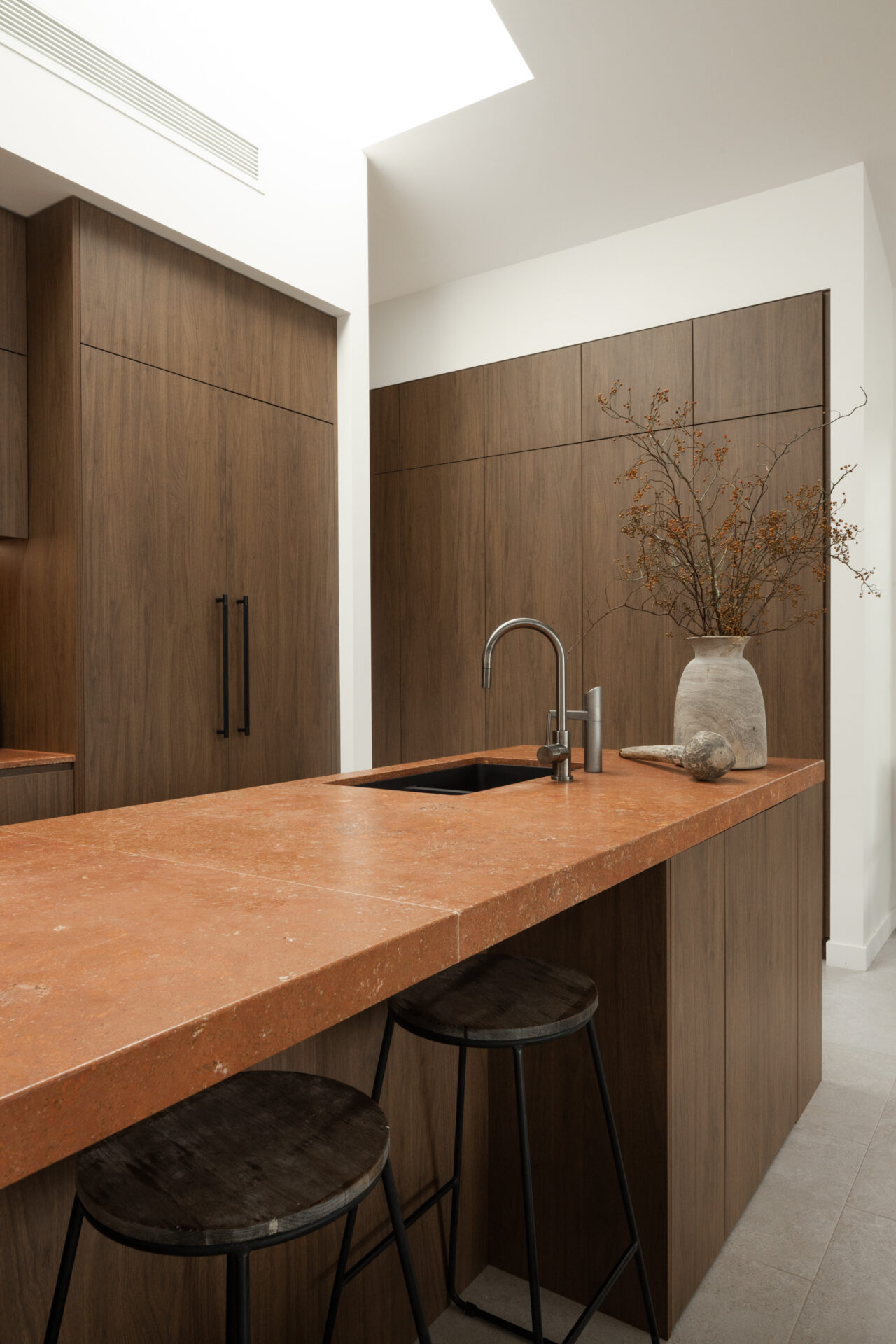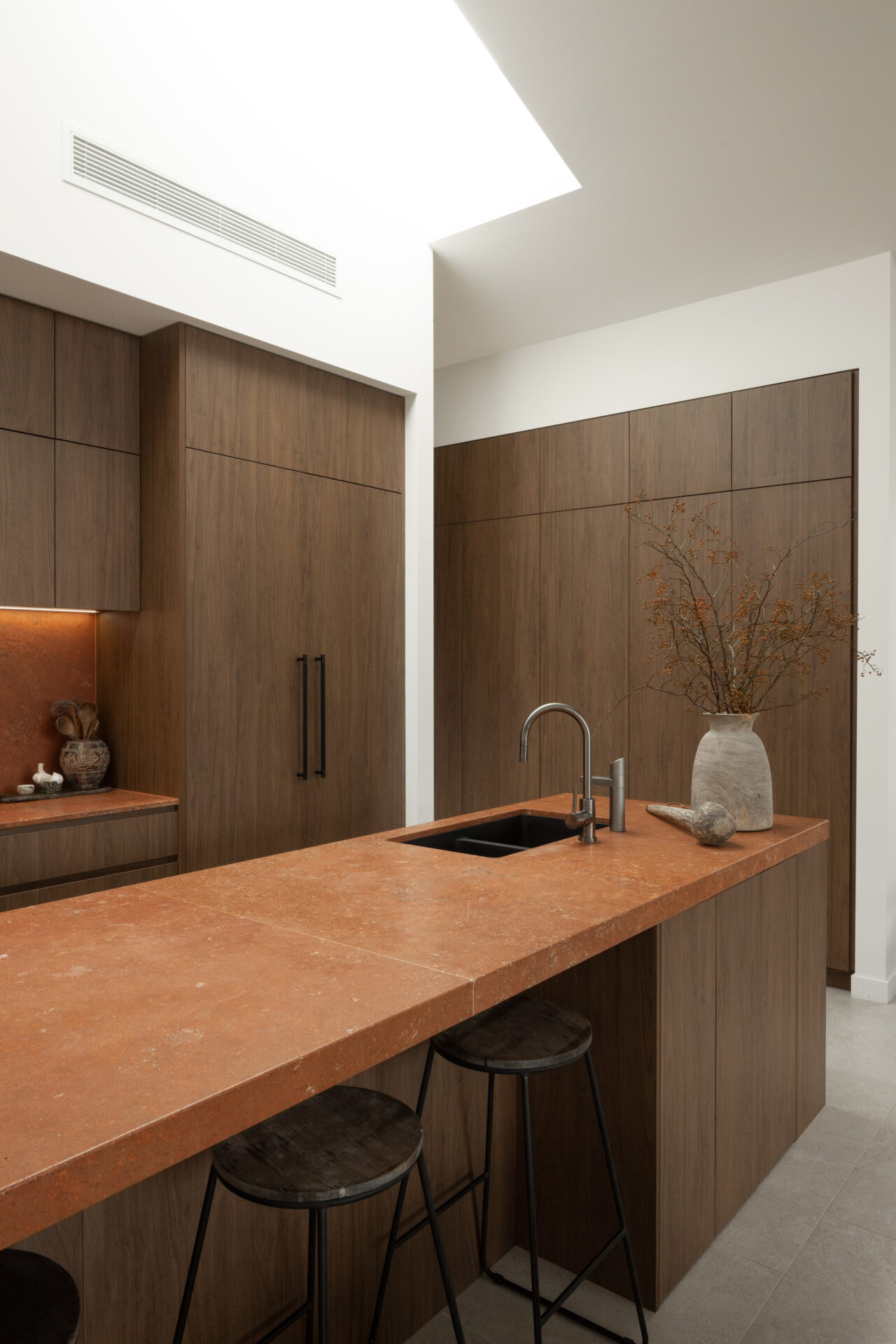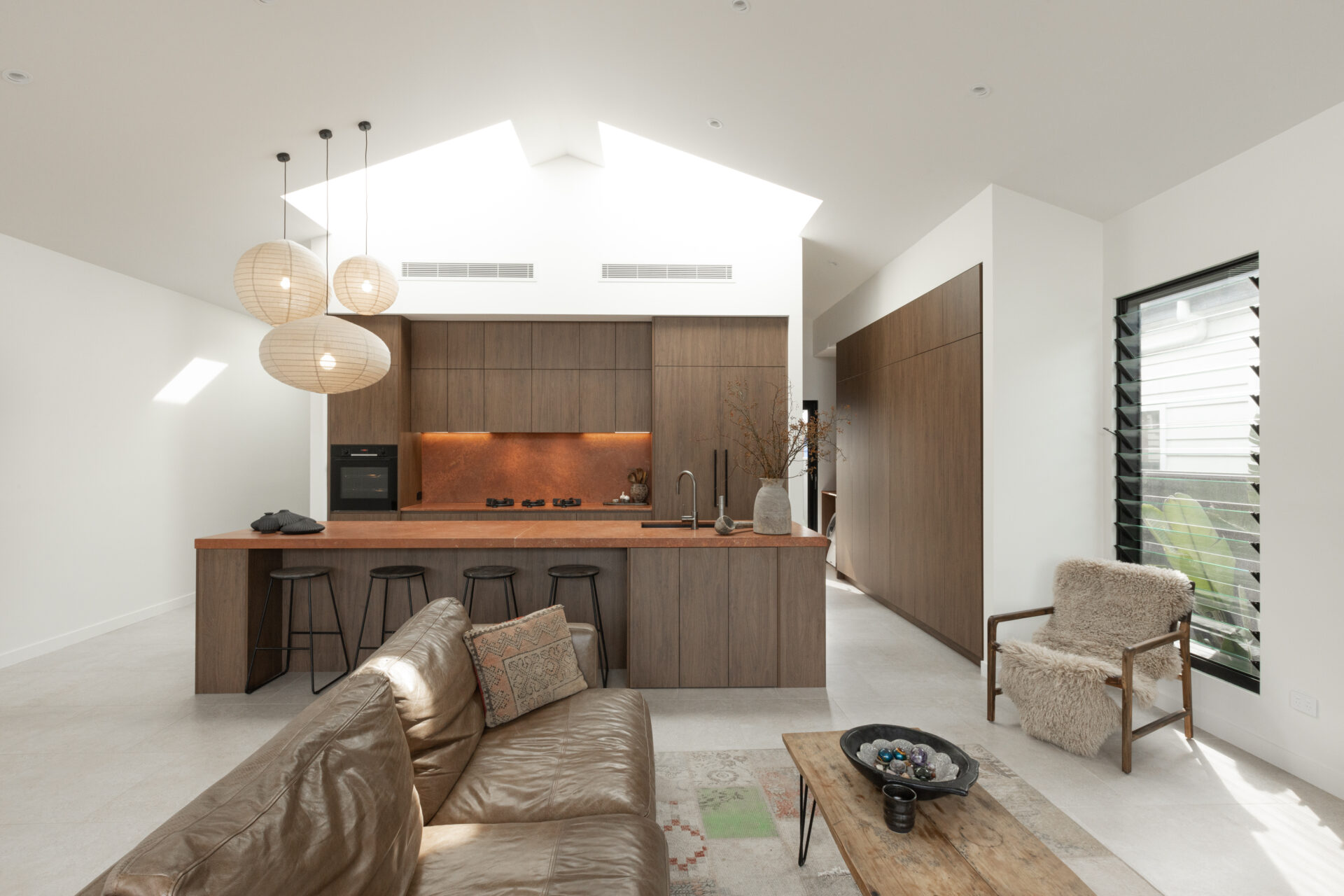Wabi Sabi
WABI SABI WARMTH: Where Imperfection Becomes Art
In a world increasingly obsessed with perfection, there’s a quiet rebellion brewing—one that embraces the raw, the real, the resolutely imperfect. Nowhere is this philosophy more beautifully realized than in this soulful kitchen space—a modern homage to Wabi Sabi, the ancient Japanese aesthetic that celebrates transience, texture, and the beauty of the undone.
Set beneath a soaring vaulted ceiling, this kitchen breathes. Daylight cascades through precisely cut skylights, bathing the room in a tranquil glow. The architecture feels elemental—like it’s always been here, gently waiting to be discovered. Every surface, every material, every detail whispers intention.
The cabinetry, crafted in a rich walnut, offers a grounded elegance. Its seamless panels conceal storage, appliances, and clutter, allowing the natural grain to become the hero. The island, a monolithic statement in terracotta-toned natural stone, anchors the space with its earthy warmth. Unpolished, matte, and tactile, it invites touch and conversation—a surface meant not to be preserved, but lived upon.
Suspended above, a cluster of rice paper pendants floats like lanterns in a temple courtyard. Their irregular forms—some puffed, others pinched—add a poetic softness that contrasts with the sharp architectural lines. It’s a delicate choreography of balance and asymmetry, light and shadow, minimalism and emotion.
Functionally, the space sings with understated precision. The flush black oven disappears into the cabinetry, the sink merges seamlessly into the bench, and the Pitt cooking hobs melts into the terracotta plane like ink into parchment. Even the bar stools—with their hand-forged black frames and softly rounded seats—feel like sculptures awaiting interaction.
What defines this kitchen isn’t opulence. It’s restraint. It’s reverence. It’s the embrace of time, wear, story.
As the homeowner pads barefoot across the tiles, coffee in hand, she doesn’t disturb the serenity. She completes it.
This is not just a kitchen. This is an ethos rendered in timber, stone, and light. This is Wabi Sabi—alive and well, and more necessary than ever.
It is a kitchen design based on the Wabi Sabi style.
Project: Dusky Shack
Kitchen by: Vogue Kitchens Australia
Interior Design: Bone and Blanc
Photographer: Grace Picot

